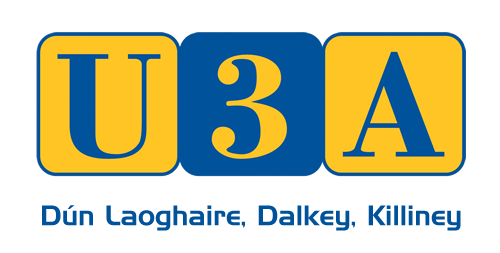Nov
12
10:30
Fabulous histories: Animals in Literature.
Aileen Douglas.
- 📅Tuesday, November 12, 2024
- 🕥10:30 - 11:30
Aileen Douglas is Professor of 18th century Studies at Trinity College Dublin, where she teaches in the School of English. She has particular interests in Irish writing, women's writing and print culture. Her publications include "Work in hand: Script, Print and Writing - 1690-1840" (Oxford, 2017) and co-edition of Oliver Goldsmith's "The Vicar of Wakefield" (2024) part of Cambridge works of Oliver Goldsmith. Her U3A talk is related to a course she teaches at TCD on humans and other animals in literature.
The title of this talk comes from a work by Sarah Trimmer published in 1786: "Fabulous histories designed for the instruction of children respecting their treatment of animals". Relationships between humans and non-human animal species are topical and often controversial in our world where the destruction of animal habitats and the functioning of agri-business coincide with a companion animal industry worth millions annually. This talk explores a range of literary texts that use innovative and imaginative forms to represent interspecies relationships, asking what humans share with other animals and what sets us apart; how humans should treat non-human animals; and is it ever possible really to know a member of another species.
Nov
05
10:30
Around the world with André Rieu.
David Algeo.
- 📅Tuesday, November 5, 2024
- 🕥10:30 - 11:30
In the 1960s, David studied engineering and computer science at Trinity College Dublin. His career included working with English Electric Computers in the UK, consulting with Price Waterhouse in Ireland and lecturing at the Department of Computer Science in TCD. He enjoys light classical music. André Rieu's Johann Strauss Orchestra is one of the orchestras he likes. David thought it might be interesting to prepare a smorgasbord of 14 musical delicacies selected from the vast publicly available library of André Rieu's music.
Starting in Maastricht, David takes us to performances by the Orchestra at locations across Europe, Australia, North America, Ireland and the UK before finally returning to Maastricht.
He enjoys researching topics that interest him. For example, in 2018 he delivered a talk to U3ADLDK entitles "Technology and the Future of Society". It would be very interesting if a member of U3ADLDK independently reviewed that talk with a view to assessing the validity or otherwise of his 2018 predictions.
Oct
29
10:30
Education: a transformational journey.
Aine Hyland.
- 📅Tuesday, October 29, 2024
- 🕥10:30 - 11:30
Aine Hyland is Emeritus Professor of Education and former Vice-President of University College Cork. She has written many books and articles on education, especially on the history of Irish Education. She has been a chairperson and member of many government committees on Education, including the Curriculum and Examinations Board, the Commission on the Points System, the Educational Disadvantage Committee. In recognition of her contribution to Irish Education she has been awarded a number of honorary degrees and is a member of the Royal Irish Academy.
This talk will analyse the Irish Education System during the past 100 years. When the Irish Free State was set up in 1932, it was the intention of the government to use the Educational System as a tool to restore the Irish language, history, music and culture. Secondary Education would be for the minority - for those intended for the Church and professions. By mid-century, Ireland's economy was stagnant and emigration was rife. The Second Programme for Economic Expansion in the early 1960s was a catalyst for change - and Education was to be central to this change. This talk will show how Education played a major part in transforming Ireland during the last 50 years.
Oct
15
10:30
The human Behans.
Des Geraghty.
- 📅Tuesday, October 15, 2024
- 🕥10:30 - 11:30
Des Geraghty is a proud son of the Dublin Liberties, a prominent trade unionist, author, musician and folklorist. His family had a deep involvement in labour and national struggles from 1913 to 2024. He was an industrial officer of the ITGWU and later president of SIPTU after the merger with the Larkins' Workers Union and a member of the executive of the ICTU. He served in the European Parliament from 1992 to 1994 and represented the Trade Union Movement on a number of national institutions, eg: the National Economic and Social Council, the National Competitiveness Council and the RTE Authority. He has written a number of books, the most notable being "Luke Kelly, a memoir", "Forty shades of green" (with photographer Liam Blake) and more recently "We dare to dream of an island of equals". His family had very close associations, social and political, with the Behan and Kearney families and his first cousin Mattie O'Neill gave the funeral oration at the grave of Brendan Behan.
"The Human Behans" is a very personal account of the colourful working-class Behan and Kearney family, the history, books, songs and stories. It explores the amazing contribution of the lesser known Irish poetry of Brendan and the major influence of Kathleen Kearney, Mother of all the Behans, on the whole spirit and direction of the family. Their basic humanity, with all their strengths and weaknesses, is explored with insight and sensitivity.
Oct
08
10:15
Pagliacci.
...........
- 📅Tuesday, October 8, 2024
- 🕥10:15 - 11:30
The Music Group presents "Pagliacci" (literally : Clowns), an Italian opera in a prologue and two acts, with music and libretto by Ruggiero Leoncavallo. The opera tells of the tale of Canio, actor and leader of a Commedia dell'Arte theatrical company, who murdered his wife Nedda and her lover Silvio on stage during a performance. "Pagliacci" premiered at the Teatro dal Verme in Milan on 21 May 1982, conducted by Arturo Toscanini. "Pagliacci" is the best known of Leoncavallo's ten operas and remains a staple of the repertoire.
"Pagliacci" is often staged with Cavalleria Rusticana by Pietro Mascagni, a double bill known colloquially as "Cav/Pag". We heard Cav earlier this year.
Leoncavallo based the story on an incident from his childhood: the 1865 murder of a Leoncavallo family servant, Gaetano Scavella, killed by Gaetano D'Alessandro, with brother Luigi acting as accomplice. The incident stemmed from a series of romantic entanglements involving Scavallo, Luigi D'Alessandro and a village girl with whom both men were infatuated. Leoncavallo's father, a judge, presided as magistrate over the criminal investigation.
Pag will be presented with English subtitles. A synopsis of the opera will be circulated nearer the time.
Note the time of 1015 to allow this 90 minute opera to be heard in its entirety.
By the way, "Pagliacci" is one of the operas that will be performed at the Wexford Opera this year.
Oct
01
10:30
Hilary Heron: Ireland's Pioneering Sculptor.
Dr William Shortall.
- 📅Tuesday, October 1, 2024
- 🕥10:30 - 11:30
Dr William Shortall is a Research Fellow in the Irish Art Research Centre at TCD (TRIARC). He researched and developed the "Seeing Ireland" project, a virtual re-creation of the art exhibition and other events associated with the World Congress of the Irish Race held in Paris in 1922, available at www.seeingireland.ie. He is co-editor of a forthcoming volume of papers about the Congress. More recently he researched and developed the retrospective exhibition on the sculptor Hilary Heron (1923-1977) at the Irish Museum of Modern Art. He wrote the main biographical essay for the accompanying catalogue and co-convened a symposium on the artist at TCD. His current research is on Cuala Industries. William is chairperson of the Irish Association of Art Historians.
Hilary heron was the first Irish artist to exhibit modern sculpture in Ireland. This paper will discuss Hilary's career and the foundational research that led to her retrospective exhibition at the IMMA which runs until 28th October before moving to FE McWilliams, Banbridge, until May 2025.
Sep
10
10:30
The Life and Music of Edvard Grieg and his Working Association with Henrik Ibsen.
Kirsten Briggs.
- 📅Tuesday, September 10, 2024
- 🕥10:30 - 11:30
At the previous music group event we heard some great music and talked about Sibelius who was from Finland.
This time we are staying in Scandinavia and visiting Norway.
Edvard Grieg was born in Bergen, Norway, on 15th June 1843. With his musical and compositional abilities Grieg grew to become the most recognized and acclaimed Norwegian composer of all time.
Norway possessed a great range of folk tunes that Grieg musically formalized and created scores for the melodies bringing them to global status both in listening, awareness and enjoyment terms. Grieg's compositional use and awareness of Norwegian folk music brought the music of Norway to fame, as well as helping to develop a national identity as Sibelius also did for the music of Finland.
Grieg soon became friends with another famous Norwegian - Henrik Ibsen. As a philosopher, playwright and dramatist, Ibsen is well known and respected for espousing the reality of life in his writings within the Norwegian setting.
Grieg and Ibsen both had a creative, culturally realistic and humanistic approach to their vision of Norway, its people and landscape; this is apparent in their compositions and oeuvre at the time and into the future.
Ibsen wrote "Peer Gynt", a five act play in verse in 1867; it was set in Norway. Luckily it was inevitable that Ibsen and Grieg chose to work together to convey "Peer Gynt", not only on stage but also as a great musical piece. The performance of "Peer Gynt" exceedingly increased the acclaim, knowledge and popularity of both Grieg and Ibsen and brought them to world renown in a Norwegian cultural, literary and musical context.
At this event we will learn a little bit about Norway as a country and listen to a range of music by Grieg to include extracts from folk music, a lyric piece, a piano concerto and of course Grieg's music for "Peer Gynt" by Ibsen.
Sep
03
10:30
The Origins of the American Revolution.
Ciaran Brady.
- 📅Tuesday, September 3, 2024
- 🕥10:30 - 11:30
Ciaran Brady was formerly Professor of Early Modern History and Historiography and is now Fellow Emeritus at Trinity College Dublin. Originally a specialist in 16th century Irish and English history, he developed further interests in American history and in the theory and practice of historical thinking and writing. He has taught and published widely in both areas. Joint editor of the peer review "Irish Historical Studies" for ten years, he has been President of the Irish Historical Society and the Historical Association of Ireland. He is a former secretary of the Irish Association of American Studies.
The origins of the American Revolution.
"It was" said John Adams (a signatory of the Declaration of Independence and second president of the United States) "a revolution in the minds and hearts of the people".
But how revolutionary was this insurrection within the British Empire led by wealthy planters, slaveholders, prosperous merchants, well-to-do lawyers, and conservative politicians? Their document of justification, "The Declaration of Independence", was a deeply conservative text, harking back to the principles of 1688 and the arguments of the great 17th century British political philosopher John Locke, against the Catholic Stuart monarch James 2nd. So, what happened? Did the conservative elites suddenly become revolutionary? Or did they find themselves swept away by social forces and ideological imperatives which hitherto they had never sufficiently understood? Did these unexpected dynamisms force the revolution in "minds and hearts"?
This talk will seek to probe the underlying complexities and contradictions of the American Revolution.
The American Revolution: A very select reading guide.
Edward Countryman: "The American Revolution", a short introductory volume which emphasizes the social and ideological tensions which existed among the participants of the revolution.
Robert Middlekauff, "The glorious cause", a much longer and more detailed study which, while recognizing radical currents, emphasizes the complexity and contingency of the revolution's developments.
Bernard Baylin, "The ideological origins of the American revolution", a brilliant analysis of the ideological currents and tensions underlying the attitudes of the colonial elites in the years before the revolution; it provides a powerful explanation of the apparent contradictions of the Declaration of Independence.
Origins of the American Revolution: a brief chronology - 1763 to 1776.
1763: February: France cedes Canada to Britain under the Treaty of Paris, ending the Seven year War. May 7th: Pontiac's rebellion begins when the Ottawa Indian chief leads an attack on Detroit. October 7th: Hillsborough Declaration orders colonial squatters to withdraw from Upper Ohio Valley.
1764: April: Sugar Act (American revenue Act) seeks to raise £45.000.
1765: March: Parliament passes the Stamp Act which imposes a tax on all newspapers, legal documents, playing cards, dice, almanacs and pamphlets, raising the issue of taxation without representation. The Quartering Act which requires colonies to provide housing and food for British troops stationed in the colonies goes into effect.
October 7th to 25th: The Stamp Act Congress meets in New York to organize united resistance to the Stamp Act.
1766: March: Under pressure from London merchants Parliament repeals the Stamp Act.
1767: June 29th: The Townsend Act requires the colonist to pay an import duty on tea, glass, oil, lead, paper and paint. Expected revenue: £60.000.
1770: April: Parliament repeals all the Townsend duties except the one on tea.
1773: Boston port is closed. A new Quartering Act refers all disputes over colonial trade to the British Admiralty Courts. The Quebec Act excludes colonists from settlements in Canada. First Continental Congress meets to oppose "the coercive acts".
1`775: April: Fighting breaks out in Lexington and Concord between colonial militias and the British Army. May: the Second Continental Congress meets and appoints George Washington as commander of a new Continental Army.
June: First battle of the War of Independence at Bunker Hill.
1776: July 4th: Congress adopts the Declaration of Independence.
Jun
25
10:30
The life and Music of Jean Sibelius.
Kirsten Briggs.
- 📅Tuesday, June 25, 2024
- 🕥10:30 - 11:30
Sibelius was born in Finland in 1865 and composed over 500 pieces of music. A major influence on his music was that he held a deep interest in the myths, ideologies and legends of Finland as we shall hear in his music.
Sibelius had a deep interest in the flora and fauna of Finland and these feelings played a very important role in the construction of his music.
The beauty of the Finnish landscape and his interest in its wildlife also influenced and became apparent in his music.
Sibelius is probably best known for his Violin Concerto but above all for his patriotic symphonic poem "Finlandia" that he composed in 1899. This piece received its premiere performance on July 2nd 1900 to great acclaim, not only by the Finnish people but in global terms also.
"Finlandia" became the ultimate expression and desire of the Finnish people for their independence and glory when Finland was valiantly attempting to avoid being controlled by Czarist Russia.
Independence was achieved through non-violent uprising by the Finnish people who then became part of the EU, joined NATO last year and remain an acclaimed independent state today.
We will listen to a range of great music by Sibelius and also hear a little bit about Finland as a country.
Jun
18
10:30
Feral children: their linguistic development.
Philippe Hamel.
- 📅Tuesday, June 18, 2024
- 🕥10:30 - 11:30
Feral (or wild) children grow up without social contact, without linguistic stimulation. They are either subjected to ill treatment by uncommunicative "carers", or brought up by animals, or surviving in total isolation by their own resources. This talk will concentrate on four feral children, describe the circumstances of their early lives and the efforts of society to bring them into the fold through language teaching and patient socialization. We will briefly consider two conflicting theories that attempt to explain why the linguistic development of feral children is extremely difficult and in numerous cases impossible.
Philippe Hamel studied English and French literatures at the University of Upper Normandy in Rouen. Whilst teaching French in various branches of the Irish Civil Service he studied at Trinity College Dublin where he obtained his Higher Diploma in Education in 1974. He then taught French, German and Spanish at secondary school level. He studied Theoretical Linguistics at University College Dublin where he lectured in Syntax, Semantics and Pragmatics whilst pursuing his research in the logic of tenses and Speech Act Theory. He obtained his Ph.D. in 1982. For the pleasure of French readers, Philippe has published a book of short stories.
Jun
11
10:30
Polish-Irish relations.
H.E. Ambassador Rzegocki.
- 📅Tuesday, June 11, 2024
- 🕥10:30 - 11:30
H.E. Ambassador Rzegocki, Ambassador of Poland, has kindly agreed to come and talk to us on Polish-Irish relations.
"The ties between Polska and Eire: from historical connections to unwavering support to Ukraine."
This talk is open to all DLDK members.
Jun
04
10:30
Robert Boyle (1627-1691): Genius, Polymath, Eccentric and Cork's Gas Man.
Jim Malone.
- 📅Tuesday, June 4, 2024
- 🕥10:30 - 11:30
Jim Malone is Robert Boyle Professor (Emeritus) of Medical Physics and was Dean of the School of Medicine at trinity College/St James's Hospital. He works/worked with various international organisations, including the UN's WHO, the International Atomic Energy Agency (IAEA), the International Electrotechnical Commission (IEC), and the EC. He has broad interests in the Humanities and directed 2 Merriman Summer Schools. He has been reading Boyle's work in its original format for almost 50 years and has contributed regularly to the Robert Boyle Summer School.
He has a multitude of peer reviewed publications and including 3 books and a recent almost true memoir: "Tales from the Ivory Tower".
Robert Boyle (1627-1691) is known as the father of chemistry and the son of the Earl of Cork. He was much more - a determined, undercelebrated, brilliant scientist and eccentric. He was born in Lismore castle in Waterford and lived through the English Civil War, regicide, interregnum, restoration, and died just months after the battle of the Boyne. He was among the last of the universal polymaths, and contributed substantially to medicine, physics, the life sciences, philosophy and theology. He was a founding member of the Royal Society and refused numerous honours including its presidency. He accumulated a vast range of cures and even wrote a short semi-autobiographical novella. Finally, he established the experimental method as we know it.
He was deeply religious, lived an exemplary if somewhat stoic Anglican life. He funded the first translation of the Bible into Irish. Like Nelson he was fascinated by alchemy and sorcery and not at ease with the boundary to empirical enquiry into these sensitive areas. His science and his personal spirituality are inextricably intertwined.
Jim started reading Boyle's copious original writings inn the early printed books room of the TCD library almost 50 years ago. They are informative about 17th century science and life, and rich in unintended humour. The talk is based on these writings and a comparison with what one learns from them with what one would learn from a 21st century scientist's writings. Boyle's opus brings the man to life and Jim seems now to know him better than many of those he meets regularly. Visual art is used to illustrate the talk.
May
28
10:30
Brexit
Stephen Collins
- 📅Tuesday, May 28, 2024
- 🕥10:30 - 11:30
We are delighted to welcome Stephen Collins to our next meeting. Stephen is an eminent political commentator, former political editor and still regular columnist for the Irish Times. His seminal work oh the Brexit negotiations has been recently updated and reissued copies will be available at €20.00. His talk will be followed by ample Q&A.
May
21
10:30
Choosing your medicines to suit your genes.
David McConnell.
- 📅Tuesday, May 21, 2024
- 🕥10:30 - 11:30
David McConnell is Fellow Emeritus in Genetics in Trinity College. Educated at Sandford Park, Trinity and the California Institute of Technology (Ph D, 1971) he became a member of the faculty in Trinity in 1970, introducing the science and technology behind genetic engineering in Ireland. He held a fellowship at Harvard University (1976-1977). As Professor of Genetics (1990-2014) he planned and organised the Smurfit Institute of Genetics which grew to have more than 100 research staff from 30 countries.
Genetics had led to remarkable advances in medicine, including "pharmacogenomics", how genes affect responses to medicines. Today a simple saliva test is available to help a doctor choose prescriptions that suit your genes. This test will reduce the chance of an "adverse drug reaction", which can be serious, and make prescriptions effective. When he took the test he found he had 5 genes that would affect his responses to about 30 commonly prescribed medicines. He will explain the science in lay language, and its usefulness. Caveat emptor!
May
07
10:30
From the First Sound Shift to DORT-Speak: How languages change.
Tim Jackson.
- 📅Tuesday, May 7, 2024
- 🕥10:30 - 11:30
Having graduated from Trinity College in German and French Tim spent a couple of years in Oxford before returning to Dublin, where he spent his entire working life in Trinity German Department. His research concentrated mainly on Medieval German literature (some members may remember his talk on the famous Manesse manuscript). As well as written German his teaching involved the language of this medieval literature (as different from modern German as Chaucer is from modern English) and the development of the language up to that period and subsequently.
Linguists assume that far back in linguistic prehistory there was a language to which the name "Indo-European" has been given. From it the development of a number of language groups can be traced: the Germanic languages (English, German, Afrikaans, Icelandic, etc), the Celtic languages, the Slavonic languages, among others. In the course of history each language in each group has diverged from the others in different ways. This can involve sound changes (English "pound" vs German "pfund"), grammar (in French and in German adjectives still have different endings according to grammatical gender - in English they no longer do), vocabulary (the meaning of words change - eg: gay, languages borrow words from other languages - eg: rucksack). The talk will look more closely at such developments.
Apr
30
10:30
Romeo and Juliet.
Peter Ryan.
- 📅Tuesday, April 30, 2024
- 🕥10:30 - 11:30
Shakespeare's play Romeo and Juliet is a tragic love story in which the two main characters are supposed to be sworn enemies but fall in love in spite of the ongoing conflict between their families in Verona. The play ends with the tragic deaths of both. West Side Story set in Manhattan three centuries later and based on the theme of Romeo and Juliet also involves two main characters who fall in love despite the racist enmity between their communities, immigrants from Puerto Rico and white Polish Americans. Tragedy is also the end result. The tale of Romeo and Juliet is also to be found in Gounod's opera and Prokofiev's ballet. This presentation on PowerPoint will include music from the opera, the ballet and West Side Story while keeping in touch with the story of the star crossed lovers.
Apr
23
10:30
The Outcome of the Spanish Civil War.
John Bolton.
- 📅Tuesday, April 23, 2024
- 🕥10:30 - 11:30
John has a B.Sc. in Experimental Physics from UCD (1976), an M.Sc. by research in Solid State Physics from TCD (1980) and an MBA from UCLA (1990). The majority of his career was spent in IDA Ireland, including 10 years in California and 5 years inn Germany selling Ireland as an investment location. He is an avid reader of history and traveller, particularly to Spain.
The talks are about the background, causes and outcome of the Spanish Civil War.
Apr
16
10:30
The Prequel to the Spanish Civil War.
John Bolton.
- 📅Tuesday, April 16, 2024
- 🕥10:30 - 11:30
Apr
09
10:30
Bees, bumble bees and wasps.
Jim Ryan.
- 📅Tuesday, April 9, 2024
- 🕥10:30 - 11:30
Jim Ryan is a native of Thurles Co Tipperary and has been involved in beekeeping for over 50 years. Initially he helped his grand father look after his 7 hives in Naas Co Kildare and later in 1982 did a beginner's course in his home town and has kept bees ever since. He has lectured and demonstrated throughout the country as well as inn the UK. From 1998 to 2012 he edited "An Beachaire, the Irish beekeeper" and for the past year has stepped into the breach to keep it up and running. A retired solicitor, he still keeps bees in Tipperary as well as "a few colonies" in Dublin, where he now resides.
His talk will look at some of the flying insects we meet every time we go out into our gardens. A surprising number of people do not know the difference between a bee and a wasp. We will look at their lives in our gardens and the benefits we get from having them. There is not need to roll up your morning paper and beat the daylights out of them. If they do come into the house there are simple ways to get rid of them.
Apr
02
10:15
Cavalleria rusticana.
Music sub-group
- 📅Tuesday, April 2, 2024
- 🕥10:15 - 11:30
The music sub-group presents a Vienna State Opera production of Petro Mascagni's 75 minute one act opera, Cavalleria Rusticana (or Rustic Chivalry) that is set in a square in a small village in Sicily circa 1900, at dawn of Easter Sunday. This story of love, betrayal and revenge contains many beautiful tunes, some of which you will recognize, particularly the intermezzo that links the two scenes together.
- The performance will be sub-titled in English.
- Given the length of the opera, this session will start at the earlier time of 10.15.
Pietro Mascagni, (1863-1945) born in Livorno, Italy, composed two operas prior to Cavalleria Rusticana - Pinotta in 1880 and Guglielmo Ratcliff in 1885. After his dismissal from the Milan conservatory in 1884 for his lack of application, he endured six years of poverty and obscurity touring as a conductor then teaching and conducting in Cerignola, Puglia.
Here, in 1889, he heard of a competition sponsored by the music publisher Sonzogno offering a prize for the best one-act opera to be submitted. Mascagni took a story - a passionate love tragedy that takes place on Easter morning - by the Sicilian writer Giovanni Verga, which the author had already adapted into a play for the actress Eleonora Duse and which Mascagni had admired in Milan.
"I asked my friend and towns man Targoni-Tozzetti [later assisted by Guido Menasci] to write a libretto that was very close to Verga's action, simply adding occasional lyrical pieces to cover the naked drama of the plot," Mascagni recalled. "I received the verses a few at a time but I already had the situation clear in my mind: I identified with the drama to such an extent that I felt it within myself in terms of music."
It took Mascagni two months to compose. Then when the time came for him to submit the score, his courage deserted him. Fearing failure he put the music into a drawer, where it might have remained had it not been for his wife who sent it off.
Cavalleria Rusticana, with its stirring melodies, including the famous Easter Hymn, and tightly constructed plot was unanimously voted the competition winner. On May 17 1890, it had its premiere in Rome where it received no less than 60 curtain calls; in less than a year it had been performed all over Europe.
Medals were struck in Mascagni's honour; Livorno welcomed him home as a hero; the King of Italy bestowed on him the Order of the Crown of Italy - an honour even Verdi was not given until middle age. On the strength of one masterpiece, the struggling composer be
came wealthy and famous overnight. "It is a pity I wrote Cavalleria first" he said at the end of his life. "for I was crowned before I became king."
Mascagni died on 2 August 1945 in his apartment at the Grand Hotel Plaza in Rome. The funeral ceremony was on 4 August. The Italian authorities were not present. In n1951, his body was transferred from Rome to Livorno, where Mascagni finally received an official homage. On 7 December 1963, the centenary of Mascagni's birth, a plaque was erected in Rome on the Albergo del Sole where Mascagni stayed during the premiere of Cavalleria Rusticana.
Introduction.
The opera Cavalleria Rusticana is generally considered to be the first official example of musical verismo. The libretto was inspired by a short, intense novella by Sicilian novelist Giovanni Verga, leader of the Italian literary movement known as Verismo. As a pupil of Ponchielli's, the young Mascagni was just an obscure music teacher when his opera, staged in Rome with great success, made him famous worldwide. Verdi himself, after hearing the work , is said to have stated: "I can die in peace". Cavalleria Rusticana, which could be translated as "Rustic Cavalry", is characterized by the extreme simplicity of its plot in which fits of jealousy clash with the exaltation of honour. Mascagni was able to retain all the power of a bloody news story, The simple, energetic music effectively elicits emotion. Cavalleria Rusticana is frequently staged together with another verismo work, Pagliacci, composed in 1892 by Ruggero Leoncavallo. These works, linked by dramatic construction and style, are uniquely associated with one another in the history of opera, often being referred to by the abbreviation "Cav/Pag".
Synopsis.
It is Easter morning in a Sicilian village. A sad, anxious girl, Santuzza, is looking for her lover, Turridu, who betrayed her and went back to his former fiancée, Lola, who had meanwhile married the wealthy Alfio when he returned from the army. Santuzza tries in vain to win back her lover. Mad with jealousy, she tell Alfio, the cuckolded husband, about Lola and Turridu. At that point Turridu's fate is sealed. Alfio provokes him to a duel. After saying goodbye to his mother, Turridu leaves for his fatal meeting.
Act 1.
It is Easter morning in the square of a Sicilian village. After a long orchestral prelude expressing Santuzza's despair, from off stage we hear a "sicilienne" sung by Turridu, praising Lola's beauty and proclaiming his willingness to die for her. The curtain rises, revealing the square that is slowly filling up with men and women gathering to attend mass. We see the church and the home of Turridu's mother, the inn-keeper Mamma Lucia.Santuzza appears: a young peasant woman tormented by sadness and anxiety. She goes up to Mamma Lucia to ask her where her son is. Lucia affirms that Turridu left the evening before to fetch wine from the city, but Santuzz knows that the young man spent the night in the village. Their conversation is interrupted by the carter Alfio, who arrives singing about the small joys of his simple life. Alfio confirms that he saw Turridu the night before near his home. Everyone gathers to form a procession that enters the church singing the Easter hymn in a great burst of religious fervour. Santuzz and Lucia remain alone. The girl then tells the story of her betrayed love (Voi lo sapete, o mamma...). Santuzz's ballad contains the exposition of the drama that is about to unfold. Turridu had previously courted Lola but, when he returned from the army, he found her to be married to the carter Alfio. He then consoled himself in the arms of Santuzza; she loved him madly. But coquettish Lola wanted her former lover back and did not hesitate to cheat on her husband, Alfio who is the only one aware of the adultery. Mamma Lucia is shattered by this threatening revelation. Finally Turridu arrives, whom Santuzz tries to win back; but a loud quarrel erupts between the two lovers. Drunk with despair, Santuzza curses Turridu and goes to denounce him to Alfio, who swears to take revenge. All the threads of the tragedy are now knotted. A grand symphonic intermezzo announces the tragic denouement.
The men of the village meet at the Mamma Lucia's inn. Turridu holds Lola and raises a toast,, inviting Alfio to join in, but the latter refuses disdainfully. The two men kiss one another in keeping with Sicilian custom before a duel; Turridu bites Alfio's ear as he hugs him. Turridu knows he must now say goodbye to his mother. He asks her to take care of poor Santuzza before re-joining his rival for the fatal duel. Mad with anguish, Santuzza watches him go off and throws herself into Mamma Lucia's arms. A terrible shriek breaks the silence: "They've killed comrade Turridu!" Mamma Lucia and Santuzza collapse, devastated by grief.
The 1990 film "The Godfather Part 3" used a production of Cavalleria Rusticana at the Teatro Massimo in Palermo as the setting for its climax, with Michael Corleone's son Anthony as Turridu. The movie ends with the intermezzo playing.
Royal Opera House Youtube
https://www.youtube.com/watch?v=8U2uw1t o
Mar
28
10:30
---
Stephen Collins
- 📅Thursday, March 28, 2024
- 🕥10:30 - 11:30
We are delighted to welcome Stephen Collins to our next meeting. Stephen is an eminent political commentator, former political editor and still regular columnist for the Irish Times. His seminal work on the Brexit negotiations has been recently updated and reissued copies will be available at €20.00. His talk will be followed by ample Q&A.
Mar
26
10:30
Literature and the New Brain Sciences.
Ashley Taggart.
- 📅Tuesday, March 26, 2024
- 🕥10:30 - 11:30
Ashley Taggart is Head of the Drama Department of UCD, working primarily in the field of drama and playwriting, with special interest in the influence of Evolutionary Theory, and the new brain sciences. He has written film, TV and award winning radio dramas. He has also worked as a professional writer/editor of plays and screenplays. In 2021 he wrote, in conjunction with Professor Chris Comer, a neuro-scientist, a book entitled "Brain, Mind and the Narrative Imagination" (Bloombury Press).
Literature and the New Brain Sciences:
The worlds of Art and Science seem to be irreconcilably opposed. Yet it is in the last few hundred years that this gulf has arisen. Prior to that, the study of the natural world and the world of the mind were seen as one. New breakthroughs in the brain sciences (cognitive science, neuroscience) are giving us fresh insights into fundamental and universal faculties of the human mind that are directly relevant to all the arts, not least those related to narrative - literature in all its forms. Although this study is at an early stage, it has exciting things to tell us about attention, memory, emotion, imagination and even the self, which are stranger than could have been previously ventured.
Mar
12
10:30
Enjoying Claret in Georgian Ireland.
Dr Patricia McCarthy.
- 📅Tuesday, March 12, 2024
- 🕥10:30 - 11:30
Dr Patricia McCarthy is the author of "A favourite Study : Building the King's Inns" (Dublin, 2006), "Life in the country house in Georgian Ireland" (London and New Haven, 2006) and "Enjoying claret in Georgian Ireland : a history of amiable excess" (Four Courts Press, 2022).
Enjoying claret in Georgian Ireland :
Ireland's love affair with claret began in earnest when Irish families (part of the Wild geese exodus) fled to France, and became involved to a large extent in the Bordeaux wine trade in the early eighteenth century. So much red wine from Bordeaux was being consumed by Irish nobility and gentry that Jonathan Swift referred to it as "Irish wine" in the full knowledge that his correspondent would understand that he meant claret.
The amount of Bordeaux claret consumed in Ireland was staggering, as gentlemen competed with each other in hospitality, including that at Dublin Castle where the contents of its cellars played a major part in the popularity of the Lord Lieutenant, and indeed it resulted in the premature death of one ! Not surprisingly, gout "The disease of Irish hospitality" was the inevitable result.
Feb
27
10:30
Industry in Ireland from Independence to EEC Accession.
Professor Frank Barry.
- 📅Tuesday, February 27, 2024
- 🕥10:30 - 11:30
Frank Barry will present his recent Oxford University Press book on the history of industry in independent Ireland. The book identifies for the first time the major manufacturing firms and factories in operation at key dates from the decades prior to the establishment of the Irish Free State in 1922 through to the eve of EEC accession in 1973.The archival evidence unearthed challenges much of conventional wisdom on the pattern of development of industry and the determinants and consequences of economic policy over the period.
Frank Barry is Professor of International Business and Economic Development at Trinity College Dublin and a member of the Royal Irish Academy. He holds a PhD in economics from Queen's University Ontario, and has held visiting positions at the Universities of Stockholm, California and New South Wales, and with the Harvard Institute for International Development. His research interests are in foreign direct investment and modern economy, and in Irish economic business history. He grew up in the shadow of Lord Ardilaun's church in Raheny and received his secondary education at the Christian Brothers' school that features in James Joyce's "Araby".
Feb
13
10:30
Undead and still counting. A brief cultural history of Vampires from Serbia to Croker and beyond.
Clemens Ruthner.
- 📅Tuesday, February 13, 2024
- 🕥10:30 - 11:30
Clemens Ruthner is an Assistant Professor of German and Director of European Studies at Trinity College Dublin. His research interests include cultural narratives of Otherness, cultural theory and Central European Studies (19th and 20th centuries). He has authored two books on the fantastic literature ("Unheimliche Wiederkehr", 1993 and "Am Rande", 2004) and is editor and co-editor of numerous anthologies of essays. His latest monograph "Habsburg's Dark Continent" appeared in 2018. He is currently working on a literary and cultural history of Vampirism and has contributed to the Palgrave Handbook of Vampires (2024).
This talk will lead you through the different stages of cultural appropriation of the most famous Undead monster of Western culture : from demonic "proto-vampires" of Antiquity to spectacular historical cases of mass hysteria in Serbia (18th century) and then further to the first literary texts, until the narrative of Vampirism as a secular cultural phantasma is fixated by Stoker's "Dracula" in 1897, and in its current, postmodern format by Anne Rice - not to forget the films and the various "young adolescent" versions of the Vampire, most notoriously US writer Stephenie Meyer.
Jan
30
10:30
Dalkey Hotels and Taverns.
John Martin.
- 📅Tuesday, January 30, 2024
- 🕥10:30 - 11:30
John Martin is a retired town planner and worked in both local government (included the former Dun Laoghaire Corporation) and the Department of Local Government. Since retirement he has expanded his interest in local history. His "Historic Towns Atlas: Dungarvan" was published by the Royal Irish Academy in 2020: see https://www.ria.ie/research-projects/irish-historic-towns-atlas for an online version. He has lived in Dalkey since 1983 where he joined guided walks led by the late Harry Latham. He is currently preparing an illustrated history of Dalkey with the help of like-minded people.
In 1800 Dalkey was a quiet rural village with a few taverns which served food and drink. However the scenic character of the area, the arrival of the railways in 1844, and the development of attractions such as hot and cold baths at Coliemore, led to an influx of day trippers; new housing developments also resulted in an increase in the local population. As a result, some of the taverns expanded their offering to include hotel accommodation, such as the Queen's Hotel in Castle Street. Most of the small hotels had closed in the early 20th century but were replaced by others, often near the coast, such as the Cliff castle Hotel and the Dalkey Island Hotel, which were very popular for weddings. Unfortunately, all of these had ceased to operate by the year 2000; many of the sites were redeveloped for apartments.
Jan
16
10:30
Afghanistan.
Eunan O'Halpin
- 📅Tuesday, January 16, 2024
- 🕥10:30 - 11:30
Eunan O'Halpin retired from the Bank of Ireland Chair of Contemporary History in Trinity College Dublin in 2020. Educated at UCD and Cambridge, where he researched the interwar British Treasury, he has written widely on aspects of the 20th century Irish and British history and politics. His most recent books are: "Kevin Barry: Irish Rebel in Life and Death" (2020), "The Dead of the Irish Revolution" (2020) (with Daithi O'Corrain) and "Spying on Ireland: British Intelligence and Irish Neutrality during the Second World War" (2008). He is a member of the Government's Advisory Group on Commemorations (2012 -). He is now working on studies provisionally titled "Neighbours from Hell: Afghanistan and the Second World War Belligerents, 1933-1947" and "Ireland 1922-1923: an Island at War".
This talk will argue that notwithstanding acute internal turmoil in the first decade after Britain finally recognised her as an independent state in 1931, Afghanistan was a surprisingly successful small state in the international system. Despite four problematic neighbours - Iran, the Soviet Union, China, and touchy and fretful India (from 1947 Pakistan) - from the 1920s to the 1970s successive Afghan governments managed their external relations in a sophisticated and strategic manner which identified and prioritised the interests of the established Afghan state. This was despite an hypothetical "Greater Afghanistan" which would extend south to the Indus, and/or southwest across through parts of Baluchistan and Sind to the Arabian Sea. It was also despite the injustice of the Southern Frontier, the "Durand Line" imposed by the British (with Russian agreement) in 1893, which split the Pathan homeland into two. At key moments when territorial expansion appeared possible - in 1941 when ascendant Germany offered British Indian territory (just as the Kaiser had done in 1915/1916) and in 1947, when part of India's Northwest Frontier Province appeared a prize for the taking amidst the chaos of British withdrawal - Kabul exercised restraint. There are clear parallels with independent Ireland.
Jan
09
10:30
Music of the Modern Era.
Peter Ryan
- 📅Tuesday, January 9, 2024
- 🕥10:30 - 11:30
Music of the Modern Era, starting around 1910, has been described by many as a reaction to the Romantic Period that preceded it. The social and political upheaval of the 20th century, as well as the technological advances, led many composers to feel that the old ways of representing human experience musically were no longer qualified to identify the new realities of humanity. This has led to various new trends and techniques such as Atonality, Serialism, Expressionism, Impressionism,, but also too Jazz Influence, Electronic music, and Neoclassicism among others. Some composers continued in the Romantic vein. This presentation by Peter Ryan will include music by composers such as Debussy, Copland, Milhaud, Prokofiev, Schoenberg, Messiaen, Cage, Reich Stockhausen and Shostakovich.
Jan
02
10:30
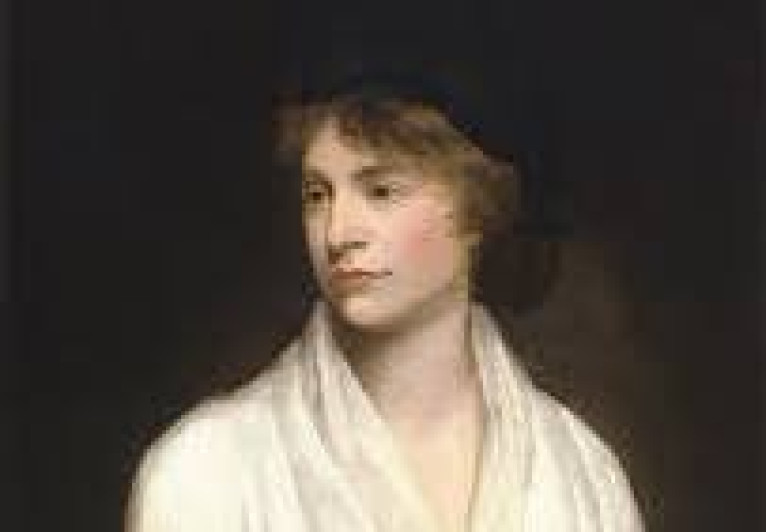
Mary Wollstonecraft.
Professor Gail McElroy
- 📅Tuesday, January 2, 2024
- 🕥10:30 - 11:30
Gail McElroy is a Professor of Political Science and Dean of the Faculty of Arts, Humanities and Social sciences at Trinity College Dublin. Her research spans the fields of legislative politics, political behaviour, European Union Politics, and Gender and Politics. She is actively involved in the Irish national Election Study and Comparative Candidate Study. Recent publications include works on voters' ability to predict coalition outcomes, the evolving nature of the Irish policy space and the impact of gender quotas on voting behaviour. She completed her primary degree in History and Political Science at TCD and is also a graduate of the London School of Economics (M Sc). Her PhD is from the University of Rochester.
Talk : Mary Wollstonecraft : Radical thinker and champion of women's education.
In this talk we explore the short but eventful life of feminist philosopher Mary Wollstonecraft. Wollstonecraft was a woman centuries ahead of her time and a keen advocate of equality and educational opportunity for women. In her most famous text "A Vindication of the Rights of Women" (1792) Wollstonecraft argues for the emancipation and education of women and makes the - at the time - radical argument that women are not naturally inferior to men and deserve the right to earn a living and support themselves.
In her short life, Wollstonecraft was exceptionally productive. Other notable works include "Thoughts on the Education of Daughters" (1787), based on her experiences from founding and teaching at a school in Newington Green. Her most popular work, during her lifetime, was a travel narrative "Letters Written during a Short Residence in Sweden, Norway and Denmark" 91796) which was translated into several languages at the time (German, Dutch, Swedish, Portuguese) and also published in the United States.
Wollstonecraft has also an interesting Irish connection. Indeed it is argued that her radical feminist ideas were informed by her experiences working as a governess for Lord and Lady Kingsborough of Mitchelstown castle. Furthermore, her pamphlet "A Vindication of the Rights of Men, in a letter to the Right Honourable Edmund Burke; Occasioned by his Reflections on the Revolution in France" (1790) is an attack on class inequality and aristocracy, and is a direct response to the Irish statesman and Philosopher Edmund Burke's conservative "Reflections on the Revolution inn France" in which he defends constitutional monarchy and the nobility system.
The lecture will be a brief but lively introduction to the life of this remarkable 18th century woman.
Nov
28
14:30
Organ recital.
Dr Andrew Johnstone
- 📅Tuesday, November 28, 2023
- 🕥14:30 - 15:30
Our calendar year will finish, as last year, with an organ recital by Andrew Johnstone in St Joseph's church, Glasthule on Tuesday 28th November at 2.30 - note the later time.
Dr Johnstone is a member of the Music Department in Trinity College Dublin.
The programme has the title "Bach and his pupils and is pupils' pupils".
Up to the 20th century, a series of notable German, Belgian and then French organists have been claimed to constitute an "apostolic succession" transmitting Bach's organ playing and composing methods down the centuries. The recital will move backwards in time from the 20th century, and geographically from France via Belgium to Germany.
Apart from J.S. Bach himself, the programme will include any or all of the following:
Georg Bohm
Johann Christoph Kittel
Johann Christian Heinrich Rinck
Adolpf Friedrich Hesse
Jacque-Nicolas Lemmens
Alexandre Guilmant
Charles-Marie Widor
Marcel dupré
Jeanne Demessieux.
Last year's recital was very enjoyable and members are encouraged to bring family and friends if they so wish.
Nov
14
10:30
The Granite Coast.
Peter Pearson
- 📅Tuesday, November 14, 2023
- 🕥10:30 - 11:30
Born in 1955, Peter Pearson was educated at Newpark School and Trinity College Dublin. He is a Dun Laoghaire man, familiar with every brick and stone of the harbour and town. His best-selling book "Between the Mountains and the Sea. Dun Laoghaire Rathdown county" (1998) details the architectural heritage of the county; "The Heart of Dublin" (2002) charts the origins and planning of Dublin's streetscapes from early times to the present day. "Decorative Dublin" (2002) explores the craftsmanship of Dublin, while "Of Sea and Stone" (2014) records his work as a painter.
Peter Pearson's talk is based on his most recent book "The Granite Coast" in which he traces the social, historical and architectural development of Dun Laoghaire, Sandycove and Dalkey, from a stretch of granite coastline with a small fishing village up to the present day. He tells the story of a harbour designed to be a refuge from storms, begun in 1816, built in Dalkey granite and one of the most attractive harbours in the world. It witnesses one of the world's first lifeboat services, the fastest mail and passenger boats of the day, and the arrival of the first railway line in Ireland. Pearson examines the social dimension, from the early settlement and development of houses and villas, with evocative names like Sorento and Vico, to the slum alleys of Kingstown and the first council housing.
Nov
07
10:30
The Music of Johannes Brahms - 1833-1897.
Kirsten Briggs.
- 📅Tuesday, November 7, 2023
- 🕥10:30 - 11:30
Johannes Brahms was a composer and pianist born in Hamburg, Germany and has become internationally known for his excellent music.
Brahms was a follower of the classical tradition and displayed the proponents, style and melodic qualities of the structured absolute music of the period.
He composed music in many genres, including symphonies, concerti, chamber music, piano works, choral compositions and he achieved high acclaim for his works on a global basis.
His music occasionally reveals the quality of local folk melodies within his work.
During the PowerPoint presentation on Brahms, we are going to listen to excerpts from a range of his music. Some of the pieces may well be familiar to you and perhaps some which are less familiar but all, I hope, will be equally enjoyable to the listener in terms of composition, quality, resonance, melody, tone and variety.
We hope that you enjoy this presentation.
Following the presentation, details of the music played will be circulated to all members.
Oct
31
10:30
AGM.
Phil Stokes and others.
- 📅Tuesday, October 31, 2023
- 🕥10:30 - 11:30
To see this year's agenda please go to "Documents".
Oct
17
10:30
Irish stained glass in the first half of the 20th century and Earley and Co.
Michael Earley.
- 📅Tuesday, October 17, 2023
- 🕥10:30 - 11:30
Born in Dublin in 1950. Primary degree Medicine in UCD in 1973 (MB, BA), BCh). Qualified as a fellow of the Royal College of Surgeons in 1977 (FRCS Eng.). Specialist fellow in plastic, reconstructive and aesthetic surgery in 1985 (FRCS plast.). A thesis on the arterial anatomy of the thumb was awarded Master of Surgery by NUI in 1986 (MCh). Retired from the surgical career in 2017. Honorary MD awarded in 2018 by NUI for his work with various charities.
In June 2023 Michael submitted a PhD thesis on "devotionalism and traditionalism in stained glass in twentieth century Ireland : Earley and Co. 1903-1953" to the Department of Visual Culture, NCAD.
He is 43 years married to Finola and they have three children and three grand-children.
Earley Studios was a landmark in Upper Camden Street, Dublin and was the largest producer of Irish stained glass from its foundation in 1864 to its closure in 1975.
A history of this family business includes a story of emigration and return, the effects of the Great Exhibition in London (1850) and in Dublin (1853) which led to the Pugin influenced Birmingham Business of Hardman and Son setting up a branch in Dublin which became Earley Studios.
They embraced the use of pot metal antique stained glass avoiding the painted glass alternative popular in the 17th and 18th centuries. These terms are explained while a brief account of the history of stained glass is presented.
Oct
03
10:30
What is Artificial Intelligence ?
Padraig Cunningham.
- 📅Tuesday, October 3, 2023
- 🕥10:30 - 11:30
The impressive performance of AI systems such as ChatGPT has led to a lot of speculation about the ultimate potential of this technology. This talk will address this question. It will start with the early research in this area, beginning with the Turing Test for intelligence proposed by Alan Turing in the 1950s. Most people would accept that ChatGPT would pas the Turing test. However, systems such as ChatGPT seem to be "intelligent" without understanding or consciousness. Are these systems a huge leap forward in AI research ? Do they present an existential threat to mankind ? During this talk we will discuss in high level terms how these systems work and speculate on the limitations of the technology.
Padraig Cunningham is Professor of Knowledge and Data Engineering in the School of Computer Science in University College Dublin. He has a PhD in the general area of Artificial Intelligence from Trinity College Dublin (1989) and a DSc from the National University of Ireland (2014). He has published over 200 peer-reviewed papers in the general area of applied AI, focusing on machine learning and knowledge-based systems for decision-support in engineering, e-commerce, finance and medicine. His most recent research addresses issues of bias and fairness in machine learning systems. His teaching in UCD focusses on machine learning and data analytics.
Sep
19
10:30
Guncotton in the cushion. Women's networks for an Irish state.
Honor O'Brolchain.
- 📅Tuesday, September 19, 2023
- 🕥10:30 - 11:30
Honor O'Brolchain spent the first half of her life in music, teaching in the College of Music, the Royal Academy of Music and Alexandra College, while performing mediaeval and renaissance music all over Ireland, After the death of her grand-mother, Geraldine Plunkett Dillon, whom she had known very well, Honor inherited her considerable body of papers, mostly memoir material and accounts of her brother Joe (Joseph Mary Plunkett), one of the 1916 Rising leaders and a signatory of the Proclamation. Honor created an edition of this material - all in the Blood (2006) - and subsequently a biography of Joseph Plunkett (2012).
Combined with accounts of her great-grandfather, George Noble, Count Plunkett, who was the first Nationalist elected after the 1916 Rising, Honor has spoken in many parts of Ireland and contributed to many conferences and journals.
"Guncotton in the cushion" is a presentation (with PowerPoint slides) which looks at the ways in which women connected in the causes of land control, suffrage and Ireland's independence. Their very varied connections came from family, living areas and, eventually, education. They were already looking for the vote as early as the turbulent 1600s and, despite the volume of anti-women legislation, especially in the 18th and 19th century marriage acts, contrived to find all levels of education and to gather in groups to rescue Ireland and themselves from oppression. Many of their stories show extraordinary courage and resourcefulness and the likes of Kathleen Lynn, Constance Markievicz, Elizabeth O'Farrell along with a plethora of Plunketts and Ryans should emerge from this talk.
Sep
12
10:30
The Romantic Period
Peter Ryan.
- 📅Tuesday, September 12, 2023
- 🕥10:30 - 11:30
This presentation is a sequel to the two previous presentations by Peter Ryan on the Baroque and Classical Music Periods and covers the years 1820 to 1910, the Romantic Music Era. During this era composers felt free to break away from established rules of composition and form and produced music that was emotional, imaginative, dramatic, individualistic and programmatic. Music was closely related to the artistic, literacy and intellectual movement of the late 18th century in Europe and ranged from short songs to massive orchestral works, wonderful operas and ballet, making use of enlarged orchestras and improved instruments consequent to the Industrial Revolution. This PowerPoint presentation will include a brief comment on the period, the characteristics of Romantic Music and musical excerpts from great composers including Schubert, Beethoven, Chopin, Schumann, Smetana, Donizetti, and Tchaikovsky.
Sep
05
10:30
The book that gave us Shakespeare : 400 years of the first folio.
Andrew Murphy
- 📅Tuesday, September 5, 2023
- 🕥10:30 - 11:30
2023 marks the four-hundredth anniversary of the publishing of the first collected edition of Shakespeare's plays. The volume appeared seven years after Shakespeare's death and, without it, we might have lost half of his plays, since many of the texts included in the volume had never been published before. This talk will track a little of the history of the volume, but the primary focus will be on copies of the book that made their way to Ireland, with particular attention being given to the one copy that remains here - the volume held at Trinity College. Some of the political connections among eighteenth-century Irish owners of the edition will also be traced, in order to place Irish ownership in its greater social context.
Andy Murphy is a member of the Royal Irish Academy and a Fellow of Trinity College, where he is 1867 Professor of English. He previously taught at the University of St Andrews in the UK. His authored publications include "Shakespeare in Print : A History and Chronology of Shakespeare Publishing" (second edition 2021) and "Ireland, Reading and Cultural Nationalism, 1790-1930 : Bringing the Nation to Book" (2018). He is editor, most recently, of "The Nation in British Literature and Culture" (2023). He is currently editing "Henry V" for the newest edition of the Cambridge Shakespeare.
Jun
27
10:30
No Braver Man : the life of Roger Casement. (1864-1916).
Séamus O'Siochain.
- 📅Tuesday, June 27, 2023
- 🕥10:30 - 11:30
Content : Seamus will give a general overview of Casement's life, but with emphasis on his humanitarian work in the Congo Free State and in the Putumayo region of Upper Amazon.
Seamus O'Siochan, Senior Lecturer Emeritus, Department of Anthropology, Maynooth University.
Selected publications include :
"Through the Eyes of Another Race: Roger Casement's Congo Report and Congo Diary" (2003) (with Michael O'Sullivan, an annotated edition of Casement's 1903-04 Congo report and 1913 Diary).
"Roger Casement: Imperialist, Rebel, Revolutionary" (2008, and e-book, 2012), (a biography of Roger Casement, 1864-1916). it was endorsed as "the most rigorous biography about an exceptional character...and the most entertaining" by Mario Vargas Llosa, Nobel Prize Winner and author of "The Dream of the Celt", a novel based on the life of Roger Casement.
Exhibit Ireland: Ethnographic Collections in Irish Museums (2012) (ed. with Pauline Garvey and Adam Drazin).
"Rundale: Settlement, Society and farming" special issue of Ulster Folklife, Vol 58 (2015), (ed. with Eamon Slater, Liam Downey)
Jun
20
10:30
Life on the street in the eighteenth-century Irish city.
David Dickson.
- 📅Tuesday, June 20, 2023
- 🕥10:30 - 11:30
David Dickson is Professor Emeritus of Modern History in Trinity College Dublin and a Member of the Royal Irish Academy. He has published extensively on the social, economic and cultural history of Ireland since the seventeenth century. Past collaborative research projects have included the demographic history of eighteenth-century Ireland; the comparative history of famine in Ireland; the social history of 18th, 19th and 20th century Dublin; the 1789 Irish rebellion; and Ireland's entanglement with empire. His major publications include : "Old World Colony: Cork and South Munster 1630-1830" (Cork and Madison, 2005); "Dublin : the Making of a capital city" (London and Cambridge, MA, 2014), and "The First Irish Cities: An eighteenth century transformation (New Haven and London, 2012). he has recently published a chapter in "Ireland, Slavery and the Caribbean", eds. Finola O'Kane and Ciaran O'Neill (Manchester, 2023), and is currently helping to complete a major collaborative project, editing a private archive of over 800 letters of a middle-class family living in north-west Ireland and in Maryland, a two-way exchange between siblings and close relatives spanning a half-century between the 1790s and the 1840s; this will be published by the Irish Manuscript Commission.
Who inhabited the streets of our burgeoning cities in the Georgian era? If we are to trust the artistic evidence, the streets were quiet, orderly, decorous places; if we take our cue from Molly Malone, they were the stage for street-sellers and market women; if we read Swift we assume that the city streets were a maelstrom of beggars and paupers. The talk will seek to re-imagine life on the street, the coming of shops and street-lighting, of widened streets and new public spaces, and to explore the contrast between areas of fashionable display and zones of danger. We will conclude by examining the behaviour of one young Dubliner, c. 1800, an avid walker and a diarist.
Jun
06
10:30
The Music of Antonin Dvorak.
Kirsten Briggs.
- 📅Tuesday, June 6, 2023
- 🕥10:30 - 11:30
Antonin Dvorak (1841-1904) was a Czech Austro-Hungarian composer and was born in Prague.
He displayed his musical gifts at an early age, being an apt violin student from age six. In his music, over time, he frequently employed rhythms and other aspects of the folk music of Moravia and his native Bohemia.
He also moved to the United States and travelled to London and other cities across Europe in his lifetime.
Along with increasing recognition in Europe and an onset of homesickness, Dvorak decided to leave the United States and return to Bohemia in 1895.
Dvorak's style has been described as: "the fullest recreation of a national idiom with that of the symphonic tradition, absorbing folk influences and finding effective ways of using them".
Dvorak had a prolific composing life and covered many aspects of musical composition, some of which we will hear at the presentation.
May
30
10:30
Yachting in Dublin Bay.
Hal Sisk.
- 📅Tuesday, May 30, 2023
- 🕥10:30 - 11:30
Hal Sisk : Maritime historian, founder of the Irish Sea Offshore Racing Association, reviver of the Dublin Bay Sailing Club Twenty One Footers, the world's oldest cruiser racer class, And Chairman of the Association of Yachting Historians.
Engineer, formerly engaged in maritime electronics, software innovation, commercial forestry and measurement technology. Much experience as the restorer of classic yachts: "Vagrant" 1884-1983, "Peggy Bawn" 1894-2005, "Colleen Bawn" 1897-2003; also built replica "Simon and Jude" 1662, first catamaran of the western world.
Cruised 23.000 miles in Northern European waters in "Molly Bawn", also sailed for 40 seasons a Water Wag, one of the world's oldest one design class.
Author of "Dublin Bay - the Cradle of Yacht racing".
May
16
10:30
Claire Keegan : Less is more.
Nicholas Grene.
- 📅Tuesday, May 16, 2023
- 🕥10:30 - 11:30
Nicholas Grene is Emeritus Professor of English Literature at Trinity College Dublin, a former Senior fellow of the College and a Member of the Royal Irish Academy. He has been an invited lecturer in many countries and visiting professor at the University of New South Wales, Dartmouth and the Sorbonne. His books include "The Politics of Irish drama" (1999), "Yeats's Poetic Codes" 2008), "Home on the Stage" (2024), "The Theatre of Tom Murphy : Playwright Adventurer" (2017) and most recently "Farming in the Modern Irish Literature" (2021). He is currently writing a book on contemporary Irish theatre.
In a career of nearly twenty-five years Claire Keegan has published two collections of short stories, two novellas, but never a full-length novel. Yet she is widely regarded as one of Ireland's most distinguished writers of fiction. Her long short story, "Foster", originally published in The New Yorker, has gained additional international attention as the basis for the Oscar-nominated film "An Cailin Ciuin". How does she achieve such powerful effects with such apparently simple stories? This talk will focus on the "small things" she uses to move us so deeply.
May
09
10:30
My Aunt and I - The Story of Four Generations.
Carmen Cullen
- 📅Tuesday, May 9, 2023
- 🕥10:30 - 11:30
The Music group presents Carmen Cullen, the niece of singer Delia Murphy who was married to diplomat Thomas Kiernan and a pioneering figure herself in the world of Irish song, who will perform some of Delia's songs and tell her story. Gerry Anderson will accompany her on the guitar.
Her talk is based on her show "My Aunt and I - The Story of Four Generations".
May
02
10:30
Cyber Scams : A modern version of an old crime.
Joe Carthy
- 📅Tuesday, May 2, 2023
- 🕥10:30 - 11:30
Joe Carthy is a Professor of Computer Science at UCD. He was Dean of Science for ten years until 2021. He was the Founding Director of the UCD Centre for Cybersecurity and Cybercrime Investigation which has established strong links with Europol, Interpol and the UNODC - the centre has trained over 1200 law enforcement officers from around the world. Joe also leads the "UCD in the Community" initiative which mobilises UCD staff and students in volunteering activities in communities in Ireland and internationally.
The talk will concentrate on the various cyber-scams that are prevalent at the moment with some suggestions on how to avoid them. It will also give some generic advice on cybersecurity for individuals.
Apr
18
10:30
The Art of the Cuala Press.
Angela Griffith.
- 📅Tuesday, April 18, 2023
- 🕥10:30 - 11:30
Dr Griffith is an assistant professor with the Department of the History of Art and Architecture, Trinity College Dublin, and former director of the Irish Art Research Centre. Much of her research focuses on the artist and the printed image, examining how artists, past and present, have responded creatively to the challenges and opportunities posed by print processes, and the agency of such imagery culturally, politically and socially. Her publications include : "Making their Mark : Irish Painter-Etchers 1880-1930" (Dublin 2019) (co-author) and "Harry Clarke; Artistic Visions of the New Irish State (Dublin, 2018) (Co-editor). Curatorial projects include "Making their Mark; Irish Painter-Etchers" 1880-1930 (National Gallery of Ireland, 2019), "Drawn to the Page; Irish Artists and Illustration" (Trinity College Dublin, 2013). She is principal investigator for Cuala Press Project, Schooner Foundation, TCD (2020-2023) and previously for "Drawn to the page; Irish Artists and Illustration Digital Collection", (2016) https://dttp.tcd.ie
Elizabeth Corbet Yeats used the term "art printing" to describe the work of the Cuala Press. She promoted the press as a hand-craft enterprise, one that celebrated the best of Irish materials and skills. Under Yeats' stewardship, the Cuala Press produced a number of artist-designed prints and illustrations and in this lecture the artistry and subject matter of this material will be considered. In addition, the Cuala Press will be positioned within the wider contexts of the period from its foundation in 1908, a time of political, social and cultural change in Ireland.
Mar
28
10:30
From looking to seeing: the language of architectural classicism.
Dr. Eddie McParland
- 📅Tuesday, March 28, 2023
- 🕥10:30 - 11:30
After abandoning architecture and mathematics in Dublin, Dr Eddie McParland took up the history of art in Cambridge, whence he came as lecturer to the Department of the History of Art in TCD in 1973.
His work to date has been on the history of Irish architecture (James Gandon, 1985, Public Architecture in Ireland 1680-1760). He co-founded the Irish architectural Archive with Nicholas Robinson, and was one of the founder members of the Irish Landmark Trust. Recently his work has concentrated on the tradition of classical architecture in post-medieval Europe, principally in Italy. Instead of concentrating on style, or biography, or chronology, or patronage, his interest is in looking closely at the details of classicism, for instance in the problems raised when architects try to follow the rules: what he is really asking is "Are there any classical rules which can never be broken?"
Mar
21
11:30
The Ukraine-Russia war from a Baltic and Central European perspective.
H.E. Marijus Guydenas, Ambassador of Lithuania to Ireland.
- 📅Tuesday, March 21, 2023
- 🕥11:30 - 12:30
Having served in Minsk, Belarus and as Head of Eastern Neighbourhood Policy at Ministry HQ, the Ambassador is intimately familiar with the history and politics of the region and some of you may have seen a letter on the conflict published in the Irish Times recently, signed by the Ambassador of Ukraine, Poland and himself. The Ambassador is forthright in the need for support for Ukraine from EU and NATO countries. He is willing to take questions on the subject.
As both the topic and the speaker are of exceptional importance, the meeting is open to all U3ADLDK paid-up members.
(Please note later start time.)
Mar
14
10:30
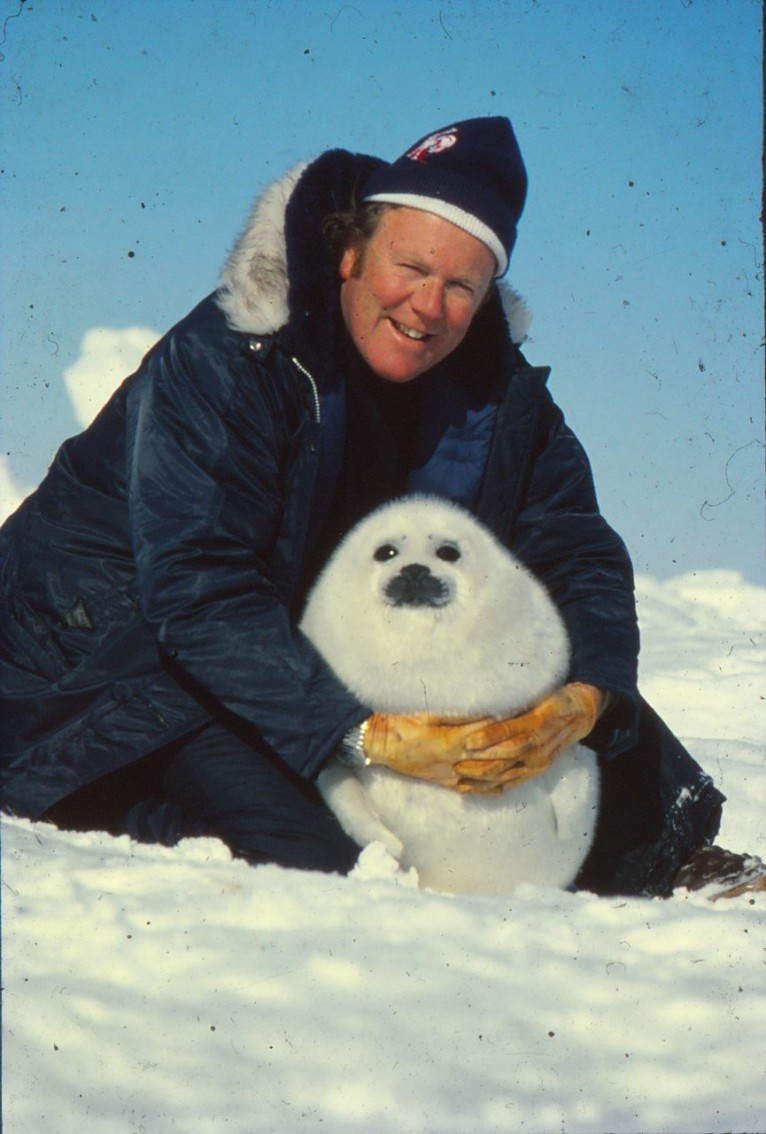
Antarctic Affair
Fergus O'Gorman
- 📅Tuesday, March 14, 2023
- 🕥10:30 - 11:30
Fergus O'Gorman was born in Clontarf, educated in Christian Brothers School. After his graduation from UCD with a degree in biology, he was offered a job as a biologist at FIDS (Falkland Islands Dependency Survey) now called British Antarctic Survey, to work in Antarctica for three years from 1957 to 1960. Having completed and written up his project results in London Hospital Medical School, he returned to a lecturing post in Zoology in UCC.
Following this Fergus had many interesting roles :
Scientific adviser in the Department of Lands and Forestry, and setting up the Wildlife Service,
A secondment to UNFAO as head of their worldwide Wildlife Programme brought him to Rome for several years,
Another opportunity brought him to work in the Camargue in the south of France for the Roche pharmaceutical company,
Back in Dublin, he lectured in both TCD and UCD,
His final role in UCD was the establishment and development of the Masters Programme in Conservation Management,
He also presented a weekly slot in RET radio on environmental issues and made a six-part series for RTE television called Breeding Space,
Throughout his life he has been an advocate for the protection of wildlife and the environment.
Fergus's book, Antarctic Affair, was published in September 2022. This presentation will describe Fergus's unique experience of spending three years working as a scientist in the Antarctic. He is, he believes, the only living Irishman to have wintered in the Antarctic, following on from his Irish Heroes, Ernest Shackleton and Tom Crean.
Feb
28
10:30
The History and Future of the "Evangelical" Approach to Entrepreneurism.
Professor Andrew Burke
- 📅Tuesday, February 28, 2023
- 🕥10:30 - 11:30
This presentation takes us on a journey from the past into the future. It begins with a history of the perception of entrepreneurship from both societal and government policy perspectives. It traces the history of public perception and policy on entrepreneurship from a period where business start-up was largely ignored, through to a period from the 1980s to the present day where encouraging entrepreneurship is seen as a cornerstone of industrial policy in most developed economies.
Entrepreneurship is seen as a core means of creating a more economically developed and happier society. In this new era entrepreneurs not only became the heroes who created jobs and economic growth but became media stars - celebrated for their path breaking innovative ideas that transformed people's lives for the better. They replaced capitalist society, where business owners' profits and workers' wages were in conflict with one another, to a scenario where entrepreneurial businesses were able to pay higher wages while also making high profits. This is the "evangelical" era of entrepreneurism where starting more new businesses is encouraged and always seen as a net benefit to the economy and well-being of society. The talk then takes a look at the challenges facing society today and in the foreseeable future - particularly, in relation to eco-sustainability, the science of happiness, democratic-based values, the housing crisis and inequality - and explores what it all implies for the evangelical approach to entrepreneurship. Is it time for this public policy era to come to an end? Or is it still relevant and in fact does it need to be supercharged? Or does the approach require a complete redesign? Find out at this talk which will be delivered in a narrative style, peppered with stories and scientific facts!
Professor Andrew Burke is Dean of Trinity Business School and Chair of Business Studies at Trinity College Dublin. During his nearly eight-year tenure as Dean, Trinity Business School has grown to over two and a half times its original size, secured Triple Accreditation (AACSB, AMBA and EQUIS), built and self-funded a new €80 million eco-friendly building, moved into the top tier of Financial Times rankings and being ranked in the top four business schools in the world by the Economist for Gender Diversity. Through extensive participation across the school's wider community he has overseen two strategic visions, encompassing an internationalisation strategy in 2116 and most recently the "Transforming Business for Good Strategy: Strategy Horizon 2030". Previously, he was Bettany Chair and Founding Director of the Bettany Centre for Entrepreneurship at Cranfield School of Management. He has held faculty positions at the Universities of Warwick, Edinburgh, St Andrew's, Balliol College Oxford and visiting professorships at UCLA. He delivered the first entrepreneurship courses at the University of Edinburgh. He is widely published in top ranked international journals including the Harvard Business Review, Journal of Management Studies, Journal of Business Venturing, Regional Studies, International Journal of Industrial Organization, the Oxford Bulletin of Economics and statistics, and Small Business Economics. His work has been presented at the EU Commission, World Trade Organization, HM's Treasury, UK Houses of Commons and Lords as well as through media such as Forbes magazine, The Financial Times, RTE and BBC television and radio. He is a former President and Ents Officer of UCD's Students' Union, hosting bands such as the Pogues, Dr Feelgood, the Damned, Frankie Goes to Hollywood and the Human League during his time in these roles.
Feb
14
10:30
Snowdrops.
Assumpta Broomfield
- 📅Tuesday, February 14, 2023
- 🕥10:30 - 11:30
Ms Broomfield has promised to deliver her fascinating talk about SNOWDROPS next Tuesday, but due to computer problems cannot forward any summary and biography.
Jan
31
10:30
On the trail of the Hound of the Baskervilles
Professor Darryl Jones.
- 📅Tuesday, January 31, 2023
- 🕥10:30 - 11:30
"Killed Holmes". This is what Arthur Conan Doyle wrote in his diary in December 1893, on the publication of "The Final Problem", whose shocking conclusion saw the great detective plunge to his doom off the Reichenbach Falls, locked in the embrace of his deadly nemesis, Professor Moriarty. But, as a convinced spiritualist, Arthur Conan Doyle knew that death is never the end, and so it was that in the August 1901 edition of the Strand Magazine, Sherlock Holmes was sensationally brought back to life for his greatest adventure, "the Hound of the Baskervilles". In this lecture, I will look at the genesis and meaning of this most famous of all Sherlock Holmes stories.
Darryl Jones is Professor of Modern British Literature and Culture, and a Fellow of Trinity College Dublin, where he has taught since 1994. He is the author or editor of fourteen books, most recently "Horror : a very Short Introduction" (OUP, 2021). He is the General Editor of the forthcoming New Oxford Sherlock Holmes (9 volumes), for which series he has edited "The Hound of the Baskervilles". He is currently working on a biography of the ghost-story writer M.R. James, and an editor of Arthur Conan Doyle's book of war stories, "The Green Flag", for the multi-volume Edinburgh edition of the Collected Works of Arthur Conan Doyle.
Jan
17
10:30
What can bat genomes teach us and why should we care?
Professor Emma C.Teeling
- 📅Tuesday, January 17, 2023
- 🕥10:30 - 11:30
Of all mammals, bats possess the most unique and peculiar adaptations that render them as excellent models to investigate the mechanisms of extended longevity and potentially halted senescence. Indeed, they are the longest lived mammals relative to their body-size, with the oldest bat caught being >41 years old, living approx. 8 times longer than expected. Bats defy the "rate of living" theories that propose a positive correlation between body-size and longevity, as they use twice the energy as other species of considerable size, but live far longer. The mechanisms that bats use to avoid the negative physiological effects of their heightened metabolism and deal with an increased production of deleterious Reactive Oxygen Species (ROS) is not known, however it is suggested that they either prevent or repair ROS damage. Bats also appear to have resistance to many viral diseases such as rabies, SARS and Ebola-like viruses and are the suspected reservoir species for a huge diversity of newly-discovered viruses, including Sars-CoV-2. This suggests that their innate immunity is different to other mammals, perhaps playing a role in their unexpected longevity. Here the potential genomic basis for their rare immunity and exceptional longevity is explored across multiple bat genomes and divergent ageing and immune related markers (eg microbiome, telomeres, mitochondria, cellular dynamics, cytokine response) studied in wild bat populations. The immediate benefits of sequencing reference quality genomes from bat species throughout the world is outlined, highlighting the potential for disease surveillance and pandemic preparedness. These findings provide a deeper understanding of the causal mechanisms of ageing and tolerant immunity, potentially uncovering the key molecular pathways that could be utilised to benefit society and new solutions to protect us from disease.
Professor Emma Teeling is a world-class leader in cross-cutting fields of mammalian phylogenetics and comparative genomics, with particular expertise in bat biology. She established the Laboratory of Molecular Evolution and Mammalian Phylogenetics in 2005, is a Founder Director of the genome consortium Bat1K and the Full Professor of Zoology at University College Dublin, Ireland. She has pioneered and leads global research into the development of bats as new models for healthy ageing and disease tolerance. She has been awarded prestigious personal grants to pursue this research - European Research Council (ERC) Starting grant (2013-2018), a science Foundation of Ireland (SFI), President of Ireland Young Researcher Award (2006-2012), an Irish Research Council (IRC) Laureate Award (2018-2022), and an SFI Future Frontiers Award (2020-2025). Her record of leadership and research excellence is demonstrated by her publication record of >119 internationally peer-reviewed papers, 6 book chapters, 4 invited subject reviews. A number of these publications have overturned conventional paradigms in mammalian biology and therefore have been published in high profile journals such as Nature (n=4), Science (n=5), Proceedings of the National Academy of Sciences (n=4), Nature Communications (n=2), Nature Ecology and Evolution (n=2), Science Advances (n=2). Her high standing in the international community is highlighted by a total citation record of 13,505 (Google Scholar 13/12/2022); prestigious international keynote lectures and public presentations (eg TED Talk; . 567,977 views; EU Parliament; World Forum, Davos; BBC's Science Club, NOVA documentary, Royal Institution Christmas Lectures); nomination to prestigious academic boards and institutes (eg Irish Research Council Board, 2015-2021; Member of Royal Irish Academy, 2016) and has been awarded Chevalier des Palmes Académiques, 2017.
Jan
03
10:30
Hedy Lamarr.
Professor Ruth Barton
- 📅Tuesday, January 3, 2023
- 🕥10:30 - 11:30
Looking at the career of Austrian-born film star Hedy Lamarr, I will be considering how she exemplified the prejudices of the day (and beyond) that beautiful women couldn't also be intelligent.
Ruth Barton is Professor in Film-Studies at Trinity College Dublin. She has written widely on Irish cinema. Her most recent monograph, Irish Cinema in the Twenty-first Century, was published in 2019 by Manchester University Press. She has written critical biographies of Hedy Lamarr and Rex Ingram and is a regular film critic on RTE Radio's arts programme, Arena.
Nov
08
10:30
Haydn's Quartets
- 📅Tuesday, November 8, 2022
- 🕥10:30 - 11:30
Franz Joseph Haydn (1732-1809) was an Austrian composer, one of the most prolific and prominent composers of the Classical Period. Haydn wrote 107 symphonies in total, as well as 83 string quartets, 45 piano trios, 62 piano sonatas, 14 masses and 26 operas, amongst countless other scores.
Today we listen to Haydn's String Quartet in D major, Op. 20, n*4.
This quartet, played by an Anglo-Irish foursome, the Carducci Quartet, is a very good example of Haydn's music.
Nov
01
10:30
Meteorites and the birth of the solar system.
Ian Sanders
- 📅Tuesday, November 1, 2022
- 🕥10:30 - 11:30
This talk explains the very first years of the Solar System based on evidence preserved in meteorites.
Meteorites are rocks from space. A few of them are pieces of once-molten metal, and some are made of rock called basalt, but most of them are aggregates of various kinds of rocky and metallic "bits" compacted together into hard rock - a kind of cosmic sandstone. Meteorites turn out to be fragments of baby planets called planetesimals that formed from 4567 until about 4562 million years ago out of a huge disc of gas and dust that surrounded the infant Sun. Most planetesimals are thought to have merged to make the planets we know today, but fragments of a few survive, battered and broken, in asteroids between the orbits of Mars and Jupiter, and it is these remnants, the asteroids, that supply us with meteorites.
The talk will address questions about this view of the Solar System's origin. What was the nature of the dust in the disk? Where did the dust come from? How do we know precisely when planetesimals formed? Why did some planetesimals melt while others did not? The talk will also report on developments in astronomy which, with new high-resolution images of young stars with dusty disks and new planets, corroborate the story from meteorites. There will be a chance to handle meteorites - i.e. to touch pieces of asteroids.
Ian Sanders grew up in rural Leicestershire but spent his later childhood in southeast London where he was influenced by some hugely inspirational teachers. He spent six years at St John's College in Cambridge where he read Natural Science and specialized in mineralogy and petrology. Since then he has enjoyed teaching and research in the Department of Geology at TCD, even after having officially retired in 2014.
Oct
18
10:30
Interpreting the physical features of the Faddan More Psalter.
Dr. John Gillis
- 📅Tuesday, October 18, 2022
- 🕥10:30 - 11:30
In July 2006 an early medieval manuscript was unearthed in a bog in Co. Tipperary in the centre of Ireland. The widely reported event was the start of ten years of research and conservation of what is now one of the National Museum of Ireland's top ten treasures. Dating from the late eighth century, the codex is an illuminated psalter, written in Latin, from the age of the great Irish illuminated manuscripts. Although in a poor state of preservation having been entombed in a saturated bog for over a millennium, many features of the original book have somehow survived. One unexpected feature was the vegetable tanned leather cover., which seemed to draw stylistically from Near eastern models for its form and is unknown to us in a Western context. This lecture will describe the material nature of the Psalter and some of the unique
discoveries made along the way of what is the first Insular manuscript to be discovered in over two hundred years.
Dr. John Gillis is a Senior Manuscript Conservator and currently works in Trinity College Dublin at the Conservation department. In 1988 he established and worked as Head of the Conservation in the Delmas Conservatory Bindery at Archbishop Marsch's Library, Dublin. John has been teaching book conservation techniques and theory in Italy for over twenty-five years. He lectures both at home and abroad and has been published in a number of journals and books. His major achievement to date has been the conservation of the Faddan More Psalter at the National Museum of Ireland Conservation Department over a four-and-a-half-year period, for which he won the Heritage Council of Ireland Conservation Award in 2010. He completed a doctoral thesis focusing on codicological and historical aspects of the Faddan More Psalter. John has twice been a resident scholar in the Getty Research Institute in Los Angeles and has lectured widely in the United States while carrying out his research. He has recently published a book detailing all aspects of the Faddan More Psalter, from art historical, conservation, codicological, palaeography and materiality
Oct
04
10:30
Evacuees and the Role of Women in WW2
Tom Holloway
- 📅Tuesday, October 4, 2022
- 🕥10:30 - 11:30
This talk describes the enormous impact that WW2 had on so many people especially women and children in the UK. Very large numbers were evacuated to places of relative safety. The role of women changed dramatically as they took on new roles in factories and hospitals and even transporting aircraft. This talk is certainly very relevant today.
Tom Holloway worked for IBM for 25 years, during which he set up several early (1973) email links for the Insurance and Oil industries and was also on the development team of IBM's first email product (Text Routing System, 1975).
After some years in marketing and IBM's Internal Education Departments (during which he was responsible for developing and teaching wide-area-network technology) in 1986 he was assigned for two years to the UK National Council for Educational technology, looking at access technology for children with special needs and also started the "Chatback Project" for communication-impaired children. He later set up the IBM-UK Support Centre for People with Disabilities.
His enthusiasms are cycle-touring, country dancing, and being friends with his six children and twelve grand-children. He retired in 1990 in order to develop TIMEWITNESSES and WORLD-U3A Online full-time.
Sep
20
10:30
Ireland in the Early Modern World.
Jane Ohlmeyer
- 📅Tuesday, September 20, 2022
- 🕥10:30 - 11:30
By the 1660s Irish people were to be found in the Spanish, French and Dutch Caribbean, the Portuguese and later Dutch Amazon, across New Spain, and the English settlements from Newfoundland to the Chesapeake in North America, the Caribbean, India and the Mediterranean, at Tangier in North Africa. At sea, they served in royal navies, slave ships, or as pirates and privateers. On land, they joined colonial settlements, forged commercial networks, worked as administrators, soldiers, educators, priests, preachers, servants and labourers. By the 1680s Irishmen, involved in the trade of enslaved people, were also based in West Africa. This lecture looks at who these people from Ireland were, where they went and why.
Professor Jane Ohlmeyer, MRIA, FTCD, FRHistS, is Erasmus Smith's Professor of Modern History (1762) at Trinity College Dublin. She was the founding head of the School of Histories and Humanities and trinity's first Vice-President for Global Relations (2011-14). She was the driving force behind the 1641 Depositions Project and the development of the Trinity Long Room Hub Arts and the Humanities Research Institute which she directed (2015-20). She chaired the Irish Research Council (2015-21). She is the PI for "Shape-ID", "Shaping Interdisciplinary Practices in Europe" and a MSCA Co-fund called "Human+", both funded by European Commission's Horizon 2020 programme. She is the author or editor of numerous articles and 11 books. Her next book on "Ireland, Empire and the Early Modern World", which she gave as the 2021 Ford Lectures in Oxford, will appear next year.
Sep
06
10:30
The Modern Irish Art Market.
James O'Halloran
- 📅Tuesday, September 6, 2022
- 🕥10:30 - 11:30
James O'Halloran is managing Director of Adam's, Ireland's leading Fine Art Auctioneers and Valuers. Founded in 1887 and with a continuous presence on Saint Stephen's Green for that one hundred and thirty-five years, Adam's have developed expertise in a variety of fields and currently offer a number of specialist auctions, ranging from Important Irish Art, Fine Period Furniture and decorative Arts including Asian Art, Mid Century Modern Design and Contemporary Art, Fine jewelry and Watches, Silver and Objects of Vertu, Historical Memorabilia as well as Vintage Wines and Spirits.
James, a graduate of UCD, joined the firm in 1981 and during that time worked with James Adam, the founder's grandson, and with Brian Coyle who is the company's current Chairman. In 1986 he became a member of the Irish Auctioneers and valuers Institute and was elected its President in 2005. He is a Fellow of the Society of Chartered Surveyors Ireland and the Royal Institute of Chartered Surveyors. James works predominantly as a General Valuer and as specialist in the Irish Art department.
"The demand for modern Irish art has never been greater!" but within that glib remark a great deal of nuance resides. I will endeavour to discuss the subtleties of the Irish market and the role that taste and fashion have on our buying choices. This short illustrated talk will identify the new trends in the market, look at the blue-chip classics and also at some of the artists and styles that have fallen out of favour, for now at least.
Jun
28
11:00
G.F. Handel
Marie Comiskey
- 📅Tuesday, June 28, 2022
- 🕥11:00 - 12:00
This inhouse (non-zoom) session starting at 11.00 am entitles GF Handel will be given by Marie Comiskey who will present a summary of Handel's life events and play music to illustrate his Baroque-style of orchestral, operatic and his famous oratorio styles.
This meeting is open to all members.
Jun
21
11:00
1972 on the Berlin Wall.
Dr. Philippe Hamel
- 📅Tuesday, June 21, 2022
- 🕥11:00 - 12:00
After the defeat of the Third Reich, its capital Berlin was divided into 4 occupation zones by the Allied Powers. In 1961 the Soviet authorities seeing large numbers of their active population emigrating to the West decided to build a wall isolating the American, British and French sectors. This talk describes the building of the Wall with all its obstacles, the ingenuity of East-Berliners to defeat it so as to seek asylum in the West, and the role of the Western Allied Forces. This talk will end with a short tour of East Berlin in the context of friendship between the 3 Western Powers and the Soviet Regime.
Prior to his arrival in Ireland at the end of 1972, Philippe Hamel served in the French Army as a non- commissioned officer in a cavalry regiment at the Berlin Wall. First teaching French in various branches of the Irish Civil service as well as French, German and Spanish at secondary school level, he studied Theoretical Linguistics in UCD where he obtained his Ph.D. in 1982. He then lectured in Syntax, Semantics and Pragmatics whilst pursuing his research in the Logic of Tenses and Speech Acts Theory. For the pleasure of French readers Philippe Hamel has published a book of short stories.
Jun
07
11:00
A brave new vision for Education in Ireland : The Dalkey School Project, 1974 to 1984
Dr. Aine Hyland
- 📅Tuesday, June 7, 2022
- 🕥11:00 - 12:00
This talk will provide an overview of the development of primary education in Dalkey, Co Dublin over the past 200 years. It will focus in particular on the Dalkey School Project, which opened in 1978 and was the first multi-denominational national school under lay patronage in Ireland since the foundation of the State in 1922. The talk will document the challenges faced by the school founders in convincing government to recognise and fund the school on the same basis as they funded schools owned and run by the churches.
Aine Hyland, PhD, D.Litt, D.Sc, M.R.I.A. is Emeritus Professor of Education and former vice-president of University College Cork. She was a founder member of the Dalkey School Project and has recently published a book on the early years of the Project. She is well-known in educational circles in Ireland and has been awarded a number of honorary doctorates in recognition of her contribution to Irish Education. She was elected a member of the Royal Irish Academy in 2018.
May
31
11:00
the Baroque Music Period from 1590 to 1750..
Peter Ryan
- 📅Tuesday, May 31, 2022
- 🕥11:00 - 12:00
The Baroque Music Period from 1590 to 1750 witnessed greater change in music form and ideas than any other period and its effects are still with us in the 21st century. The reevaluation of how music could enhance the effect of the spoken word has given us opera and song as we know then today. Instrumental music was also developed during this time and the size and capabilities of the orchestra enhanced. The presentation by Peter Ryan will include a brief history of the period and outline the characteristics of Baroque music. There will be musical extracts from Opera, Oratorio, Cantata, Sonata, Concerto and Suites, all products of the Baroque Musical Period.
May
24
11:00
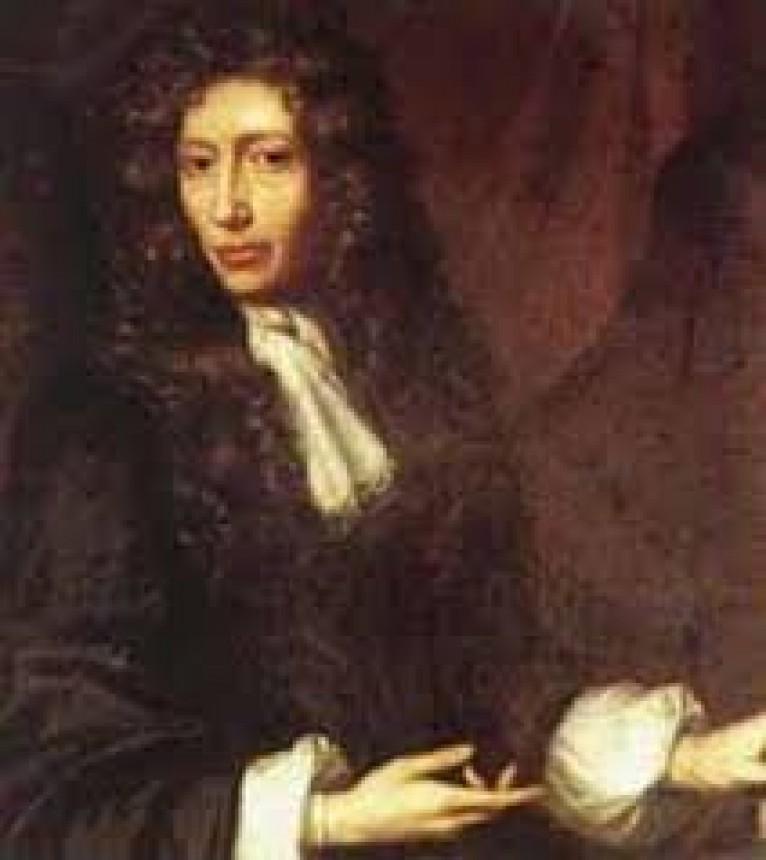
The Hon. Robert Boyle (1627-91) : "The Sceptical Chymist" and a great Irish scientist.
Dr Peter Boyle
- 📅Tuesday, May 24, 2022
- 🕥11:00 - 12:00
Robert Boyle was the seventh son of Richard Boyle, The Great Earl of Cork, who in his day was one of the richest and most powerful men in the whole of the Kingdom. Robert was born in Lismore Castle but spent most of his working life in Oxford and London. He became famous for his discovery of "Boyle's Law" and his pioneering ideas on chemistry, so much so that he became known as the "Father of Chemistry". He was devoutly religious, and maintained that his science supported his religion. He was a founder member of the Royal Society and he sponsored the printing of the first translation of the Old testament in Irish.
Dr Peter Boyle is a Fellow Emeritus of Trinity College. He was brought up in County Sligo in the house in which the famous mathematician, Sir Gabriel Stokes (of "Stoke's Law" fame) was born. He was educated in The King's Hospital School in Dublin and then in Trinity College, where he was elected a Scholar and then took a moderatorship in chemistry, followed by a Ph.D. He joined the academic staff of Trinity and was elected a Fellow of the College in 1972. He remained working in Trinity until his retirement, with periods abroad working in USA and Germany. In 2015 he published a new book on the Provosts of Trinity College.
May
10
11:00
Nature is in crisis - What can we do about it ?
Professor Jane Stout.
- 📅Tuesday, May 10, 2022
- 🕥11:00 - 12:00
"Biodiversity" is the variety of life on this planet, and underpins our ecosystems, health and economies. But it is in trouble. What is driving its decline, and what are the consequences of this ? How are the biodiversity and climate crises linked ? And what can we do about it ? This talk will address the facts and myths around the climate and biodiversity crises, and discuss how they are linked, and how biodiversity loss can affect our health and well-being, and our day to day lives. We will also discuss what we can do as individuals, as communities, and as civil society to engage people from all walks of life with the issues, and implement positive action for biodiversity.
Jane Stout is a Professor at Trinity College Dublin whose work focuses on understanding the complexities of natural ecosystems and the interaction between nature and people. An internationally renowned expert on pollinator and pollination ecology, Jane is a prominent voice for biodiversity and its value. Her research helps to identify business risks associated with biodiversity loss, and development of habitat management solutions, which has significant implications for some of the poorest communities in the world.
In Trinity College, Jane is coordinator of the Nature+, the Trinity Centre for Biodiversity and Sustainable Nature Based Solutions. She teaches undergraduate and post-graduate students, and leads a large team of researchers in the Plant-Animal Interactions Research Group. Jane recently led a biodiversity audit of Aras an Uachtarain and published a report on "Discovering Trinity's Biodiversity".
Beyond Trinity, Jane works across many disciplines, and with a broad range of public and private organisations, to improve environmental policy and practice.
She is co-founder of the All-Ireland Pollinator Plan, one of the most successful conservation projects in Ireland. Jane is also co-founder and Chair of natural Capital Ireland, a non-profit organisation with a vision for a future where nature, and the benefits for humanity derive from it, are valued, protected and restored.
Jane played a key role in the first National Biodiversity Conference in 2019 and is playing a leading role in the development of a Business and Biodiversity Platform for Ireland. She regularly contributes to public issues, through a variety of means, including directly with government bodies, but also via the media - she had a regular column in the Irish Times, and is often on TV, radio and in the press.
May
04
10:30
- 📅Wednesday, May 4, 2022
- 🕥10:30 - 11:30
For Art Appreciation Group ONLY : Two Impressionists
Apr
26
11:00
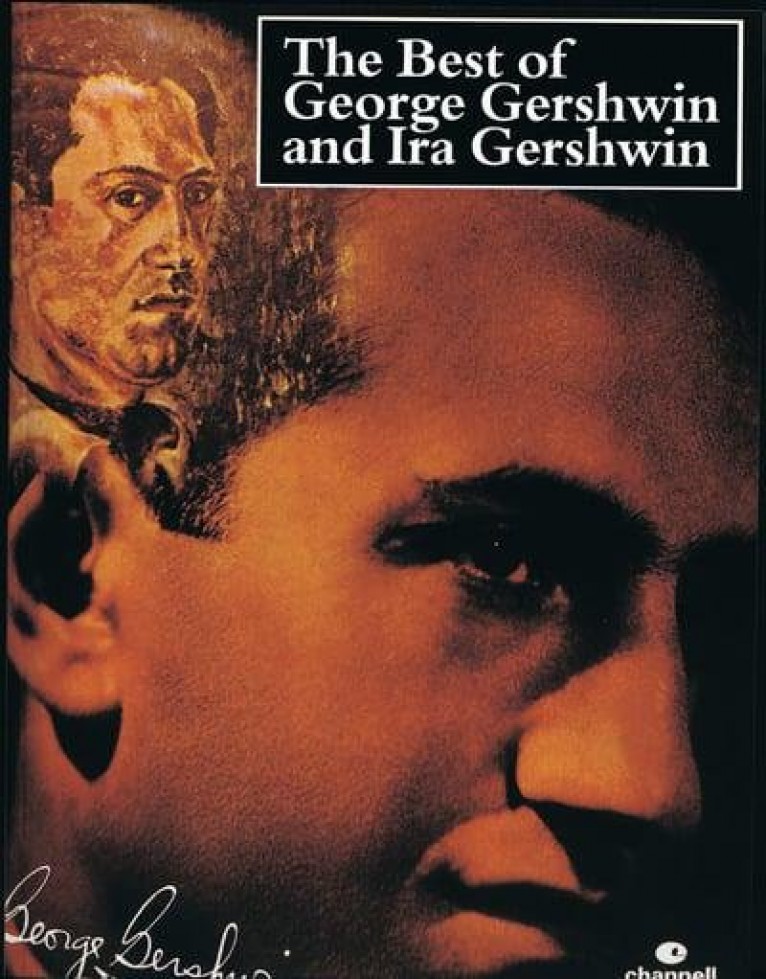
George Gershwin.
Raymond Burke.
- 📅Tuesday, April 26, 2022
- 🕥11:00 - 12:00
Raymond Burke will give an experimental talk on this interesting composer in St Joseph's Community Centre on Tuesday 26 April at 10.30.
An experimental in-person event, entry will be limited to 40 full members for health and safety reasons and will not be zoomed. Details of how to apply to attend will be advised nearer the time of the talk.
George Gershwin is one of the most recognizable American composers ever. "An American in Paris", "Porgy and Bess", "Lady be good" are just some of his many compositions. Gershwin, of Russian-Jewish ancestry, was born in New York in 1898 and died at the young age of 38, leaving behind a rich tapestry of compositions, many of which he wrote with his brother Ira. Gershwin's signature style and genius were in blending vastly different musical styles, including jazz and classical, in revolutionary ways.
Apr
12
11:00
In the wake of the Vikings.
Chris Stillman
- 📅Tuesday, April 12, 2022
- 🕥11:00 - 12:00
This talk is about a cruise from Bergen to Quebec. It is about the geographical and geological history, the contrasting origins of the Scandinavian and Greenland people.
A few years ago Chris Stillman had the pleasure of travelling from Norway to Canada via Iceland, Greenland and Nova Scotia on a cruise-liner. He was able to show that there were several similarities between the human history and the geological one - though the time-scales are rather different : human measured in thousands of years and geological in millions.
The Earth's crust is in continual movement, with the surface layers cracking and molten lava erupting as volcanoes. The ocean floors are built in this way, for millions of years, and we can see this process of cracking open and new crust filling the cracks in Iceland.
The continents are cracked apart over millions of years with the new ocean-floors growing between them. The cruise crossed the northern Atlantic which is still growing.
The Vikings were seamen who sailed across this widening ocean several hundred years ago. Their ancestors had in fact begun in Africa and disturbed by volcanic eruptions, they migrated from north-eastern Africa a few thousand years ago, migrating northward across Europe and settling in Scandinavia.
Greenlanders have a rather different history. Neighbours to the Viking ancestors in Africa, they had taken a different route, migrating eastward across south-east Asia, then northward to Arctic Siberia. As climates changed during the Ice-Age they were able to migrate eastward across North America to northern Greenland and eventually southern Greenland, where they met their one-time African ancestors. The Vikings then sailed on to Nova Scotia where they established a short-lived trading centre.
-------------------------
Chris Stillman is a retired professor of geology. He graduated at Leeds University and in 1959 joined the Northern Rhodesian Geological Survey for six years. He then took up a lectureship in Trinity College where he taught and researched until 2000. He then took up lecturing on cruise liners and his research on volcanic rocks took him around much of the world. His talk today makes use of much of this research.
Mar
29
11:00
Elizabeth I and the perils of female monarchy in the sixteenth century
Prof Ciaran Brady
- 📅Tuesday, March 29, 2022
- 🕥11:00 - 12:00
- 🏟ZOOM meeting (map)
Ciaran Brady was formerly Professor of Early Modern History and Historiography, and is now Fellow Emeritus, at Trinity College Dublin. Originally a specialist in sixteenth century Irish and English history, he developed a second interest in the theory and practice of historical thinking and writing, and has published widely in both areas. Joint editor of the peer review journal Irish Historical Studies for ten years, he has been President of the Historical Society and the Historical Association of Ireland. A founder member of the Trinity Access Programme, he was deeply involved in the construction and development of the new Leaving Certificate History syllabus by the National Council of Curriculum and Development. He is a member of the Royal Irish Academy.
The present talk, ‘Elizabeth I and the perils of female monarchy in the sixteenth century’ is a reflection of his dual interests [in sixteenth century English and Irish history and in historiography]. Taking a critical look at the several ways in which Elizabeth has been interpreted and judged by generations of historians, he will seek to identify, on the basis of verifiable evidence, the key values and priorities by which Elizabeth herself and her contemporaries judged her actions and attitudes. An attempt will be made to assess the degree to which Elizabeth succeeded in overcoming the many obstacles confronting her as an unmarried female monarch, and also the degree to which she fell short.
Mar
15
11:00
All about Confidence : Confident Ageing.
Professor Ian Robertson
- 📅Tuesday, March 15, 2022
- 🕥11:00 - 12:00
Probing the science and neuroscience behind confidence that has emerged over the last decade, Professor Ian Professor Ian Robertson outlines the evidence gathered in his best-selling book "How confidence works" (Penguin, 2021). He explains how confidence plays out in our minds, our brains and indeed our bodies. He explains where it comes from and how it spreads. Confidence is critical when we are young, with compound interest-type effects on achievement, but it is also critical in the third age when negative aging stereotypes can eat away at it and undermine our capacities.
Professor Ian Robertson is Co-director of the Global Brain Health Institute (Trinity College Dublin and University of California at San Francisco) and Emeritus Professor of Psychology at TCD. A trained clinical psychologist as well as a neuroscientist, he has written many hundreds of scientific papers as well as five popular science books and numerous newspapers and magazine articles and comment pieces in the Guardian, Times, Telegraph, Irish Times, Time Magazine and New York Magazine amongst others. He has appeared on UK, US and Asian television and has featured in several documentaries. His recent book "How confidence works : The new science of self-belief" is published by Penguin.
Mar
14
10:30
Antarctic Affair
Fergus O'Gorman
- 📅Monday, March 14, 2022
- 🕥10:30 - 11:30
Fergus O'Gorman was born in Clontarf, Dublin, educated in Christian Brothers School. After his graduation from UCD with a degree in biology, he was offered a job as a biologist at FIDS, (Falkland Islands Dependency Survey) now called British Antarctic Survey, to work in Antarctica for three years from 1957 to 1960. Having completed and written up his project results in London Charing Cross Hospital Medical School, he returned to a lecturing post in zoology in UCC.
Following this Fergus had many interesting roles:
Scientific Adviser in the Department of Land and Forestry, and setting up the Wildlife Service.
A secondment to UNFAO as head of their worldwide Wildlife Programme brought him to Rome for several years.
Another opportunity brought him to work in the Camargue, in the south of France for the Roche pharmaceutical company.
Back in Dublin, he lectured in both TCD and UCD.
His final role in UCD was the establishment and the development of the Masters programme in Conservation Management.
He also presented a weekly slot for RTE radio on environmental issues, and made a six-part series for RTE television called Breeding Space.
Throughout his life he has been an advocate for the protection of wild life and the environment.
Fergus's book, Antarctic Affair, was published in September 2022. This presentation will describe Fergus's unique experience of spending three years, working as a scientist in the Antarctic. He is, he believes, the only living Irishman to have wintered in the Antarctic, following on from his Irish heroes Ernest Shackleton and Tom Crean.
Mar
14
10:30
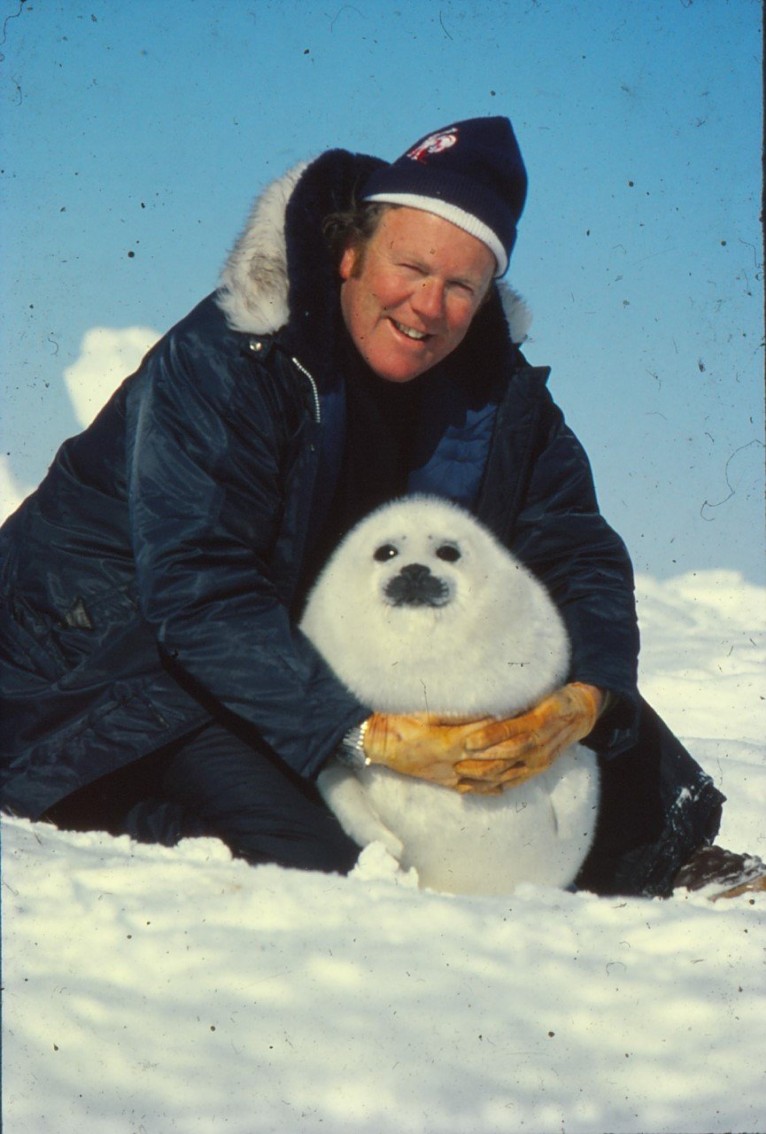
Antarctic Affair
Fergus O'Gorman
- 📅Monday, March 14, 2022
- 🕥10:30 - 11:30
Fergus O'Gorman
Mar
08
11:00
The Beatles
William Hennigan
- 📅Tuesday, March 8, 2022
- 🕥11:00 - 12:00
This talk will touch on the young Beatles growing up, the formation and development of the Band and what made them special and successful and will be illustrated with some of their music.
William Hennigan is a Chartered Accountant by profession, now retired. He spent most of his working life in Financial Services specializing in taxation. William's main interest is music : he sings in a number of choirs and plays piano on his own and with others. He also enjoys golf, reading, gardening and walking, in addition to doing some voluntary work.
Mar
01
11:00
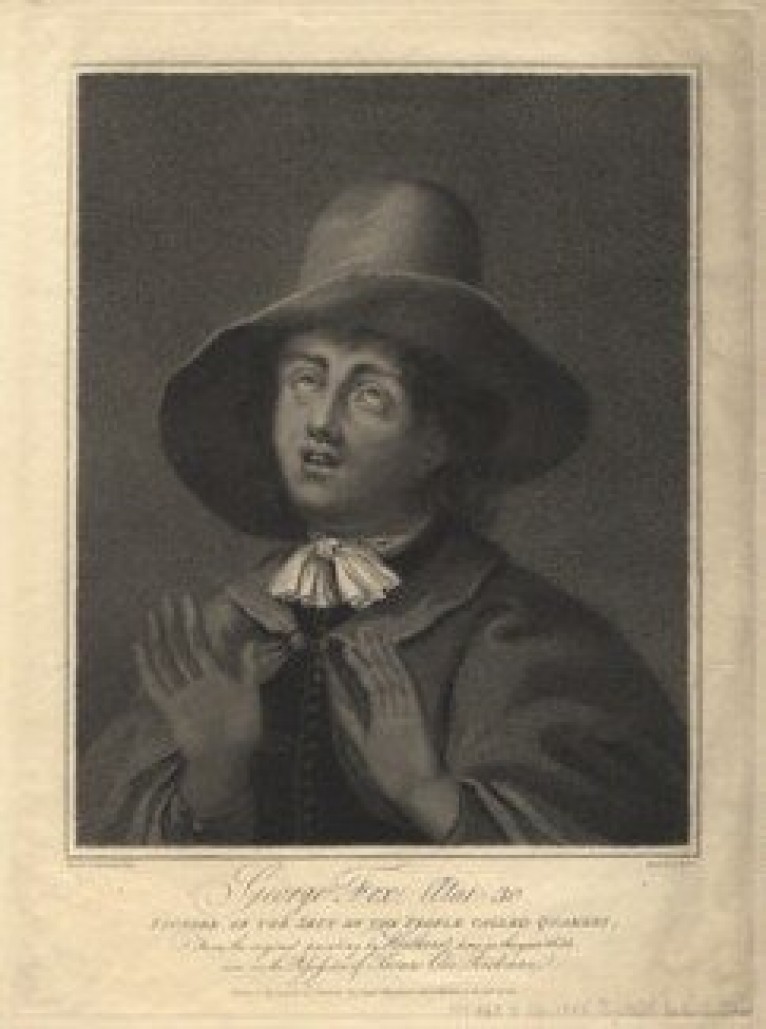
Walking Cheerfully over the World : Quakerism in Ireland.
Dr. John McCormick
- 📅Tuesday, March 1, 2022
- 🕥11:00 - 12:00
John McCormick (b.1938) : Having studied French at TCD John went on to write a PhD thesis on the French theatre director Gaston Baty. He lectured for three years at the Abo Akademi (Finland) and five at the University of Glasgow before returning in 1970 to TCD to teach French. In 1984 John transferred to head the newly established drama department at TCD. He has published several books on nineteenth century French and British theatre, and since the 1990s has become internationally recognized as a historian of European puppet theatre. Working as a volunteer at the Friends' Historical Library Dublin, he has edited the accounts of Arthur and Gorgon Pearson of their work with the Friends' Ambulance Unit in two World Wars and, more recently, Clodagh Grubb's book "Samplers Sewing and Simplicity in Quaker Ireland".
Quakerism evolved during the Civil War in seventeenth century England. George Fox, the leader of the movement, was a charismatic figure. With the idea that there is a part of God in everyone, he saw no need for intermediaries, such as priests, between man and God. With a return to the simplicity of early Christianity, Quakerism has no formal dogma or doctrine and a Meeting takes the form of a silent assembly receptive to the Holy Spirit, which may sometimes inspire ministry.
Quakers were peaceful people and today peace is one of the most important tenets of the Society. With their strong belief in the equality of all human beings, Quakers have been leaders in education and in the anti-slavery movement and today many are heavily involved in social issues.
This talk will look at Quakerism from a historical, religious and social angle.
Feb
15
11:00
Dunsink Observatory
Professor Peter Gallagher
- 📅Tuesday, February 15, 2022
- 🕥11:00 - 12:00
Professor Peter Gallagher, Director of DIAS Dunsink Observatory, Dublin Institute for Advanced Studies.
Dunsink Observatory was founded in 1785 by Trinity College Dublin following a bequest from Provost Francis Andrews. In the 19th and 20th centuries, its facilities were used to measure the distances to nearby stars, and more practically, to set Dublin Mean Time. Among its famous directors was Sir William Rowan Hamilton, who was appointed Royal Astronomer of Ireland at Dunsink at the age of 21, and it was at the Observatory that he undertook his ground-breaking work on optics, mechanics and algebra. Dunsink was transferred to DIAS in 1947, and for the past 75 years has been used as a location for astronomical research and public engagement. In this talk, I will describe the history of the observatory, some of its resident astronomers, and talk about future plans for the observatory.
Professor Peter Gallagher is Head of Astrophysics at the Dublin Institute for Advanced Studies (DIAS) and an Adjunct Professor in physics at Trinity College Dublin. His research is primarily concerned with understanding solar storms and their impact on Earth. He has a long association with ESA and NASA and leads the Irish LOFAR radio telescope project at Birr Castle. Peter received a BSc in Physics and Mathematics from university College Dublin in 1995, followed by an MSc in Optoelectronics and a PhD in Solar Physics from Queen's University Belfast in 1999. He then spent 6 years in the US, firstly as a Postdoctoral Research Fellow at Owens Valley Solar Array and Big Bear Solar Observatory in California, then as an Instrument Scientist at NASA Goddard Space Flight Center. Following 13 years undertaking research and teaching in Physics and Astrophysics at Trinity College Dublin, he was appointed Head of Astrophysics and Director of Dunsink Observatory at DIAS.
Feb
01
11:00
The O'Donnells of Tyrconnell - Dynasty, Lineages & their Monuments
Francis M. O'Donnell
- 📅Tuesday, February 1, 2022
- 🕥11:00 - 12:00
- 🏟ZOOM meeting (map)
The talk will be based on his book, "The O'Donnells of Tyrconnell - a Hidden Legacy", and its re-discovery of lost lineages, their heritage, and the quandaries of survival at home and in exile. The treatment will expand beyond the familiar tales of Red Hugh O'Donnell, the Spanish Armada, the Siege of Kinsale, the Flight of the Earls, and the Plantations that led to further exiles. It will address the question how they fared abroad especially in Habsburg lands at the time, Flanders, Austria and Spain, and in France before and after the Revolution. The French connection will be detailed in covering the principal characters, their roles and fate. The relics of the various branches, and the legacy they left will be touched upon, concluding with some reflections and updates on the search for Red Hugh's remains.
Francis M. O’Donnell, born in Dublin in 1954, graduated in Economics and Philosophy from the National University of Ireland in 1975 and later read International Law and Diplomacy in Geneva. The Irish-Arab Society, proposed by him in 1968, played a key role in promoting trade, cultural, and diplomatic links with twelve countries in the Middle East and North Africa in the early 1970s. Joining the United Nations in 1976, he spent twelve years in African development. Later, from Geneva, he pioneered rapid deployment of UN volunteer expertise to forty war-torn countries across the globe. In the 1990s, he managed support to post-conflict countries and promoted economic and governance reforms. He retired from the UN after thirty-two years of service, latterly as senior UN representative in Yugoslavia/Serbia-Montenegro (2000-2004) and Ukraine (2004-2009). From 2009 to 2013, he was Ambassador of the Sovereign Order of Malta to the Slovak Republic. Until recently he served as chairman of an residential owners company and continues as an advisor to think-tanks and advocacy groups. He continues to participate in or moderate policy panels mainly of current/former presidents, prime ministers, and other international leaders around Europe. He is also a trustee/director of the School of Civic Education, formerly the Moscow School of Political Studies, now de-camped and registered in London. He has published in scholarly journals and is the recipient of several national and international awards.
Jan
18
11:00
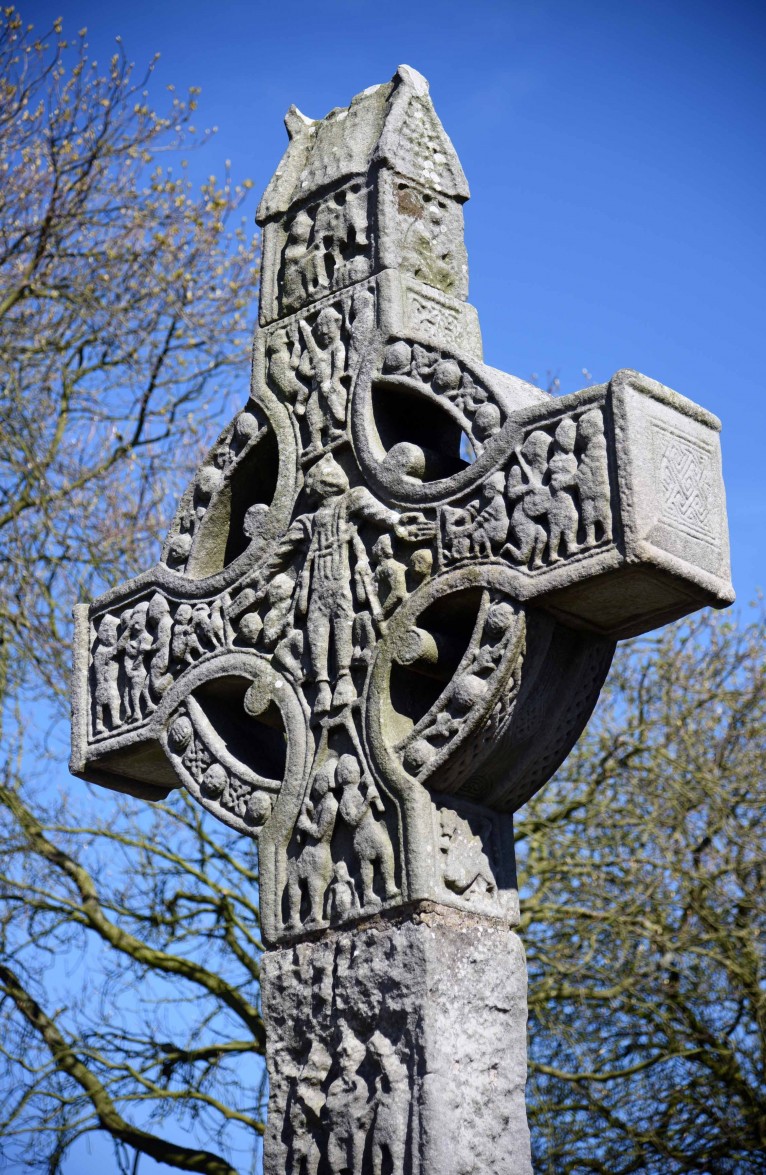
Early Irish sculpture and the art of the high crosses
Prof. Roger Stalley
- 📅Tuesday, January 18, 2022
- 🕥11:00 - 12:00
- 🏟ZOOM meeting (map)
At a time when much of Europe was convulsed by war and invasion, early medieval Ireland witnessed a remarkable burst of stone carving, centred on the production of large free-standing crosses. Best known are the two stunning monuments that adorn the ruins of the ancient monastery at Monasterboice, the work of a highly gifted sculptor with a distinctive and amusing style of his own. Contrary to popular opinion, the crosses were not commissioned by a series of unassuming abbots but by some of the most powerful men of the age, often with the aim of promoting religious and political status. In this talk Professor Stalley will explain how the crosses were made and the engineering involved. He will also reveal the identity of the patrons and explore the background and personality of the principal sculptor, who deserves recognition as one of the great artists of his age.
Roger Stalley is a fellow emeritus of Trinity College Dublin, where he was formerly professor of the History of Art. As a medieval specialist, his writing and research has embraced both Irish and European art and architecture. He has published eight books, including the award winning Cistercian Monasteries of Ireland (1987), along with Early Medieval Architecture (1999), a volume that has sold over 24,000 copies worldwide. His latest book, Early Irish sculpture and the art of the high crosses, was published by the Mellon Centre in May 2020. The book was recently shortlisted for the Berger prize, awarded to the author of the most outstanding book on British and Irish Art published in that year.
Jan
04
11:00
Saving our great-grandchildren – the challenge of climate change
Prof. John Fitzgerald
- 📅Tuesday, January 4, 2022
- 🕥11:00 - 12:00
- 🏟ZOOM meeting (map)
For most of the really big challenges that we as a society face, the job of politicians is to find solutions that will benefit us. Tackling Covid is a clear example, and here the major policy changes that we have had to make are accepted because they are for our benefit. However, the really big challenge of tackling climate change is that politicians have to ask us to make sacrifices today that will not have major benefits for us, but which are essential for the welfare of future generations, including our great-grandchildren. The political system is not comfortable with telling the public that they must adopt an uncomfortable solution because it is the ethical solution, not one driven by self-interest.
The task of halting climate change is difficult but doable. It will have significant costs for everyone, but these costs are likely to be smaller than the cost of the financial crisis, or even the immediate costs of Covid.
In the case of some of the solutions they will be adopted by society anyway when they become the cheapest solution to our needs. Examples already include some renewable electricity and, by the second half of the decade, it will also be the case for new electric cars. However, there will remain significant changes that households and companies must make which will prove expensive.
The cost to society from moving to a zero emissions world will come in the form of a redirection of expenditure from consuming and investing the goods and services we currently do, to spending to end carbon emissions. It is this redirection of expenditure from what we would prefer to consume to what we must invest in that will be difficult. In many cases this redirection of expenditure will come from the state raising taxes to pay for the investments that would not otherwise take place, because of their costs, leaving us less to spend as we would wish. In turn, the higher levels of taxation will be uncomfortable, but we have accepted them in the past, for example to deal with the financial crisis.
In the Irish case, the one area where tackling climate change will have a direct effect, reducing output and incomes, is the case of agriculture. The changes needed here are substantial. However, if appropriate plans are adopted Irish agriculture in 2050 will have reached net zero emissions and will still look rather similar to today with cattle still grazing in the fields. Farmers will have to be protected from the consequences for their incomes of this change in agriculture.
Ireland has very low forest cover and this is a real opportunity, especially for the agricultural sector. It offers a steady safe income, helping make the farming sector part of the solution to climate change. However, for this to happen the Government must stop putting up roadblocks for farmers who want to change and help solve the climate crisis. The current licensing regime for forestry must be replaced by a set of suitable regulations.
John FitzGerald is an Honorary Fellow and Adjunct Professor in the Department of Economics, Trinity College Dublin. He is a member of the government’s Climate Change Advisory Council and a member of the Royal Irish Academy.
Nov
30
11:00
Members' Musical Choice
This meeting will be hosted by the Music Appreciation Group ✽
- 📅Tuesday, November 30, 2021
- 🕥11:00 - 12:00
- 🏟ZOOM meeting (map)
Following a positive reaction to a music event that we ran earlier where a number of members presented their choice of music, we intend to repeat it on Tuesday, 30 November.
We are now looking for six members who are willing to share with us one of their favourite music pieces, of any genre, and who are happy to talk about their choice of music and musical interests.
Our only 'condition' is that we can find your music choice on YouTube!
Please email Raymond Burke on ray@raymondburkeconsulting.net to discuss.
✽ Note: Music Appreciation Group Meetings are open to both Full members and Zoom members to attend.
Nov
23
15:00
Afghanistan: Leave it alone or pick up the pieces?
- 📅Tuesday, November 23, 2021
- 🕥15:00 - 16:00
- 🏟ZOOM meeting (map)
This meeting will be hosted by the Current Affairs Group ✽
✽ Note: Current Affairs Group Meetings are open to both Full members and Zoom members to attend.
Nov
09
11:00
The Role of the Conductor
Proinnsias O'Duinn
- 📅Tuesday, November 9, 2021
- 🕥11:00 - 12:00
- 🏟ZOOM meeting (map)
This meeting will be hosted by the Music Group ✽
The question most frequently asked by non-musicians of Conductors is 'Well, what exactly do you do anyway?'
On November 9th, Proinnsias O'Duinn will be along to answer that question and others asked by our own Liz Csibi, and we look forward to a very interesting and informative talk on the need for a Conductor with a music ensemble.
Proinnsias O'Duinn was born in Dublin and studied piano, cello and orchestration at the Royal Irish Academy of Music and the College of Music Dublin. He was appointed Music Director of the Gaiety Theatre when he was 18 years of age and the following year was invited to conduct the RTE Symphony Orchestra (now NSO), with whom he still maintains a close relationship. He was awarded a Fellowship by the Irish Arts Council in 1961 and in 1963 he was appointed Principal Conductor of the Iceland Symphony Orchestra. He was appointed Principal Conductor of the Orquesta Sinfonica Nacional del Ecuador in 1965.
Prionnsias returned to Ireland in 1971 to work with the National Symphony Orchestra, the RTE Concert Orchestra, the Irish Chamber Orchestra and the BBC. He also conducted extensively in various European countries. He was appointed Conductor of the RTE Chamber Choir in 1974 and two years later was awarded the Radio and Television critics' prize for 'the quality of his work and his inventive approach to programming'. From 1978 until 2003 Prionnsias was Principal Conductor of the RTE Concert Orchestra and in 2003 became the first Conductor Laureate ever appointed in the history of Irish Radio/Television. During his tenure with the orchestra Proinnsias was the prime mover in the orchestra becoming one of the most versatile of its kind in Europe, with a vast repertoire covering almost every genre. He toured extensively with his orchestra throughout Ireland, Great Britain and the United States and has recorded with them on Marco Polo and Naxos, among others. During this period he has premiered works as diverse as Bill Whelan's River Dance and Seville Suite and the symphonies of John Kinsella while at the same time establishing his reputation as a composer and orchestrator with the music soundtrack for the seven hour TV drama Strumpet City. He also composes for Orchestra, Chamber Music, Theatre and TV.
Proinnsias has a long association with Our Lady's Choral Society. As Principal Conductor since 1979 to the present day, his season of Messiah performances in the National Concert Hall each Christmas is a focal point of the music calendar in Dublin. He also conducts the annual Handel 'Birthday Celebration' performance in the Handel Concert Hall in Halle, Germany with the orchestra of the Halle Opera House.
✽ Note: Music Group Meetings are open to both Full members and Zoom members to attend.
Nov
03
11:00

Edo in Colour
Dr Diana Delia
- 📅Wednesday, November 3, 2021
- 🕥11:00 - 12:00
- 🏟ZOOM meeting (map)
For our last meeting of the year, the Art Appreciation Group is very pleased to invite ALL members of U3A DLDK to a special talk on Wednesday, 3rd November at 11am, when we will join our Steering Group member, Dr Diana Delia, to talk about ‘Edo in Colour’ (Edo – an old name for Tokyo). Diana will explore the ways in which Japanese prints celebrated the unique attractions of Edo: popular Kabuki actors, the beautiful women and men of the brothel district, famous landmarks and scenic views.
These prints were collected not only by Edo residents - they were marketed throughout Japan, moulding popular perceptions of Edo as the fulcrum of style and elegance and attracting visitors and prosperity to the city.
Diana is a tour guide at the Chester Beatty Library where the exhibition, Edo in Colour, is currently ongoing.
We look forward to sharing this occasion with all U3A DLDK members many of whom may wish to visit the Library.
Image: J2596 Utagawa Kunisada, 'Visiting the Yoshiwara' (1936-38). Photo courtesy of the Chester Beatty Library.
Nov
02
11:00
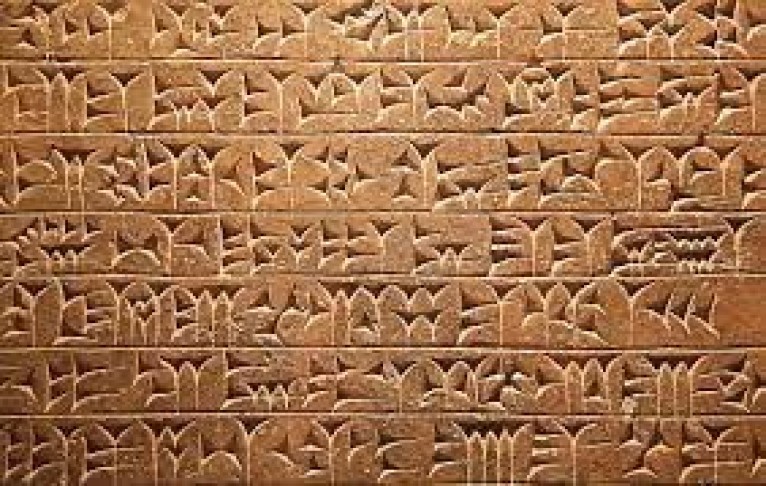
The Earliest Writing in the World and an Irish Genius
Dr. Robert Barklie
- 📅Tuesday, November 2, 2021
- 🕥11:00 - 12:00
- 🏟ZOOM meeting (map)
Prehistory stopped and history began about 5200 years ago when writing was invented. This form of writing, called Cuneiform, was in use for about 3000 years.
What are the main features of Cuneiform?
Where did it start and who were the people who invented or later used it?
How and when was it deciphered and who was the Irish genius who played a major role in achieving this?
What has the decipherment revealed about what has been written? There were some big surprises!
This talk will attempt to answer these questions.
Robert Barklie is an Emeritus Fellow of TCD having retired after 34 years lecturing and researching in the Physics department at Trinity. He was awarded an Entrance Scholarship and, in 1966, a first class degree in physics at TCD before obtaining a PhD at Cambridge University in 1969. He then spent four years as a Lecturer in Physics at Makerere University in Uganda and a further year as a Post-Doctoral Fellow back at Cambridge before joining the staff of the Physics department at TCD in 1974.
His interest in the topic of this talk was sparked by a wonderful Annual Chester Beatty lecture given a few years ago.
Oct
26
15:00
The German General Election Outcome: What next for the European Union's largest member State?
- 📅Tuesday, October 26, 2021
- 🕥15:00 - 16:00
- 🏟ZOOM meeting (map)
This meeting will be hosted by the Current Affairs Group ✽
✽ Note: Current Affairs Group Meetings are open to both Full members and Zoom members to attend.
Oct
19
11:00
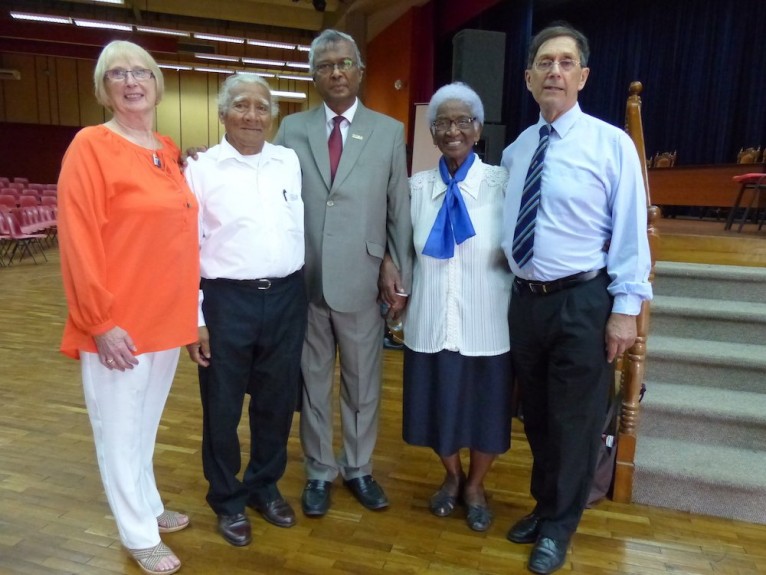
U3A Activity on Five Continents
Ian Funnell
- 📅Tuesday, October 19, 2021
- 🕥11:00 - 12:00
- 🏟ZOOM meeting (map)
The U3A Movement is approaching fifty years of age and it has been remarkably successful in spreading around the globe. In his presentation Ian will describe some of his experiences in meeting members from many countries and how we can measure success in different ways. He chose the title because he has never visited a North American U3A or Antarctica and it also implies that the talk is anecdotal rather than comprehensive. For six years from 2010 Ian represented the UK Third Age Trust on the Governing Board of the International Association of U3As (AIUTA). His personal highlights include visiting large developing nations such as Brazil, China and India and smaller island nations such as Iceland and Mauritius. The image is from a 2017 exchange visit to Mauritius with Jenny Carley from Chester U3A, at the invitation of the Founder-President, Professor Armoogum Parsuramen, G.O.S.K, who introduced them to the oldest members of the newly-formed Mauritius U3A.
Ian studied physics at the University of Birmingham and then joined the main laboratory of the Central Electricity Generating Board in Leatherhead. He met his wife through a group called International Voluntary Service, whose parent organisation Service Civil International dates back to 1920, so perhaps that shows a direction of interest. As a result of electricity privatisation Ian joined National Grid and worked on various aspects of plant performance on the electricity transmission grid. In retirement he joined a local U3A and helped found the even more local Fetcham U3A in 2002. After serving for three years on the Board of the Third Age Trust Ian was invited to take on the AIUTA role which led eventually to the opportunity to give this talk. In addition to activities in his own U3As Ian helps organise an annual U3A summer school at the University of Chichester and monthly U3A study days at a local concert hall in the Yehudi Menuhin School.
Oct
12
11:00
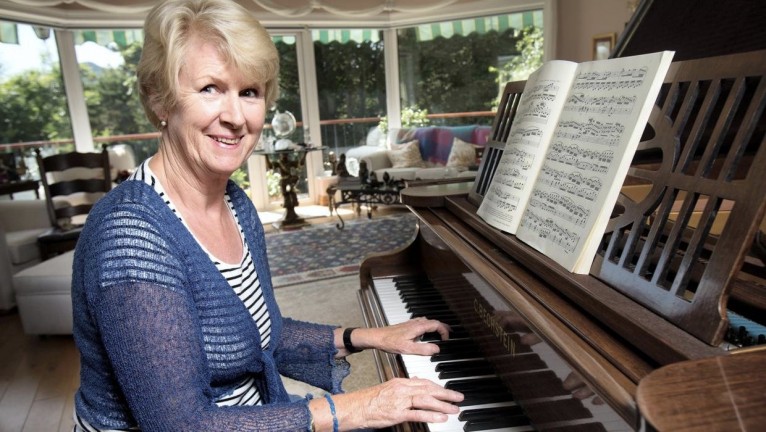
Musical Conversations
Veronica McSwiney
- 📅Tuesday, October 12, 2021
- 🕥11:00 - 12:00
- 🏟ZOOM meeting (map)
This meeting will be hosted by the Music Group ✽
Veronica McSwiney will talk about her life as an internationally acclaimed pianist who has been performing around the world for over 50 years. She commenced her musical studies in Dublin at the age of seven and later studied in Salzburg under Bruno Seidholfer and with Ilona Kabos in London. After her very successful London Wigmore Hall debut her reputation spread far beyond her native Ireland.
Veronica was the first Irish artist to be invited to perform in the Soviet Union in 1975 and following the success of that tour she was invited back on numerous occasions, playing concertos and solo recitals throughout the USSR. She toured the USA regularly, both as a soloist and in recital with the renowned Irish contralto Bernadette Greevy. Veronica performed Concertos with all the major orchestras in the UK, and broadcasted frequently on BBC and Radio Stations throughout Europe and was offered her own TV series on Irish Television in the 1980's. She was invited many times by the well known BBC broadcaster Richard Baker, to join him on his Music Cruises and played at music Festivals throughout the UK with him in programmes dedicated to Chopin and Edvard Grieg. A keen chamber musician and accompanist Veronica has performed with many other famous artists, including James Galway and Nicolai Gedda. She is a regular soloist with our National Symphony Orchestra and now frequently plays with her violinist daughter Aisling O'Dea. Aisling is one of Ireland's talented musicians now based in Edinburgh where she is a member of the renowned Scottish Chamber orchestra. They also play together in the Eblana Trio.
Amongst her recordings are the 18 Nocturnes of the Irish composer John Field and these, on the Claddagh label, are considered to be the finest available today.
✽ Note: Music Group Meetings are open to both Full members and Zoom members to attend.
Oct
05
11:00
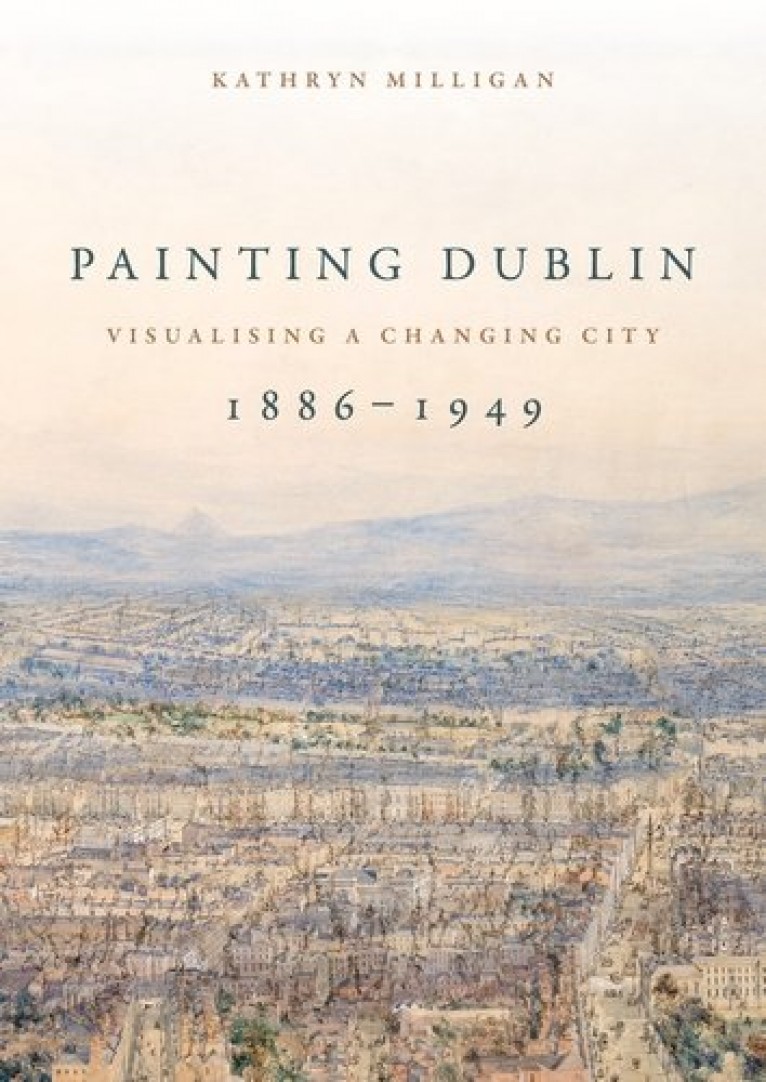
Painting Dublin, 1886 - 1949: Picturing Ireland's Capital City
Dr. Kathryn Milligan
- 📅Tuesday, October 5, 2021
- 🕥11:00 - 12:00
- 🏟ZOOM meeting (map)
This talk will explore the depiction of Dublin by artists from the late-nineteenth to the mid-twentieth century. Artists' representations of the city have long been markers of civic pride and identity, yet in Ireland such artworks have been overlooked in favour of the rural and pastoral. Framed by the shift from city of empire to capital of an independent republic, we will discuss artworks by Walter Osborne, Rose Barton, Jack B. Yeats, Harry Kernoff, Estella Solomons and Flora Mitchell, encompassing a variety of urban views and artistic themes. While Dublin is already renowned for its representation in literature, we will see the many attractions it held for Ireland's artists, offering a vivid visualisation of the city's streets and inhabitants at a crucial time in its history.
Katy Milligan is an art historian specialising in nineteenth and twentieth century Irish art. A graduate of UCD (BA) and TCD (MPhil, PhD), following her PhD studies Katy was the inaugural ESB Fellow at the ESB Centre for the Study of Irish Art at the National Gallery of Ireland, and an Irish Research Council Government of Ireland Postdoctoral Fellow in the School of Art History and Cultural Policy, UCD. Her first monograph, 'Painting Dublin, 1886 - 1949: Visualising a changing city', was published by Manchester University Press in 2020, and will be published in paperback in October 2021.
Sep
21
11:00
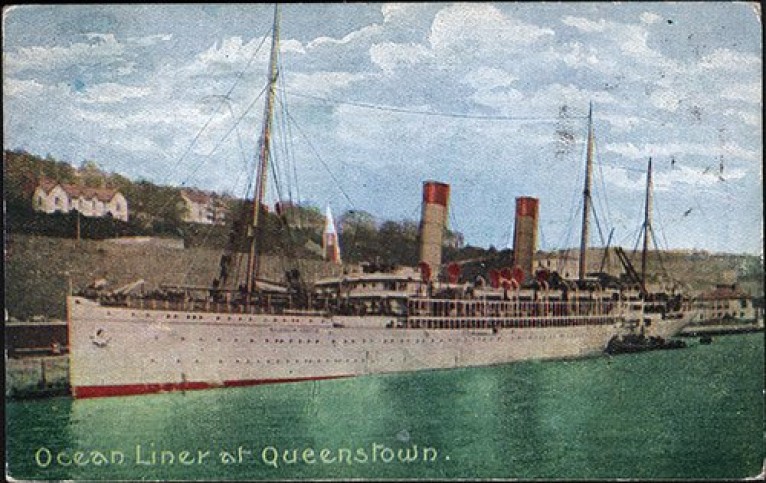
Exploring Ancestral Forebears
Liz Csibi, Ann Fleeton & Barbara McAllister
- 📅Tuesday, September 21, 2021
- 🕥11:00 - 12:00
- 🏟ZOOM meeting (map)
With great sadness we have learned of the recent death of Roland Evans, a much loved member who was to deliver the first of today’s talks. Roland died on 11 September after a long and brave fight against his debilitating illness. We are going to miss those apt, informed and insightful comments and his good humour, but his broad smile and lively spirit will always remain with us. Roland was looking forward to telling of his unusual and aristocratic relatives, some of whom were on nodding terms with Lloyd George. Intriguingly, he had called his talk “Appeal to Hirohito 1937”, but sadly, now we shall never know why.✽✽✽
We are very fortunate in that LIZ, ANN and BARBARA have all graciously agreed to talk about their interesting forbears :
Liz Csibi's talk is entitled “A Change of Life” which is about her sister Brede whose life in many ways reflects the social changes and development in Irish society over 80 years. A brilliant student, a talented musician, an inspirational mentor and teacher, a creative therapist, she excelled at everything she did. Liz will discuss the unfolding of her interesting life.
Ann Fleeton's talk is entitled “Two Disparate Men” she will discuss :
i) Lieutenant Rodolphus Hobbs Reardon, her great-great-grandfather who served in the military garrison in St. Helena at the time of Napoleon's exile, 1815-1821.
ii) Professor Frank Rishworth, her great-uncle, was Chief Civil Engineer in charge of the contract for the Shannon Hydroelectric Scheme at Ardnacrusha, 1925-1929.
Finally, Barbara McAllister's talk is entitled "Love, Emigration and Aspirations". It's a love story about her great grand uncle Thomas F. Eagleton born in Mayo in 1859 who emigrated to USA and about how his family achieved fame and fortune and political power.
✽ Photo - The ocean liner Thomas Eagleton took to the USA in 1881.
✽✽✽ Roland’s book “The Marshlander Chronicles” is available from Kindle at £3.99…proceeds to The Irish Motor Neurone Disease Association.
For further background information on this and a very interesting video interview with Roland please click here
Sep
07
11:00
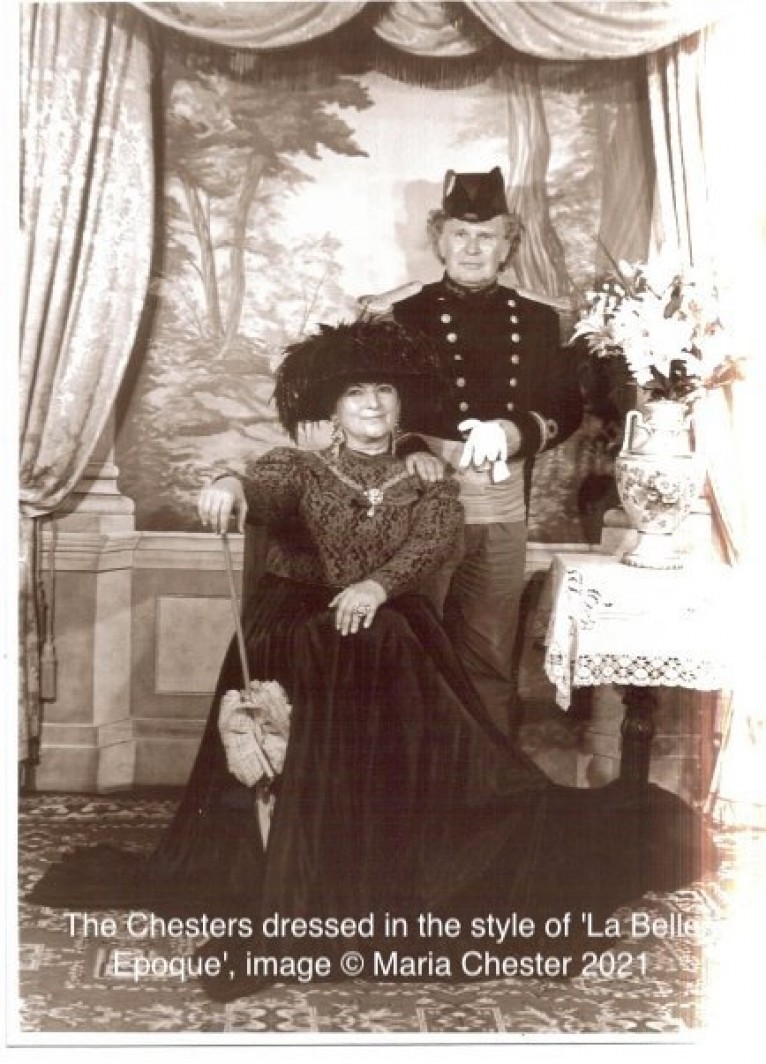
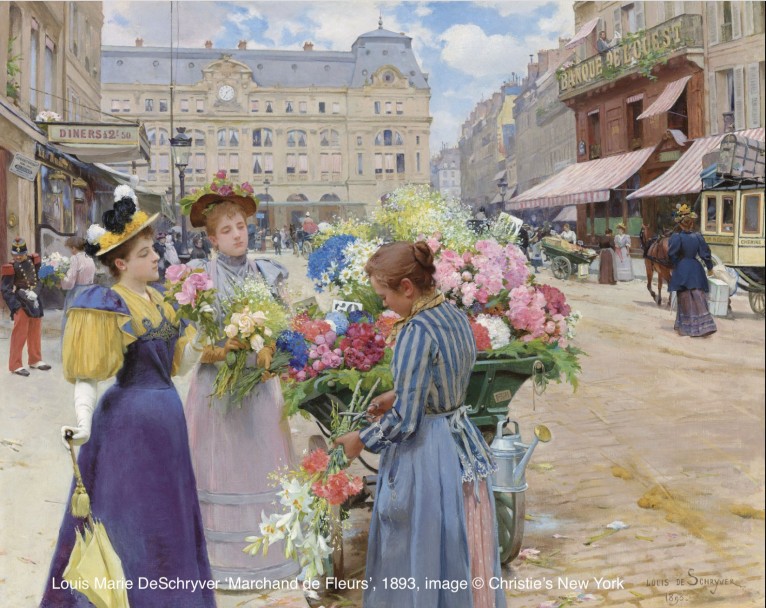
The Glamorous French Belle Epoque: an introduction
Prof. Maria Chester
- 📅Tuesday, September 7, 2021
- 🕥11:00 - 12:00
- 🏟ZOOM meeting (map)
Professor Maria Chester, an art historian, is accredited as an Art Lecturer by The Art Society, London. She has trained in cognitive archaeology, and delivers talks, study days, and summer schools on art history and on ancient civilisations of the Americas. Maria lives in Scotland, is greatly involved with U3A and has been, since 2016, Secretary General of AIUTA (Association Internationale des Universités du Troisième Âge).
Some historians consider La Belle Époque as a period in French history starting in 1871 and ending in 1914. Others are more concise and consider 1900 as its starting point. It was named, in retrospect, in contrast to the horrors of Austro-Prussian War and World War I. It was a period characterised by optimism, peace at home and in Europe, new technology and scientific discoveries.
Paris had been profoundly changed by the French Second Empire reforms to the city's architecture. Haussmann changed its housing, street layouts, and green spaces.
French imperialism was in its prime. It was a cultural centre of global influence, and its educational, scientific and medical institutions were at the leading edge of Europe. The peace and prosperity in Paris allowed the arts to flourish.
Jun
29
14:30
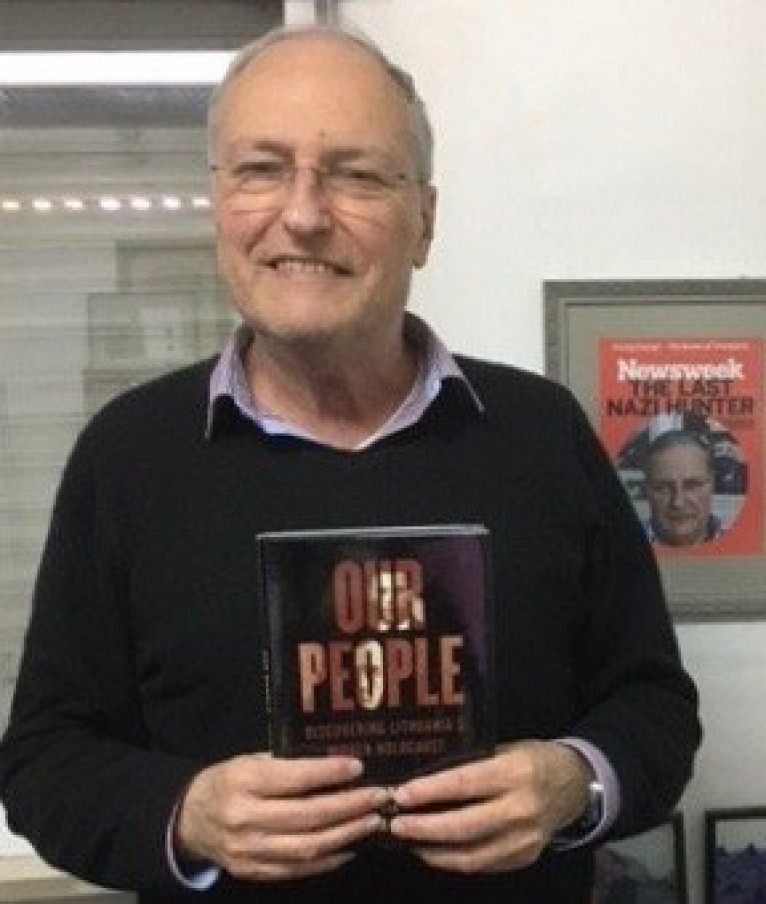
'Operation Last Chance'
Dr. Efraim Zuroff
- 📅Tuesday, June 29, 2021
- 🕥14:30 - 15:30
- 🏟ZOOM meeting (map)
This meeting will be hosted by the Current Affairs Group ✽
Dr. Efraim Zuroff is Director, Simon Wiesenthal Center – Israel office and Eastern European Affairs Coordinator, SWC Nazi war crimes research worldwide.
Efraim, who is New York born, moved to Israel in 1970 and received his Doctorate from Hebrew University. He is a noted academic historian and author who took on the role of Investigator at the famed Simon Wiesenthal Center in 1986 and is now the Director of the Center's office in Jerusalem.
He will speak about his experience as a Nazi-Hunter and his continuing efforts to identify and bring to light those responsible for Holocaust crimes who are still living in the shadows, aka ‘Operation Last Chance’.
He has authored several publications; his latest, co-authored with a Lithuanian, Ruta Vanagaite, is ‘Our People: Discovering Lithuania’s Hidden Holocaust’.
✽ Note: Current Affairs Group meetings are open to both Full members and Zoom members to attend.
Jun
22
11:00
'Evolution: It hasn't gone away you know! Evidence in front of our eyes'
Dr. David McConnell, Fellow Emeritus in Genetics, Trinity College Dublin
- 📅Tuesday, June 22, 2021
- 🕥11:00 - 12:00
- 🏟ZOOM meeting (map)
David McConnell was educated at Sandford Park School, Trinity College Dublin (BA in Genetics, Gold Medallist, 1966) and the California Institute of Technology (PhD in Biochemistry, 1971). Joining Trinity in 1970, he was appointed to the Chair of Genetics in 1990 retiring in 2014. He planned and organised the Smurfit Institute of Genetics which grew to have more than 100 staff from 30 countries.
He is a molecular geneticist, that is, he is interested in the properties of genes as molecules, including the study of the evolution of genes, a field now called molecular evolution.
In 1976-77 he held an Eleanor Roosevelt Fellowship of the IUAC at Harvard University where he learned the very new revolutionary technique of DNA sequencing which has transformed the study of evolution.
Natural evolution is usually a very slow process, so slow that it is unusual to see it “in action”. As Darwin noted farmers have caused the evolution of domestic species, sometimes quite quickly, for example in the breeding of new varieties of potato or sugar beet in Europe. We can cause evolution to occur in laboratories using fast growing species of bacteria and viruses. But none of these is as spectacular as the evolution of new pathogens in nature – which the public would not easily associate with Darwins’ great theory of evolution by natural selection.
In this talk Dr. McConnell will describe some remarkable evolutionary processes that have occurred recently and in some cases are occurring – time permitting he will refer to flu, myxomatosis and HIV before discussing malaria and coronaviruses in more detail. Coronavirus is evolving so fast that he does not know what he is going to say about it.
Jun
15
11:00
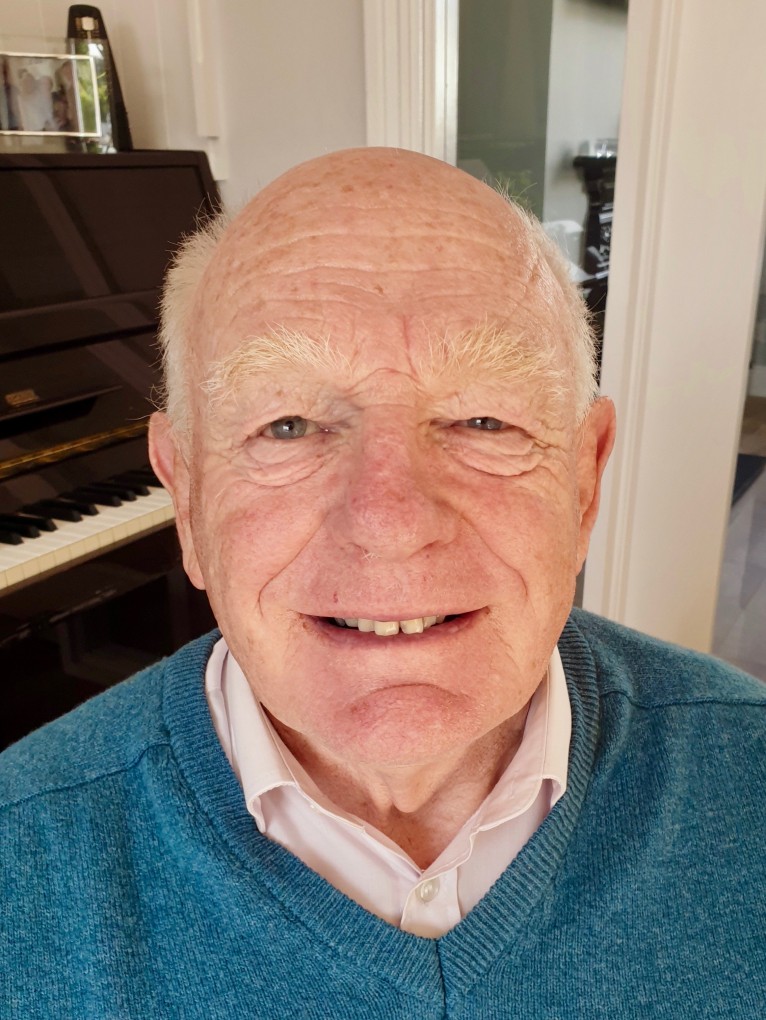
Wagner's Operas
Colonel Peter Ryan (Retd)
- 📅Tuesday, June 15, 2021
- 🕥11:00 - 12:00
- 🏟ZOOM meeting (map)
This meeting will be hosted by the Music Group ✽
Retired Colonel Peter Ryan enhanced his lifelong love of music including opera whilst living in Vienna. There he served as Military Adviser with the Irish Delegation to The Organisation for Security and Cooperation in Europe (OSCE) for four years. He attended operas regularly including those of Richard Wagner. His presentation will draw on music from Wagner's operas. There will be a short input on Wagner himself and on the characteristics of his music. Peter likes to play the piano and sings bass in the Ballinteer Male Voice Choir.
✽ Note: Music Group Meetings are open to both Full members and Zoom members to attend.
Jun
08
11:00
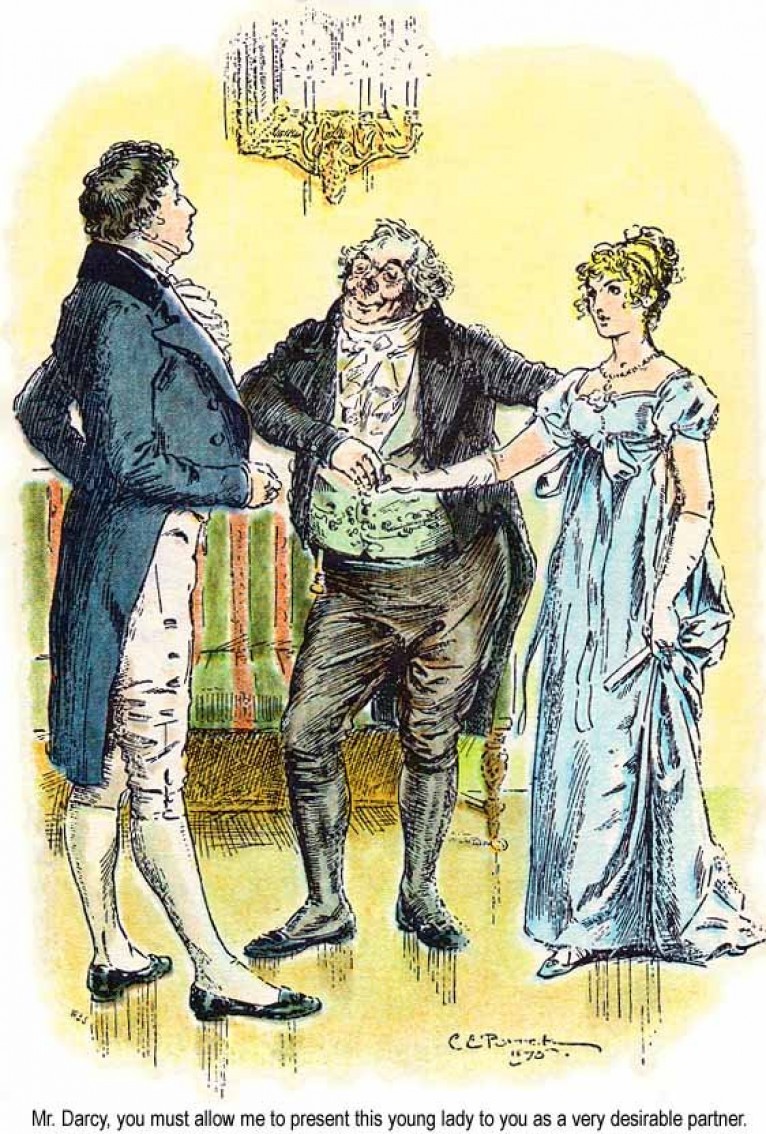
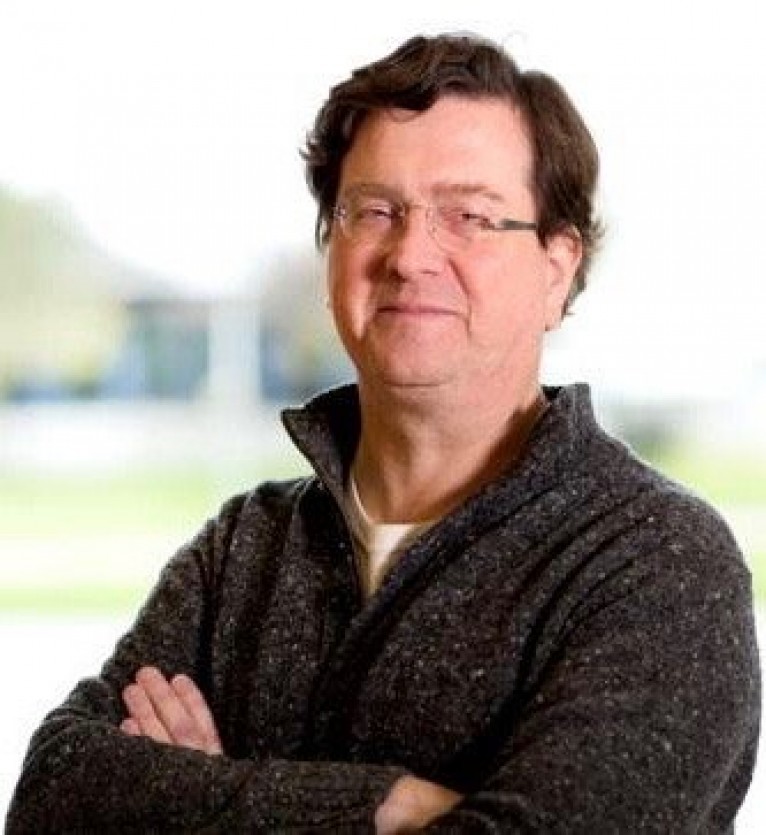
'Jane Austen and her men'
Dr. Conor McCarthy
- 📅Tuesday, June 8, 2021
- 🕥11:00 - 12:00
- 🏟ZOOM meeting (map)
Conor McCarthy teaches English at Maynooth University. His most recent book is 'Enforcing Silence: Academic Freedom, Palestine and the Criticism of Israel' (Bloomsbury 2020).
This talk will focus on male characters in some of Austen's novels - their personalities, types and functions. Austen wrote chiefly about clever women in a society run by men. Her male characters embody and dramatise important value systems and even political attitudes, as well as romantic and marital prospects. Austen's brilliance lay in her capacity to reconcile the romance form with multiple other ideas and histories.
May
25
11:00
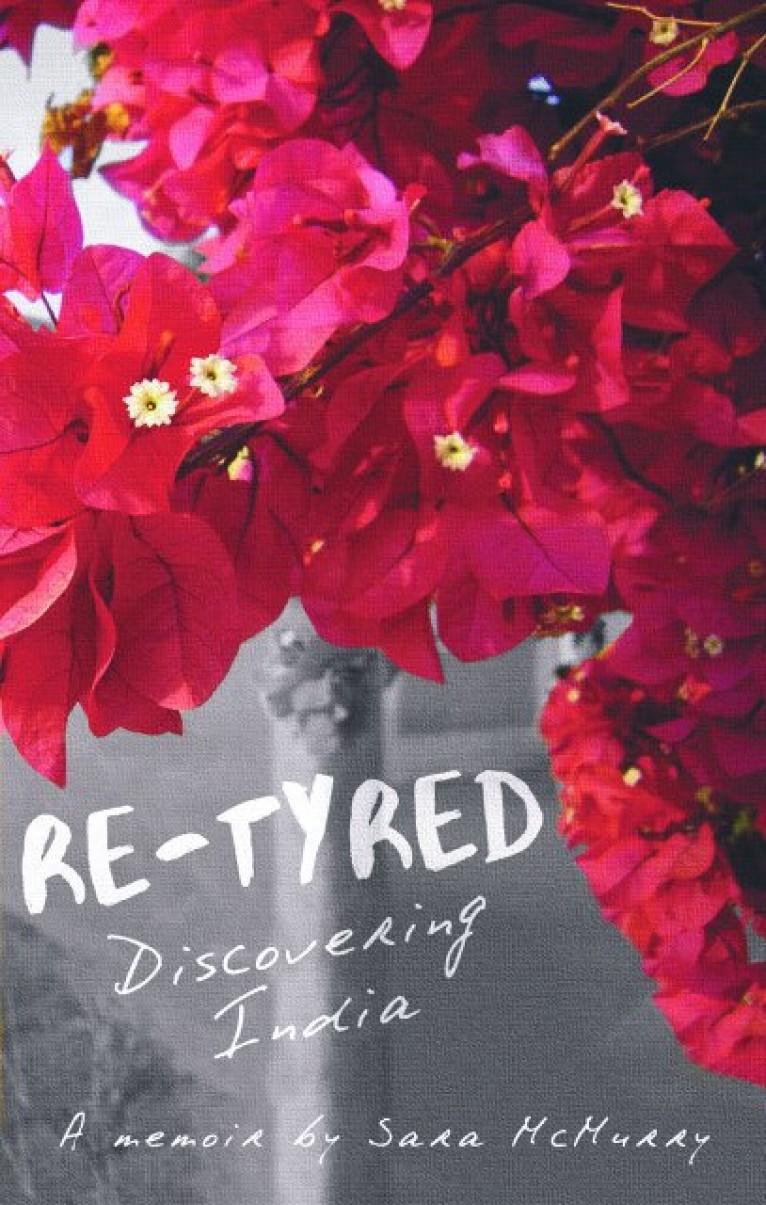
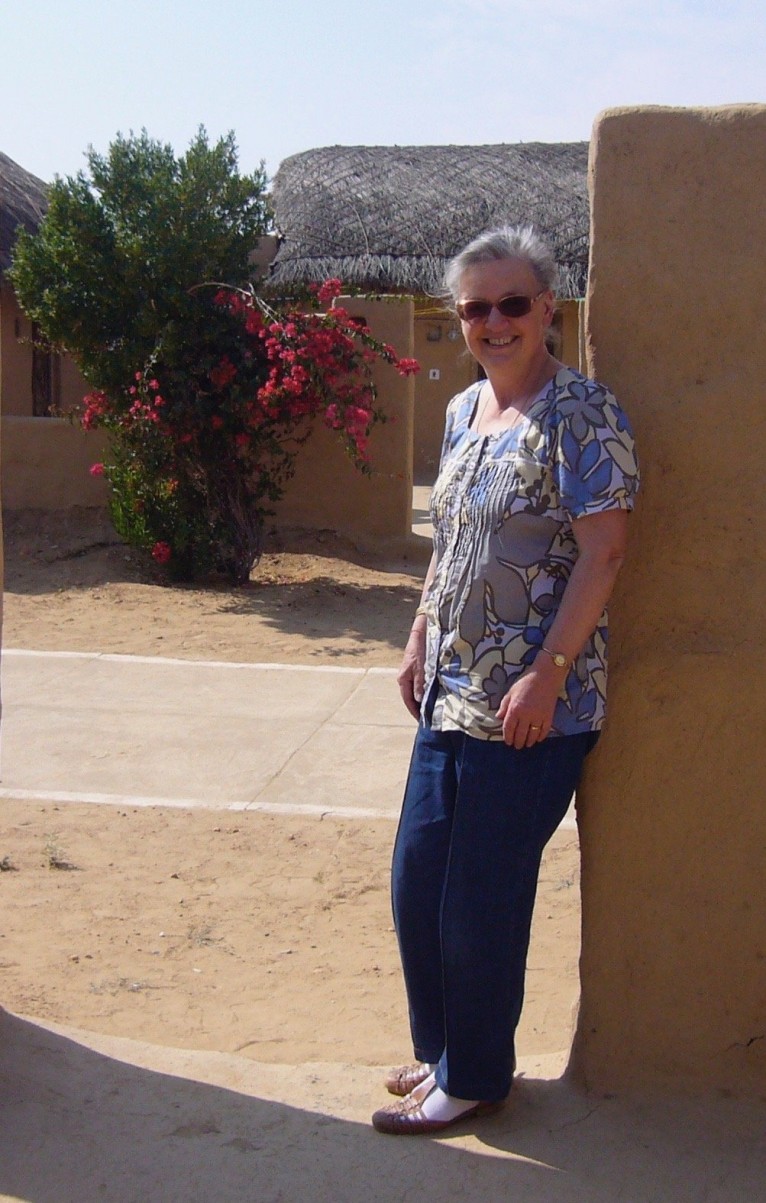
'A glimpse of rural India'
Dr. Sara McMurry
- 📅Tuesday, May 25, 2021
- 🕥11:00 - 12:00
- 🏟ZOOM meeting (map)
Dr McMurry, a theoretical physicist, lectured in Trinity College, Dublin in both the Department of Applied Maths, and the Department of Physics, from 1968 until her retirement in 2007.
While in retirement and working on her book 'Maths as a Language', she was invited by the emeritus professor of Art History at TCD to join a tour of Northern India that she was organising. According to Dr McMurry, “It was a revelation - I fell in love with the country, but wanted to find out more, especially about life in rural areas. And so, after some research, I discovered that I could experience something of rural life by volunteering as a teacher in village schools, and returned in the next three years to three different places in northern India. After that the possibilities for teaching in rural areas dried up, but I did return as a volunteer with the Hope Foundation (based in Cork) who work with street and slum children in Kolkata”.
Illustrated with her photographs, Dr McMurry will talk about her volunteer work teaching in small rural schools in Rajasthan and Himachal Pradesh. Her book 'Re-Tyred', is based on her experiences, in which she paints a vivid and enticing picture of India as a country teeming with life and enormous vitality. Despite their poverty, she believes that “the energy and resilience of the village and street people there is inspiring".
May
18
11:00
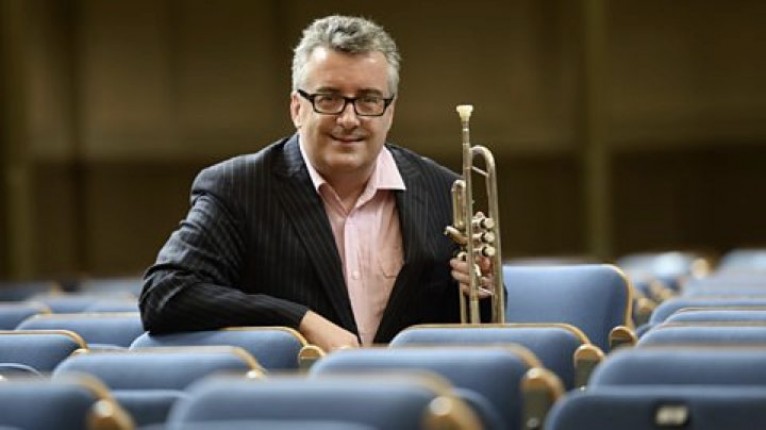
'Jazz and the Art of Improvisation' by Dr. Linley Hamilton
Music Group Meeting ✽
- 📅Tuesday, May 18, 2021
- 🕥11:00 - 12:00
- 🏟ZOOM meeting (map)
Trumpeter Linley Hamilton has been a mainstay of the Northern Irish jazz scene for well over two decades. An in-demand session musician, Hamilton has played on over a hundred recordings of various stripes, lending his burnished tone to rock and pop artists and singer-song writers alike. Listen to him play on Spotify for instance.
But it is as a jazz musician, educator and jazz radio broadcaster and not least as an utterly tireless advocate of the music that he is best known. He is a Doctor of Music and Lecturer in Music at Ulster University Magee where he specialises in Jazz, and also lectures in Music Business and Industrial Placement. He currently presents 'Jazz World with Linley Hamilton' on BBC Radio Ulster (see link below) and leads his own jazz quartet playing trumpet and flugelhorn. Hamilton's associations as a session musician include Van Morrison, Jacqui Dankworth and Paul Brady.
(https://www.bbc.co.uk/programmes/b05mpjy4)
✽ Note: Music Group Meetings are open to both Full members and Zoom members to attend.
May
18
15:00
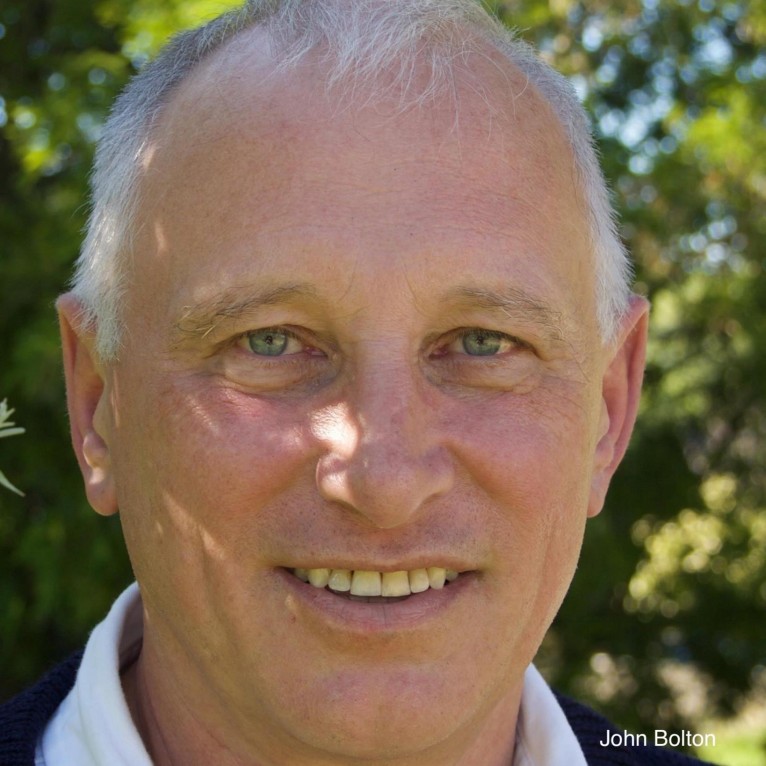

Global Elections Update (John Bolton) & Israel, to be Continued (Denis Moriarty)
Current Affairs Group ✽
- 📅Tuesday, May 18, 2021
- 🕥15:00 - 16:00
- 🏟ZOOM meeting (map)
✽ Note: Current Affairs Group Meetings are open to both Full members and Zoom members to attend.
May
11
11:00
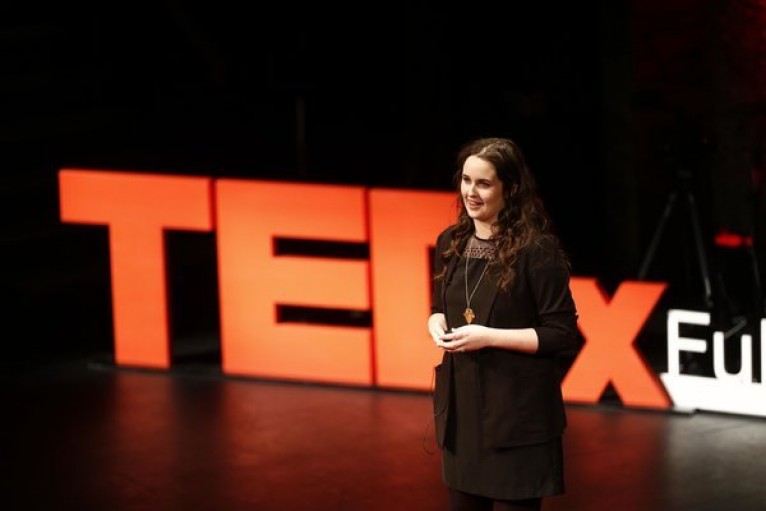
'Our Malleable Memories'
Dr. Gillian Murphy
- 📅Tuesday, May 11, 2021
- 🕥11:00 - 12:00
- 🏟ZOOM meeting (map)
If we remember something, is it true? In this talk we will discuss research on the malleability of memory; how we can distort memories of past events or even plant entirely false memories of events that never occurred. We will discuss the implications of this research for our day-to-day lives as well as exploring whether there are benefits to our malleable memory systems.
Dr Gillian Murphy is a lecturer in the School of Applied Psychology, University College Cork. Her research investigates ways in which we can experience cognitive failures in day-to-day life, with a focus on attention and memory. Her research has been funded by the Irish Research Council, Royal Irish Academy and the Health Research Board and she is a former Fulbright scholar.
Apr
27
11:00
“I liked the early stuff…” A Poetry Reading by Dr. Iggy McGovern
- 📅Tuesday, April 27, 2021
- 🕥11:00 - 12:00
- 🏟ZOOM meeting (map)
This not so gentle put down casts writers as progressive and readers as regressive. But, does it hold true for the writer as well? In this reading of my poems, I will be reflecting on this idea, noting that some themes survive to the (bitter?) end…
Dr. Iggy McGovern is Fellow Emeritus in Physics at Trinity College. He has published three collections of poetry with Dedalus Press –The King of Suburbia(2005), Safe House(2010) and The Eyes of Isaac Newton(2017). His verse biography of Irish mathematician William Rowan Hamilton, A Mystic Dream of 4(2013) is published by Quaternia Press. Awards include The Hennessy Award for Poetry and The Glen Dimplex New Writers Award for Poetry.
Apr
20
11:00
Members' Music Choice
Music Group Meeting ✽
- 📅Tuesday, April 20, 2021
- 🕥11:00 - 12:15
- 🏟ZOOM meeting (map)
A number of members have 'volunteered' to present their choice of music and, quizzed by our Chairperson, Barbara, will tell us why it appeals to them. The choice of music is expected to be eclectic! If the feedback to the event is positive, the Music Group Committee will be inviting other members to present their choice in the autumn.
✽ Note: Music Group Meetings are open to both Full members and Zoom members to attend.
Apr
13
11:00
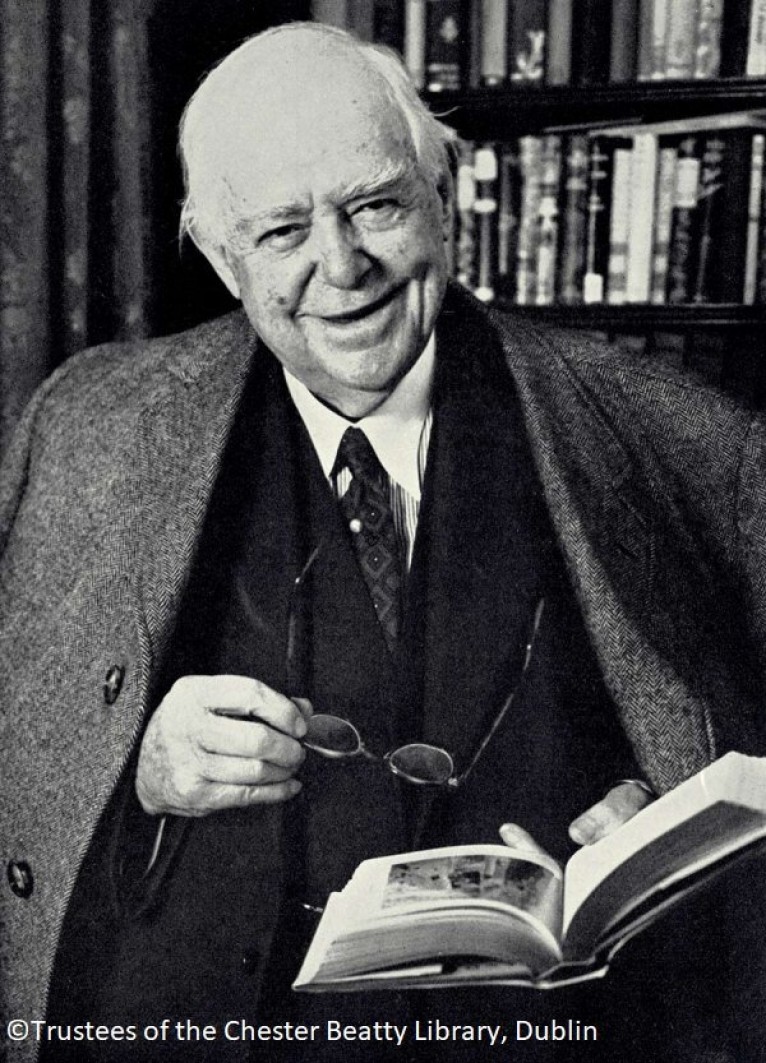
Chester Beatty's Gift of a Lifetime
Dr. Diana Delia
- 📅Tuesday, April 13, 2021
- 🕥11:00 - 12:00
- 🏟ZOOM meeting (map)
This talk focuses on the man and his times, how his collection developed, and why both came to Ireland. If time permits, at the end, a sampling of the Chester Beatty's treasures will be briefly introduced.
Dr. Diana Delia was a professor of Ancient History and Classical Languages in the U.S. before retiring to Ireland. For many years she has volunteered as a tour guide at the Chester Beatty.
Diana, a member of our Steering Group, is responsible for setting up and running a new U3A DLDK sub group ‘Latin for Beginners’ commencing April.
Apr
06
15:00
"Belarus: an update from Pavel"
- 📅Tuesday, April 6, 2021
- 🕥15:00 - 16:00
- 🏟ZOOM meeting (map)
This meeting will be hosted by the Current Affairs Group
Mar
30
11:00
The Radio Universe from Birr Castle
Dr. Peter Gallagher
- 📅Tuesday, March 30, 2021
- 🕥11:00 - 12:00
- 🏟ZOOM meeting (map)
Professor Gallagher is the newly appointed Head of the Astronomy and Astrophysics section of the Dublin Institute of Advanced Studies and is the driving force behind the installation and operation of the new Radio Telescope at Birr Castle in Co. Offaly.
Birr Castle is an appropriate location because an optical telescope was set up there in the 1840s and it remained the largest telescope in the world for over 70 years.
The Radio telescope is the latest addition to a European wide network of such telescopes that are electronically linked so that the overall sensitivity and resolution are far larger than that of one of them alone. These characteristics make possible a wide range of research projects from studies of our sun to the nature of the early universe.
Mar
16
11:00
Seizo Sugawara, Eileen Gray’s enduring collaborator
Ruth Starr
- 📅Tuesday, March 16, 2021
- 🕥11:00 - 12:00
- 🏟ZOOM meeting (map)
This presentation will consider the influence of the Japanese sculptor and lacquer specialist, Seizo Sugawara (1884 – 1937) on Eileen Gray (1878 – 1976) in the context of the pervasiveness of Japonisme. Gray is best known for her pioneering work in early modernist architecture. Less well known is her acclaimed earlier career as a lacquer furniture designer. The presentation reveals Gray’s fine appreciation of the unique characteristics of Japanese lacquer.
Ruth Starr is a historian of Japanese art (including Japanese crafts) from the earliest times to the 20th century. Starr’s current research seeks to untangle the web of connections linking Japanese art and European art, following the common thread of lacquerware. Her major interest is how these links were manifest in Ireland during the Japonisme movement of the late 19th Century, particularly the Japanese influence on Eileen Gray, (1878- 1976); also Japonisme in 19th and 20th century Ireland and lacquerware in Japan and Europe.
Mar
09
11:00
Music Group Programme - The Verdi and Mozart Requiems
Elizabeth Csibi
- 📅Tuesday, March 9, 2021
- 🕥11:00 - 12:15
- 🏟ZOOM meeting (map)
Following her musical studies at the Royal Irish Academy of Music and the College of Music Dublin and in London with the renowned teacher Jaroslav Vanecek, Elizabeth has enjoyed a long and active performing career. She was a member of the RTE Symphony Orchestra, the Irish Chamber Orchestra, the Orchestra of St. Cecilia, the 20th Century ensemble Concorde and toured the USA, Russia, China and Europe, performing in many prestigious venues. Elizabeth joined the String Faculty of the Royal Irish Academy of Music in 1989 and was appointed to the newly created position of Head of String Faculty in 1995 and in 2010 Elizabeth was awarded a Fellowship Honoris Causa from the Royal Irish Academy of Music for her services to music in Ireland.
The Verdi and Mozart Requiems are arguably the best and most popular of all Requiems, both magnificently powerful and serenely sensitive, yet each totally different in approach and effect. From the whispering cellos opening of the Verdi Requiem, through the terrifying rage of the Dies Irae, followed by the dramatic trumpet call to judgement in the Tuba Mirum, the music is a physical experience that batters the senses and throws the listener through a powerful emotional tornado. It catches the drama of Aida, the tragic pathos of La Traviata and the beauty of his operatic arias, none more sensitive than his final Libera Me. Mozart's Requiem on the other hand creates a different pathway to our emotions with music that is sublimely elegant and graceful with exquisite intensity. There is a mysterious and darker feel to the texture which expresses heartfelt grief and despair while the delicate sensitivity of the Hostias enfolds the listener like a warm comforting hug. Join us on Tuesday March 9th to explore and experience this glorious music.
Mar
02
11:00
The long history of Picasso's Guernica
Dr. Paula Murphy
- 📅Tuesday, March 2, 2021
- 🕥11:00 - 12:00
- 🏟ZOOM meeting (map)
You will be pleased to learn that Dr Paula Murphy, a great supporter of U3A DLDK, has agreed to return with what promises to be another fascinating talk, which she describes as follows:
The long history of Picasso's Guernica will comprise an examination of the commissioning, the historical context and the making of the painting and the story of its subsequent journey. It is one of the best known paintings in the world, and yet it never fails to astonish both in itself and in its story.
Paula Murphy is an emeritus professor in the UCD School of Art History and Cultural Policy, where - although mostly identified with work on sculpture - she taught courses on Modernism for many years.
Feb
23
15:00
CAG: "Riotous Assembly or Mature Parliament? A personal perspective on the European Parliament"
Francis Jacobs
- 📅Tuesday, February 23, 2021
- 🕥15:00 - 16:00
- 🏟ZOOM meeting (map)
This presentation on The European Parliament is being hosted by the DLDK Current Affairs Group.
Francis Jacobs worked for the European Parliament from just before the first direct elections in 1979 until May 2016, as a staff member on various European Parliament committees, and latterly as the head of the European Parliament’s Liaison Office in Ireland.
Francis lives in Dublin, is a dual British and Irish citizen, an Adjunct Senior Research Fellow at University College Dublin, and a Visiting Professor at the Collegio Europeo in Parma. His main areas of academic interest including the evolution of the European Parliament, the implications of Brexit, and the legacy of the UK within the EU.
He is the co-author of the "European Parliament", now in its 9th edition and edited a reference book on "Western European Political Parties". His book, "The EU after Brexit : political and institutional implications", was published in spring 2018, and he is currently working on a guide to the Landmark Sites of the European Union, on European Union activities and historic locations. He has also taken part in the Collecting Memories Project, interviewing former Members of the European Parliament for an oral archive housed at the European Union Archives in Florence and has contributed two chapters to a book based on those interviews.
Feb
16
11:00
My personal perspective on Conor Cruise O'Brien
John Biggar
- 📅Tuesday, February 16, 2021
- 🕥11:00 - 12:00
- 🏟ZOOM meeting (map)
Conor Cruise O'Brien was one of the most controversial and influential Irishmen of his generation. He also happened to be John Biggar's uncle. John will give us a personal perspective on Conor, based on a relationship which spanned over four decades.
John Biggar retired in 2015 as Ambassador to Bulgaria, Armenia and Georgia. He had previously served in Ireland's Liaison Office to NATO (in Brussels), in the Permanent Missions to the UN in both New York and Geneva, and in the Embassy to Spain. At home, much of his career was spent dealing with political matters, notably human rights as well as security and defence issues. He has led a number of EU delegations - in 2002 for discussions on human rights with Iran and China, and in 2013 for discussions with Saudi Arabia and the UAE on counter-terrorism issues.
Feb
09
11:00
MUSIC GROUP PROGRAMME : From Memphis to Monk; an Introduction to the Blues
Frank Gallagher
- 📅Tuesday, February 9, 2021
- 🕥11:00 - 12:30
- 🏟ZOOM meeting (map)
The initial video presentation, to be followed by a Q & A, will last 45 minutes and it will be aimed at those who have little or no prior knowledge of blues music, and indeed at those who have no formal training in music. It will comprise about 40% talk and 60% musical performance by Frank Gallagher on acoustic guitar and on slide guitar, and it will feature Don Baker as a guest performer. The presentation will not of course be a comprehensive introduction to this music, but topics to be discussed will include a layman’s explanation of the blues musical form, the origins of blues music as an ethnic folk music, its development in the first half of the twentieth century, some of its distinctive features, and its influence on some other music in the twentieth century.
Frank Gallagher has been playing blues and jazz in Ireland and in Europe since the nineteen seventies. He has also lectured and written about blues and jazz, both in Ireland and abroad. At present he is a member of a jazz quintet based in south Wicklow. Over the years he has performed blues music with the likes of Don Baker, Red Peters and Johnny Norris, to mention just a few. In the nineteen eighties he formed the Jitterbug Jug Band with Gerry Clarke. Since that time he has mainly performed blues as a solo artist or in small groups with Gerry Clarke. He is a co-founder and chairman for the past twenty years of The Courthouse Arts Centre in Tinahely, Co Wicklow.
Feb
02
11:00
ESCAPE…BUT TO WHAT? THE PLIGHT OF REFUGEES WAITING AT THE GATES OF EUROPE.
Valerie Cox, Journalist, Activist, Author and Broadcaster
- 📅Tuesday, February 2, 2021
- 🕥11:00 - 12:00
- 🏟ZOOM meeting (map)
In 2015 Valerie and her spouse travelled to the Greek island of Kos where the refugee crisis had just started. It was a human disaster. Hundreds of people arrived on the shores of Kos every night in flimsy rubber dinghies. They had lost everything in their flight from war and death and terrorism and were dependant for food, shelter and clothes on the volunteers who came from all over the world.
For the past six years thousands of refugees have been arriving at the gates of Europe seeking shelter from war and persecution in their home countries which include Syria, Eritrea, Afghanistan and Iraq. Some made it into Europe and settled well, others got to Europe but have spent years in refugee centres, unable to move on with their lives.
In 2019 the European Commission said the migrant crisis had ended. But it didn’t! Today there are thousands of refugees stranded in appalling conditions in camps in Greece and Turkey. They are overcrowded, water and food are scarce and Europe has lost interest! And yes, the boats are still coming in smaller numbers.
Valerie will concentrate on the story of those who are caught up in these camps, some of them since the crisis began and Europe’s response. Their future is blighted by bureaucracy, blindness and a token response from some of the richest people on earth, ourselves.
Jan
26
14:30
Towards More Participatory Democracy: The Leaderless Revolution - Carne Ross
Current Affairs Group: Jim Carroll, Moderator
- 📅Tuesday, January 26, 2021
- 🕥14:30 - 16:30
- 🏟ZOOM meeting (map)
Carne Ross, a former British diplomat (English), resigned from the foreign service on principle over the 2003 invasion of Iraq. A review of his book The Leaderless Revolution (2011) is on The Guardian online. He writes from a breadth of experience.
His thesis is that better governance would require a more participatory democratic framework. While representative democratic institutions and political parties heed some media opinion, they have drifted a distance from considered public influence.
He identifies an erosion of real time democratic control and accountability. Not the first to question representation through political parties, he looks beyond them towards models which could possibly offer more participatory decision-making, where the citizens affected decide responsibly together on issues of direct interest, e.g. local education/schools, healthcare, transport, community and social amenities, and so forth.
His documentary on this issue, made in cooperation with the BBC, is available to view free here:
https://www.carneross.com/index.php/2020/06/16/accidental-anarchist-now-free-online/
The exploration continues in our group discussion, facilitated by Jim Carroll.
Jan
19
11:00
The Phoenix Park
Dr.John McCullen
- 📅Tuesday, January 19, 2021
- 🕥11:00 - 12:00
- 🏟ZOOM meeting (map)
With a degree in horticulture in 1970 and an M.Sc in landscape ecology, design and maintenance, John arrived at Phoenix Park in 1984, where he became the Chief Park Superintendant, a position from which he retired in recent years. The 1500-acre Park was the subject of his PhD at Trinity College in 2007, which evolved into a book called An Illustrated History of the Phoenix Park – landscape and management to 1880.
The Park was established in 1662, when James Butler, duke of Ormond created it as a deer park for the use of aristocrats. The deer are still there – according to John they are the most studied deer in the world – twelve PhDs have been written on them! Much loved by the citizens of Dublin, it is said that the Phoenix Park is one of the largest enclosed parks in the world –bigger, apparently, than all the parks in London put together.
The park contains a great variety of facilities, among them a maze and gardens, Farmleigh House, a Cricket Club (estd in 1830), a Polo Club, a Model Flying Club, the Zoo, Aras an Uachtarain, visitor centre at Ashdown Lodge, the US embassy, Chesterfield Avenue (the main thoroughfare) and all those beautiful gate-lodges on its perimeter
Jan
12
11:00
MUSIC GROUP PROGRAMME : A Musical Profile of Sir Arthur Sullivan with a little help from W S Gilbert
- 📅Tuesday, January 12, 2021
- 🕥11:00 - 12:30
- 🏟ZOOM meeting (map)
Sir Arthur Sullivan was a noted English composer in his own right writing such works as Onward, Christian Soldiers and The Lost Chord, but he is best known for his collaboration with the librettist W S Gilbert. Together they wrote a series of fourteen comic operettas including H.M.S. Pinafore, The Pirates of Penzance, and The Mikado which were wildly popular in their own time and are still widely performed by amateur and professional groups today, over a hundred years after their creation. This profile will include excerpts from many of these operettas as well as some of his general works.
The profile will be presented by Raymond Burke, a long-time member of U3A DLDK.
Jan
05
11:00
Patrick Kavanagh
Des & Mary Swan
- 📅Tuesday, January 5, 2021
- 🕥11:00 - 12:00
- 🏟ZOOM meeting (map)
Prof. Des Swan is author of the only monograph on Patrick Kavanagh's greatest poem 'The Great Hunger'. His book has been described by academic critics in Ireland and the USA as "compelling", "richly insightful" and "incisive". It draws on psychology, history, anthropology and literary criticism, and his own experience of growing up in Lobinstown, Co. Meath, as well as later work as a psychologist. He was Professor of Education and Head of Department for 23 years at UCD, where he established five new programmes, particularly in the area of Education for Children with Special Needs. His PhD research, described as a "tour de force" by his extern examiner, earned him an international award in psychology while his pioneering research on the European Schools was reviewed as 'faultless', and he was associated with the writing of two dictionaries. He has published in Ireland, the UK ,Germany and Georgia, mainly on psychology and education. His MA thesis on 'The Great Hunger', for which he interviewed Kavanagh himself, was very favourably received by J.R. Tolkien, his extern examiner. Now enjoying his third decade of retirement, he has recently had his first poems published and is completing a book on Morocco.
Mary Swan is an award-winning actress and a retired teacher of Speech and Drama. She acted with Strand Players in All-Ireland winning productions and brought these talents into her teaching. Her pupils still thank her for unforgettable experiences in such plays as “The Story of Anne Frank”, Anouilh’s “The Lark – the story of Joan of Arc”, Brecht’s “The Caucasian Chalk Circle”, Miller’s “The Crucible”, and musicals “Fiddler on the Roof”, “The Sound of Music”, etc. She also produced Joyce’s “The Dead” with Bronze-by-Gold drama group. On the occasion of her retirement her colleagues described her as ”a wizard who gets magic out of the shyest performer” , and that “All her geese are Swans.”
Des and Mary have five children and thirteen grandchildren – all “very fine Swans indeed”!
Nov
24
11:00
The Music of Verdi!
Courtesy of our Music Appreciation group
- 📅Tuesday, November 24, 2020
- 🕥11:00 - 12:00
- 🏟ZOOM meeting (map)
Nov
10
11:00
U3A DLDK AGM! Annual reports, SG elections & Presentation of New Year programme
Chair & Steering Group Officers
- 📅Tuesday, November 10, 2020
- 🕥11:00 - 12:00
- 🏟ZOOM meeting (map)
A virtual replica of last year's AGM :)
And now, easier than ever to attend, socially distanced, no need to wash hands and absolutely no masks required before you join us!
But we still need YOU to participate, to show your appreciation for this last year's challenging programme of events, both in substance and in Covid-proof style. Little did we know last November what 2020 would bring.
With particular thanks to our Treasurer who has doubled up as Zoom Guru, learning on the job how to accommodate more than 50+ connections/screens every other Tuesday, we hope that our AGM will bring more of us together on Zoom than ever before ( the current record of 85 was set on 20th October.)
And, best of all, there will be ample time to provide your constructive feedback- it helps us enormously to know what you like or not- and to hear what we have in mind for 2021...personally, while every day is precious, I cannot wait to consign 2020 to the annals of history!
PS: hope you like the accompanying illustration, one of the earliest masks I can recall...remember the plagues of Egypt!
Nov
03
00:00
In conversation with Lindsay Armstrong - A Musical Life
DLDK Music Appreciation Group: Liz Csibi
- 📅Tuesday, November 3, 2020
- 🕥00:00 - 00:00
- 🏟ZOOM meeting (map)
Lindsay Armstrong has had a long and musical life having been involved with a number of orchestras including the RTE Symphony Orchestra, the New Ireland Chamber Orchestra and the Orchestra of St Cecilia. He was also the first General Manager of the National Concert Hall Dublin and a Director of the Royal Irish Academy of Music.
Elizabeth Csibi, a Zoom member of U3A, equally has enjoyed a long and active performing career. She was a member of the RTE Symphony Orchestra, the Irish Chamber Orchestra, the Orchestra of St. Cecilia, the 20th Century ensemble Concorde and has toured widely.
Elizabeth joined the String Faculty of the Royal Irish Academy of Music in 1989 and was appointed to the newly created position of Head of String Faculty in 1995. In 2010 Elizabeth was awarded a Fellowship Honoris Causa from the Royal Irish Academy of Music for her services to music in Ireland.
Oct
27
11:00
"The Devil's Chaplain": a talk on the life and times of Charles Darwin
Dr.Peter Boyle
- 📅Tuesday, October 27, 2020
- 🕥11:00 - 12:00
- 🏟ZOOM meeting (map)
When he left school at the age of sixteen in 1825 , Charles Darwin said about himself that "I was considered by all my masters and by my father as a very ordinary boy, rather below the common standard in intellect”. And yet when he died in 1882 his name was a household word. Today Darwin is arguably the most written about and most widely discussed scientist of all time. It could also be said that no other scientist in history was to cause such a dramatic change in how ordinary people understood themselves and their place in the world. This talk will review the life, times, and career of this extraordinary man.
Dr Peter Boyle is a Fellow Emeritus of Trinity. He was brought up in County Sligo in the house in which the famous Cambridge mathematician, Sir Gabriel Stokes (of 'Stoke's Law' fame) was born. He was educated in The King's Hospital School in Dublin and then in Trinity College, where he was elected a Scholar and then took a moderatorship in chemistry, followed by a Ph.D. He joined the academic staff of Trinity and was elected a Fellow of the College in 1972. He remained working in Trinity until his retirement, with periods abroad working in USA and Germany. In 2015 he published a new book on the Provosts of Trinity College.
Oct
13
11:00
‘Elevating the honour of the screen from its degraded depths’: Religious Cinema of the 1950's
Dr.Sarah Culhane
- 📅Tuesday, October 13, 2020
- 🕥11:00 - 12:00
- 🏟ZOOM meeting (map)
This talk draws on archival materials and oral histories gathered as part of the Irish Cinema Audiences project. Launched in June 2018, Irish Cinema Audiences is a collaborative project run in conjunction with Age Action Ireland and its network of lifelong learning groups.
Using a combination of questionnaires and video-interviews, the aim of this project is to investigate the social and cultural role that cinema played in the everyday lives of Irish audiences of the 1950s. Memories of religious films are frequent among cinema-goers of the 1950s who often recall Hollywood epics such as The Robe (Henry Coster, 1953) and The Ten Commandments (Cecil B. De Mille, 1956) or dramas like The Song of Bernadette (Henry King, 1943) and The Nun’s Story (Fred Zinneman, 1959), which dealt explicitly with religious content.
While Hollywood cinema of the 1950s is associated with a significant number of religious or quasi-religious films, the religious film was also a feature of film production in other national contexts. Jorge Perez (2017) notes that in Spain national film production was marked by a ‘religious cycle’ throughout the 1930s, ’40s and ’50s. Owing to its extensive international distribution, the 1955 film Marcellino, pan y vino (Miracle of Marcelino) is perhaps the most prolific example of the religious cycle films produced at that time.
For interviewees of the Irish Cinema Audiences project, the film is often associated with school trips to the cinema or screenings in boarding school. Through analysis of oral history testimony and press discourse, I will explore how a series of European religious films were promoted and received by Irish audiences.
Sarah Culhane is a CAROLINE Marie Skłodowska-Curie Fellow in Media Studies at Maynooth University. In collaboration with Age Action Ireland her current research project, ‘Irish Cinema Audiences: Engaging older audiences and sustaining Ireland’s cultural heritage’, investigates the significance of cinema-going and film in the everyday lives of Irish people in the 1950s. She holds a PhD in Italian studies from the University of Bristol. Her PhD research was conducted as part of the Italian Cinema Audiences project (AHRC 2013-2016) and is featured in Italian Cinema Audiences: Histories, Memories of Cinema-going in Post-war Italy (Bloomsbury, 2020).
Sep
29
11:00
Sep
15
11:00
Stop bringing race into it! Contested understandings of racism in public and politics
Dr.Gavan Titley (U.C.Maynooth)
- 📅Tuesday, September 15, 2020
- 🕥11:00 - 12:00
- 🏟ZOOM meeting (map)
The determined protests in response to the police murder of George Floyd in Minneapolis in May 2020 sparked significant public reflection on the contemporary existence and status of racism. This dynamic response extended far beyond the United States, with, for example, activist groups across Europe responding to official declarations that 'Black Lives Matter' by highlighting domestic questions of police violence, the treatment of asylum-seekers, entrenched socio-economic inequalities, and the public status of colonial heritage. This attempt to make connections between events in the United States and other contexts was marked by a particular form of public disagreement - while nearly everybody agreed that racism had no place in their societies, there was no agreement as to what constitutes racism, how its contemporary significance should be understood, and whose understandings should matter most.
This talk will draw on these events to examine the relations between different public understandings of race and racism, their histories, and their inflections in different social and political contexts.
Dr Gavan Titley is Senior Lecturer in Media Studies in Maynooth University, and a Docent of the Swedish School of Social Science, University of Helsinki. His research focuses on the politics of race and racism in Europe, with a specific interest in changing and contested public understandings, which he has addressed in The Crises of Multiculturalism (2011, with Alana Lentin, Zed Books); After Charlie Hebdo (2017, Zed Books); Racism and Media (2019, Sage Publications), and Is Free Speech Racist? (2020, Polity).
Sep
01
11:00
Notre Dame de Paris: Triumph & Disaster
Professor Roger Stalley (Emeritus,TCD)
- 📅Tuesday, September 1, 2020
- 🕥11:00 - 12:00
- 🏟ZOOM meeting (map)
Roger Stalley is fellow emeritus of Trinity College Dublin where he was Professor of the History of Art until his retirement in 2010. He has published numerous books on various aspects of medieval art and architecture, and over one hundred peer reviewed papers, his most recent work being Early Irish Sculpture and the Art of the high crosses (Mellon / Yale 2020). The French Gothic Cathedrals formed one of his most popular undergraduate courses and former students have fond memories of the accompanying study visits he led to France.
Resumé
On April 15th last year the whole world was able to watch in aghast as flames spread irresistibly from one end of Notre Dame to the other. The airwaves were filled with outbursts of despair and calamity, but in fact the the cathedral itself remained largely intact. What looked like a complete disaster on our TV screens was in fact a triumph for Gothic – in particular a triumph for the Gothic system of design.
Fire was an ever present fear in the middle ages: once a fire had taken hold in large buildings there was not much anyone could do about it. By the thirteenth century builders had learned to manage the problem through the use of the ribbed vault - the stone vaults or ceilings found in major French churches (though not always in English and Irish works). As buildings became ever taller, supporting these vaults at a high level became increasingly problematical. Notre Dame was the first French cathedral to attain an interior height of 100 feet and it was one of the first to employ flying buttresses to stabilise the structure. When started in 1163 it was a hugely ambitious project. As building progressed the design was both modified and enhanced, in particular thanks to the introduction of bar tracery, the delicate stone patterns found in the windows.
In his talk Professor Stalley will discuss the impact of fires in the middle ages and explain the unique place that Notre Dame enjoys in the history of Gothic architecture. He will also consider the nature of the damage caused by the fire and the many problems that confront the restorers.
Jul
28
11:00
Edward Lee: Model Employer & Man of Moral Courage
Michael Lee
- 📅Tuesday, July 28, 2020
- 🕥11:00 - 12:00
- 🏟ZOOM meeting (map)
Edward Lee was born in 1853 in Tyrrellspass, Co.Westmeath, to a methodist family. In 1885 he opened his first drapery shop, Edward Lee and Co. in Bray Co Wicklow, quickly followed by a second shop in Kingstown, now Dun Laoghaire. Recognised for his caring attitude towards his employees, he also had a strong social conscience. As Chairman of Bray Housing Committee, Edward Lee oversaw the erection of houses for the working people of the borough. During the Dublin Lockout of 1913 he disagreed with the tactics of the other employers headed by William Martin Murphy and joined the Dublin Peace Committee set up by Tom Kettle. A devoted family man, Edward and his wife Annie had nine children, but only four boys survived into adulthood. During the Great War of 1914-18 two of his sons were killed. While the business prospered, there was also great sadness. Michael Lee, a great grandson will tell Edward Lee's story.
Bio
Michael Lee is a great-grandson of Edward Lee. he has researched the Lee family history for many years. he has also carried out much research into Irish involvement in the Great War of 1914-1918 and has written over 40 mini biographies of local Irish people who died, including Edward Lee's two sons. Retired from RTE where he worked as Senior news Cameraman, Michael has worked on numerous TV Documentaries for RTE, including Gallipoli: Ireland's Forgotten Heroes and Fr.Browne's Forgotten War. He is also a photographer and painter.
Jul
14
11:00
Swift & His World
Dr.Andrew Carpenter
- 📅Tuesday, July 14, 2020
- 🕥11:00 - 12:00
- 🏟ZOOM meeting (map)
Andrew Carpenter is Emeritus Professor of English at University College Dublin and a member of the Royal Irish Academy. He has published many books and articles on seventeenth- and eighteenth-century Irish poetry in English, as well as several on Swift.
He is best known for two anthologies, Verse in English from Tudor and Stuart Ireland (2003) and Verse in English from Eighteenth-Century Ireland (1997). He was General Editor of the five-volume Art and Architecture of Ireland, published by Yale University Press and the Royal Irish Academy in 2014.
His most recent publications are The Irish Poet and the Natural World: an anthology of Verse in English from the Tudors to the Romantics (co-edited with Lucy Collins, 2014) and an edition of The Poems of Olivia Elder (2017).
Jun
30
11:00
The Maamtrasna Murders
Paul Humphries
- 📅Tuesday, June 30, 2020
- 🕥11:00 - 12:00
- 🏟ZOOM meeting (map)
The Maamtrasna Murders – An Injustice Done
On the night of August 17th 1882, five members of the Joyce family were brutally murdered in their cottage in the Maamtrasna area of Co. Mayo.
This presentation is not only a story of murder, but also of revenge, lies, a corrupt justice system, and language.
Paul’s background is in the aviation industry where he was an air traffic controller at Dublin airport before moving to France as a researcher on pan-European air traffic projects. Many of us recall the wonderful talk he gave us at U3A DLDK on that topic a while ago.
His 24 years in France, working in a multi-national environment, gave him an interest in languages, especially their historical and cultural aspects.
Hence his interest in the case of the Maamtrasna murders and the subsequent trials of the mostly Irish speaking accused in an English speaking justice system.
Jun
16
11:00
IRISH BOTANICAL ART: drawn from nature
Dr.Patricia Butler
- 📅Tuesday, June 16, 2020
- 🕥11:00 - 12:00
- 🏟ZOOM meeting (map)
This wide-ranging talk will include the following topics: the history of botanical illustration in a European context; Irish botanical illustrators from c. 1729; plant illustration as part of the Ordnance Survey of Ireland from c. 1835 onward, and women and their contribution to Irish botanical illustration in the 19th century.
Patricia is Guest Curator for the exhibition ‘Drawn from Nature’, which is now scheduled to take place place at the National Gallery of Ireland from July 20th and run until September 1st, 2020.
Jun
02
11:00
Yeats, The Arch Poet
Stella Mew
- 📅Tuesday, June 2, 2020
- 🕥11:00 - 12:00
- 🏟ZOOM meeting (map)
After a career in education, including thirty years as Principal of Rathdown School, Stella Mew served as C.E.O. of the Yeats Society in Sligo for seven years, until retirement, but continues to enjoy Yeats !
Stella will outline how W.B.Yeats progressed from being 'The Apprentice Mage' to 'The Arch Poet, and Nobel Prize-winner, as well as a consideration of the changing themes of his poetry. She will also provide us with a brief commentary on the Yeats Exhibition in the National Library of Ireland.
May
19
11:00
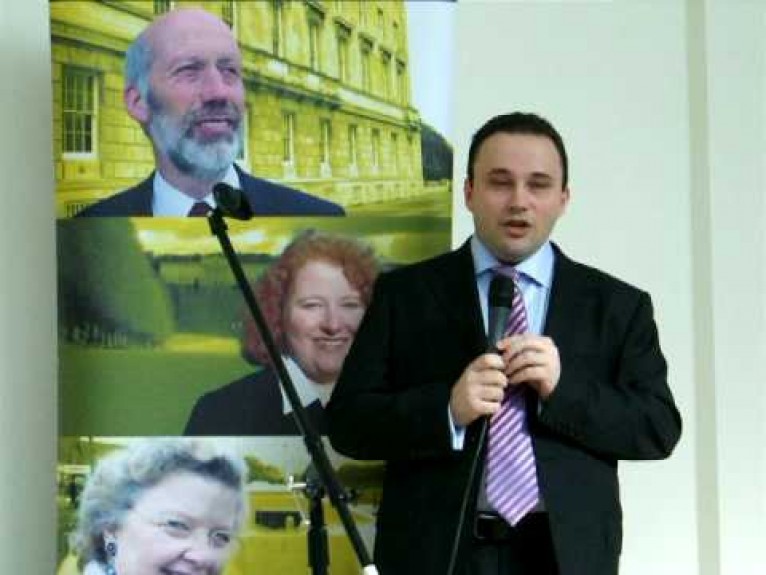
Developments at Stormont:whither Northern Ireland?
Ian Parsley
- 📅Tuesday, May 19, 2020
- 🕥11:00 - 12:00
Ian Parsley, skilled political commentator and Chair of the European Movement in Northern Ireland, returns to DLDK to update us on the re-emergence of community government in Northern Ireland and the implications of Brexit on it's future.
Mar
03
10:30
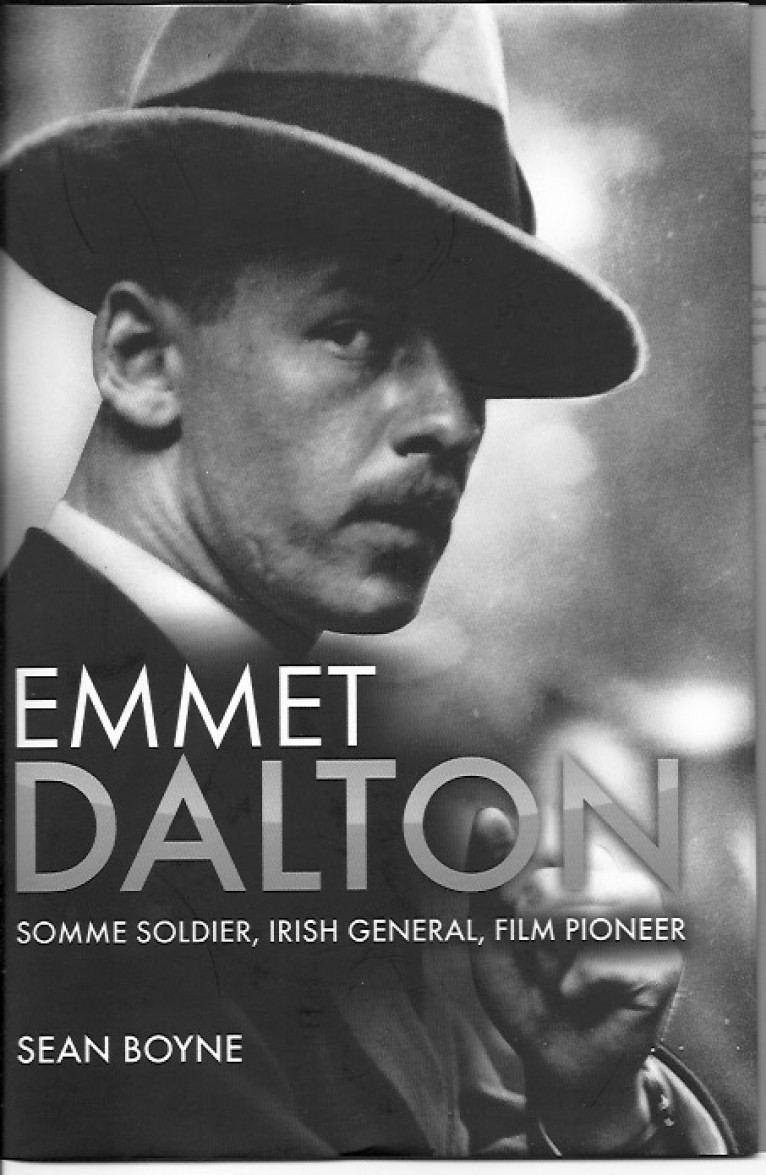
Emmet Dalton, Somme Soldier, Irish General, Film Pioneer
Sean Boyne
- 📅Tuesday, March 3, 2020
- 🕥10:30 - 12:00
Emmet Dalton was born in America in 1898 and taken by his Irish-American parents to live in Drumcondra, Dublin while still a small child. As a 1st Lieutenant with the Royal Dublin Fusiliers, he won the Military Cross for bravery at the Battle of the Somme. He became the IRA’s Director of Training during the War of Independence.
During the talks in London on the Anglo-Irish Treaty, he acted as adviser to the charismatic Michael Collins. When the republican movement split on the issue of the Treaty, he remained loyal to Collins, whom he idolised, and was in charge of the artillery that bombarded the IRA garrison in the Four Courts at the start of the Civil War.
As a Major General in the Free State Army, aged only 24 years, he led the seaborne invasion of Cork which turned the tide of war against the IRA. He was travelling in a touring car with Collins when the ‘Big Fellow’ was shot at Bealnablath on 22 August,1922.
Dalton subsequently became first Clerk of the Irish Senate, and later in life was involved in the film business in England, ultimately setting up Ireland’s first film studio, Ardmore, in Bray, County Wicklow. He died on his 80th birthday in 1978.
Sean Boyne was educated at O’Connell School which Dalton himself attended, and also attended UCD, graduating with a degree in History and Politics. He pursued a career in journalism, and is now retired. He has written a number of books, the most recent being a biography, ‘Emmet Dalton, Somme Soldier, Irish General, Film Pioneer’ (2014).
Feb
18
10:30
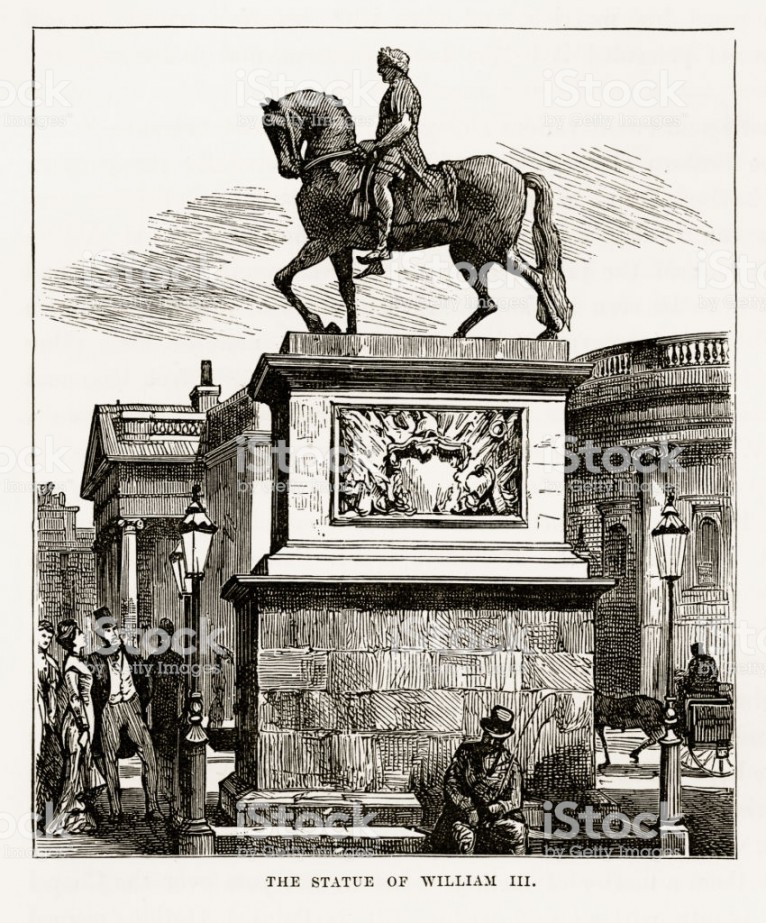
Dublin Statuary: Part 2
Dr.Paula Murphy
- 📅Tuesday, February 18, 2020
- 🕥10:30 - 12:00
A nation’s life might be said to be recorded in its monuments’ (Irish Builder, 1 May 1872). This talk continues our look at public sculpture in Dublin.
Paula Murphy is Professor Emerita in the School of Art History and Cultural Policy, University College Dublin. Her publications include Nineteenth-Century Irish Sculpture, Native Genius Reaffirmed (Yale, 2010) and Sculpture 1600-2000, vol. 3 in the 5 vol. RIA Art and Architecture of Ireland (Yale 2015). She was awarded the RHA Gold Medal 2015. In 2016/17 she held the Terra Foundation Senior Fellowship at the Smithsonian American Art Museum, where she was working on Irish-American sculptors.
Feb
04
10:30
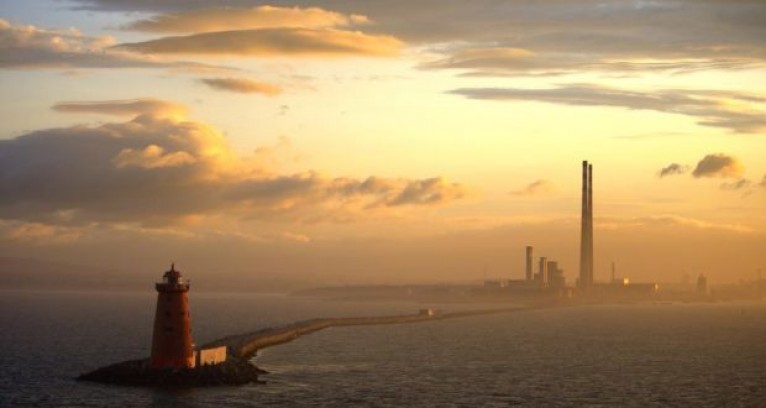
Marine Life around our coast,esp.Dublin Bay
Dr.Jim Wilson
- 📅Tuesday, February 4, 2020
- 🕥10:30 - 12:00
Nine-tenths of Ireland’s territory and their potential resources are under the sea, yet it is only recently that they have started to be explored, mapped and sustainably developed. The living resources have always been used – and over-used - and there are numerous historical and archaeological clues as to their importance.
At the boundary between the warmer Lusitanian species in the south-west and the colder, boreal species in the north and east, Ireland gets a variety of exotic visitors such as the sun- fish in addition to its more usual residents such as cod, salmon and the native oyster. Yet even these are under threat from increasing local human pressures as well as global climate change. Can we manage these changes for the future?
Jan
21
10:30
Stories from a Reuters Correspondent
Michael Roddy
- 📅Tuesday, January 21, 2020
- 🕥10:30 - 12:00
Paul Julius Reuter worked at a book-publishing firm in Berlin and was involved in distributing radical pamphlets at the beginning of the Revolutions in 1848. These publications brought much attention to Reuter, who in 1850 developed a prototype news service in Aachen using homing pigeons and electric telegraphy from 1851 on in order to transmit messages between Brussels and Aachen.
Reuter's agency built a reputation in Europe and the rest of the world as the first to report news scoops from abroad. It was the first to report Abraham Lincoln's assassination in Europe, for instance, in 1865.
Today, Reuters employs some 2,500 journalists and 600 photojournalists in about 200 locations worldwide.
Michael will share his career experiences as Reuters Correspondent.
Jan
07
10:30
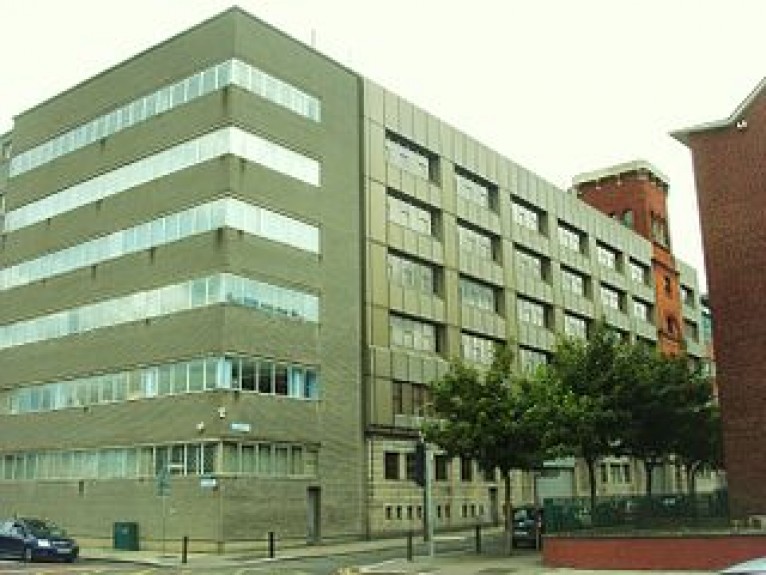
"Opening the box of revolution": Ireland, 1919-23, as revealed in records from the National Archive
John Gibney, historian and author
- 📅Tuesday, January 7, 2020
- 🕥10:30 - 12:00
John Gibney is Assistant Editor with the Royal Irish Academy’s Documents on Irish Foreign Policy (DIFP) series. He is a graduate of Trinity College, Dublin (BA, PhD), where he also lectured in history, and was formerly a postdoctoral fellow at the University of Notre Dame and at NUI Galway. Prior to joining the RIA he was Education and Outreach Officer at Glasnevin Trust and he has worked extensively in tourism and in the heritage and publishing sectors, including as the online editor for History Ireland magazine. He has written widely on modern and early modern Irish history and historiography.
His books include A short history of Ireland, 1500-2000 (Yale UP, 2017) and, most recently (with Michael Kennedy and Kate O’Malley), Ireland: a voice among the nations (RIA, November,2019).
John will reveal to us a single archival box from the NAI; namely, one that has files about the first Dáil and Russia, Egypt, India,etc., an archival treasure-trove.
Nov
26
10:30
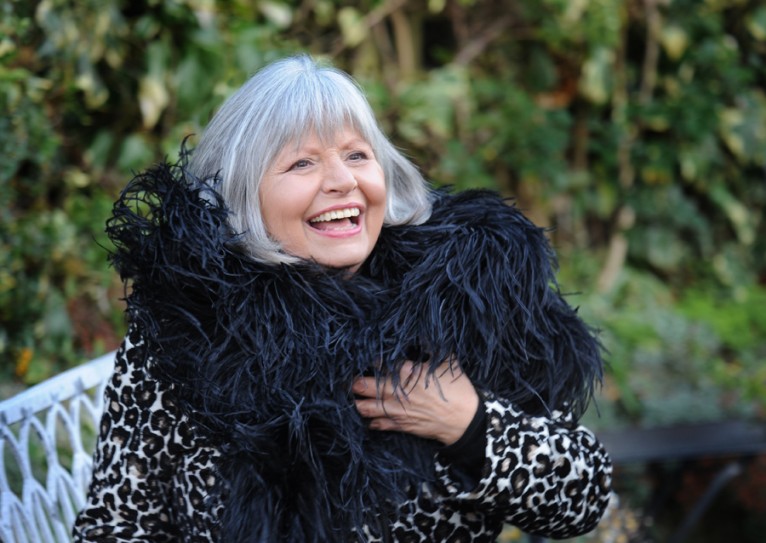
Our end-year Music Celebration!
Susie Kennedy
- 📅Tuesday, November 26, 2019
- 🕥10:30 - 12:00
Susie Kennedy
Chicago-born Susie Kennedy has worked in Dublin for more than 45 years as an actor, singer, director and teacher.
Over the years she has produced and performed musical plays and jazz/blues reviews, including, YOU CAN’T DEEP FREEZE A RED HOT MOMMA, WOULD THE REAL JUDY GARLAND PLEASE... , WILD WOMEN DON’T HAVE THE BLUES, COME UP AND SEE ME SOMETIME and FOREVER FATS.
Susie Kennedy is well known for her frequent singing engagements with the late Professor Peter O’Brian and appearances on THE LATE LATE SHOW , THE PAT KENNY SHOW, THE GAY BYRNE MUSIC SHOW and the National Concert Hall. She also appeared in THE TRIBUNAL SHOW on RTE radio, DVD and on National Tour
Carole Nelson
Carole Nelson is a Carlow-based composer who has worked extensively across many genres, including theatre, choral, pop and jazz. She has received awards internationally for her work with Irish contemporary duo Zrazy. Her current project, the Carole Nelson Trio, will see the release of her second album of jazz piano trio compositions. www.carolenelsonmusic.com
Most recently Susie and Carole teamed up to present a show about being “an older woman!”, titled AS TIME GOES BY.
They presented the show at the Viking Theatre and the Pavilion Theatre in Dun Laoghaire last year.
The performance for U3A will include songs from the jazz and cabaret tradition, think Ella Fitzgerald or Edith Piaf, as well as a few saucy Sophie Tucker numbers, just for the fun of it! It will be easy listening and a very agreeable way to spend the morning!
Nov
12
10:30
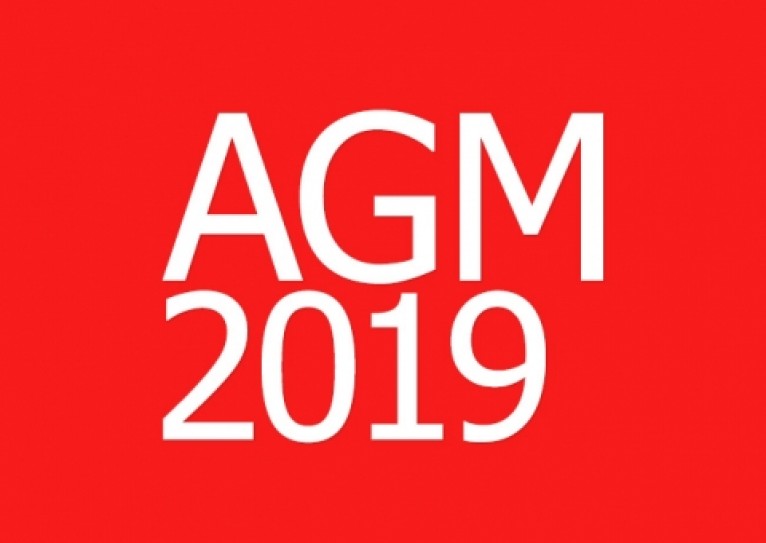
AGM & Membership Renewal ( 12 & also 19 November)
Members
- 📅Tuesday, November 12, 2019
- 🕥10:30 - 12:00
At the AGM, there will be an opportunity to renew your U3A DLDK membership. There will be a further opportunity to renew your membership on 19th November at 10.30-12.00 in the St.Joseph's Centre.
Oct
29
10:31
The Burren- a rocky place?
Dr.George Sevastopolu
- 📅Tuesday, October 29, 2019
- 🕥10:31 - 12:00
The Burren is one of Ireland's natural wonders, a unique heritage environment, worthy of preservation for future generations. Our speaker, a renowned authority on The Burren, will introduce its geology, archaeology and flora to us, with a discussion of conservation issues.
George Sevastopulo, Professor and Fellow Emeritus of Trinity College Dublin, is a geologist who has been visiting The Burren for the past 50 years and is deeply interested in all facets of natural history and archaeology.
Oct
15
10:30
The Secret of Life
Dr.Robert Barklie
- 📅Tuesday, October 15, 2019
- 🕥10:30 - 12:00
A short book entitled “ What is Life ? “ , written by the Nobel prize winning physicist Erwin Schrodinger , was published in 1944. It inspired several scientists to seek an answer and this talk presents the dramatic story of how two of them found a response - a scientific discovery that many rank as the most important of the twentieth century.
Oct
01
10:30
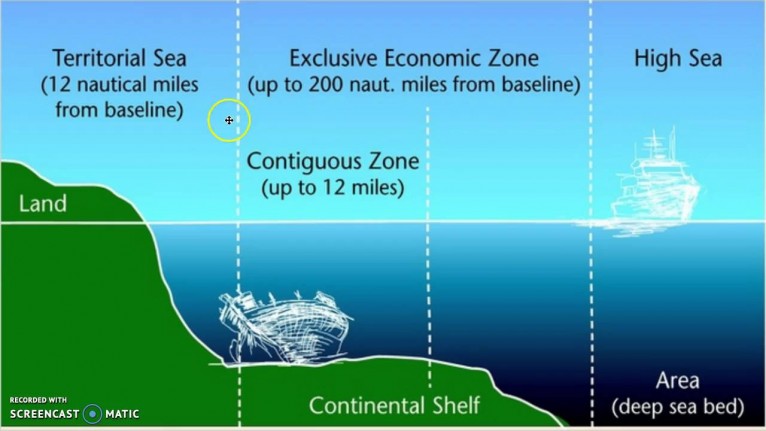
The Law of the Sea; historic waters and historic rights...and wrongs!
Dr.Clive Symmons
- 📅Tuesday, October 1, 2019
- 🕥10:30 - 12:00
Dr Clive Symmons is a Visiting Research Fellow in the School of Law ,TCD and was formerly also Adjunct Professor of Law in UCG. He has taught and researched on international law topics for many years on both sides of the Irish Sea, with a specialisation in the Law of the Sea, on which topic he has written several books and many articles; the most recent being Historic Rights and Historic Waters in the Law of the Sea:A Modern Reappraisal,2nd ed.2019.
He has also been involved in advisory and consultancy work on international maritime disputes, and most recently has been much engaged in the South China Sea dispute; on which he has given papers all over the Far East in the last five years,many of which are now published as book chapters.
The South China Sea dispute is an on-going low-level conflict over the waters of the vast South China Sea between the 5 neighbouring States. This regional sea contains numerous islands, reefs and rocks, most of which are subject to competing claims of sovereignty by the surrounding States. In recent years the Philippines took China to international arbitration over various legal aspects of the dispute; but China refused to accept the jurisdiction of the arbitral tribunal.
Sep
17
10:30
James Joyce : who in their right mind would want to read Ulysses?:
Dr.Seamus Cannon
- 📅Tuesday, September 17, 2019
- 🕥10:30 - 12:00
Dr Séamus Cannon, Joycean enthusiast and former Director of the Blackrock Education Centre , is a well -known local historian and educator. He is also a woodworker/furniture maker and recently helped construct a traditional Donegal currach.
Séamus is chairperson of the Friends of Joyce Tower Society, a volunteer group which staffs the Tower 365 days a year. He presents a course ‘Reading Ulysses’ each year in which he encourages like-minded eccentrics to read Ulysses, leading them through Joyce’s masterpiece in a series of lectures and walks.
We are delighted that Seamus has agreed to come to DLDK to give us his hugely entertaining and informing talk on this internationally recognised work of genius from one of Ireland's best- known literary giants. The illustrated talk is packed with anecdotal and amusing insights and illustrations and will re-vamp your interest in Ulysses and Joyce."
Sep
03
10:30
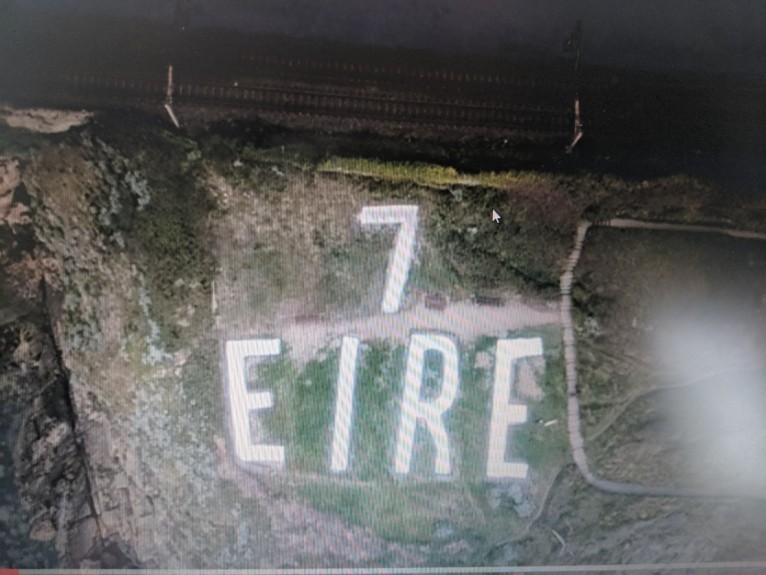
Ireland & World War 2, EIRE sign No.7 ...and beyond...
Dr.Michael Kennedy
- 📅Tuesday, September 3, 2019
- 🕥10:30 - 12:00
By popular acclaim, Dr.Michael Kennedy, Historian and Archivist at the Royal Irish Academy, will return to talk to us about Ireland in the 2nd World War, on the 80th anniversary of the commencement of that terrible conflagration, on the recovery of our local EIRE No.7 aerial sign and on the decade after the war ended up to our UN membership.
Michael Kennedy is the Executive Editor of the Documents on Irish Foreign Policy series published by the Royal Irish Academy.
Previously, Michael lectured in Modern and Irish History at Queen's University Belfast. He received his PhD from University College Dublin in 1994. He is co-editor of Documents on Irish Foreign Policy, volumes I to IX and a native of Dalkey.
Jul
02
10:30
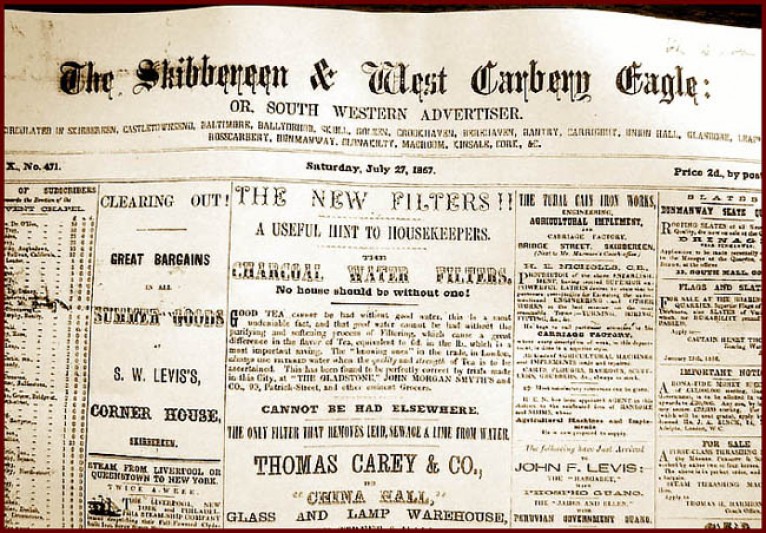
End of Term
No one: we are on vacation from 2nd July until 3rd September
- 📅Tuesday, July 2, 2019
- 🕥10:30 - 12:00
There will be no main U3A DLDK main meetings during the months of July & August. However, there may be some limited group activities during this period, as decided by participants. We will notify members of any short courses which may take place during the summer vacation period.
And your Steering Group will meet on occasion during this time and will, as ever, remain eternally vigilant, as any Skibbereen ( & West Carbery, to give the full masthead title) Eagle would, as part of the price of liberty...( John Philpot Curran or not? ... apossible topic for another Tuesday...)
Jun
25
10:30
So much energy, so little time! or ...Everything you need to know about energy but are afraid to as
Professors Robert Barklie & Chris Stillman & Nigel Buttimore- our eminent DLDK in-house science gurus
- 📅Tuesday, June 25, 2019
- 🕥10:30 - 12:00
SUSTAINABLE ENERGY : Professors Chris Stillman, Robert Barklie and Nigel Buttimore, DLDK's own eminent scientists, will guide us through an understanding of solar, wind and hydro power and their relevance to the future of planet Earth!
Jun
11
10:30
Harry Clarke; his Stained Glass Legacy
Dr Roisin Kennedy (UCD)
- 📅Tuesday, June 11, 2019
- 🕥10:30 - 12:00
Dr Kennedy is co-editor of Harry Clarke and Artistic Visions of the New Irish State (Irish Academic Press 2018). She will talk about Clarke's work in stained glass and in illustration and explain why he was one of the most prolific and widely known artists of his generation.
One of his works is on display at Holy Trinity Church, Killiney Hill Road if you would like to see his work close up before our talk.
May
28
10:30
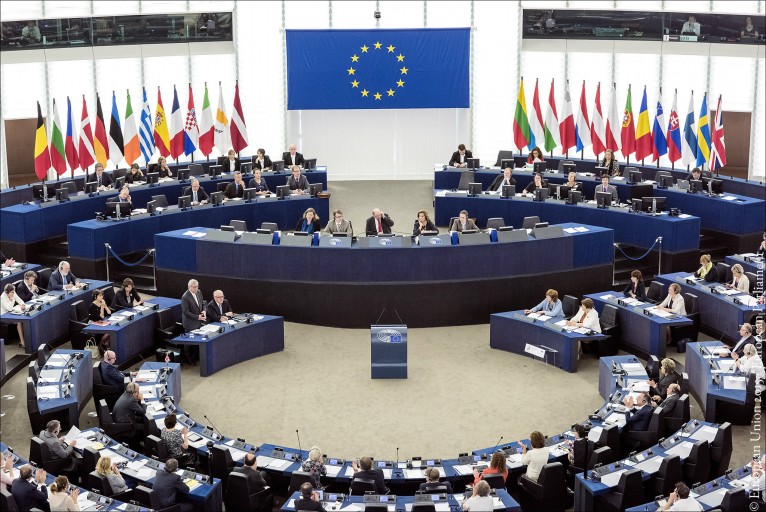
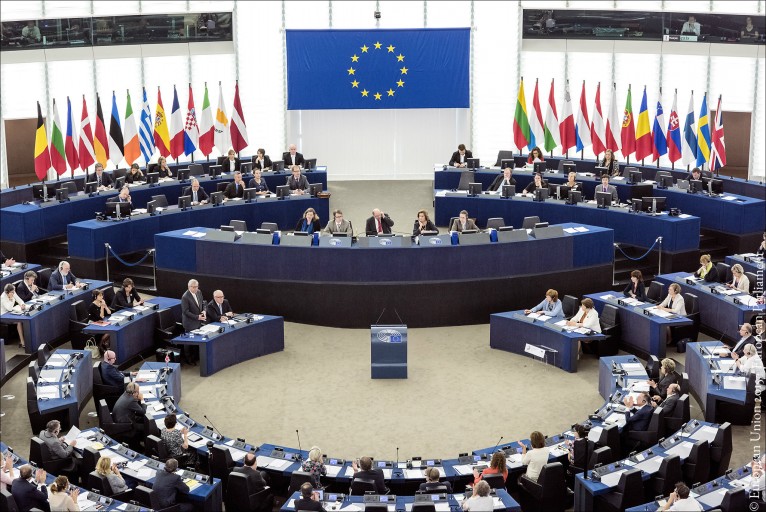
Our European Parliament Elections!
Your DLDK Pundits
- 📅Tuesday, May 28, 2019
- 🕥10:30 - 12:00
What have we done?!?
The next elections to the European Parliament are expected to be held between 23 and 26 May 2019. A total of 751 Members of the European Parliament (MEPs) currently represent more than 512 million people from 28 member states. In February 2018, the European Parliament voted to decrease the number of MEPs from 751 to 705 if the United Kingdom withdraws from the European Union on the current schedule.[3]
May
21
10:30
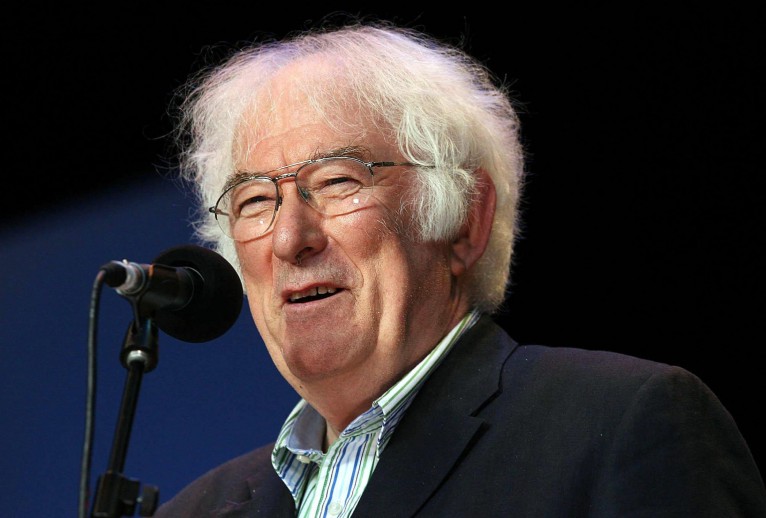
A Special Invitation to members
The Seamus Heaney Exhibit, BoI,College Green
- 📅Tuesday, May 21, 2019
- 🕥10:30 - 12:00
The National Library, as curator, has kindly offered us two exclusive tours of this new exhibition celebrating Seamus Heaney. They can accommodate 25 people on each tour, starting at 10.45 and at 11.30 am. Please apply,as soon as possible, stating your preferred time,
to : dldk.u3a@gmail.com , marked "Attention: Denise" .
You will receive a reply.
May
14
10:30
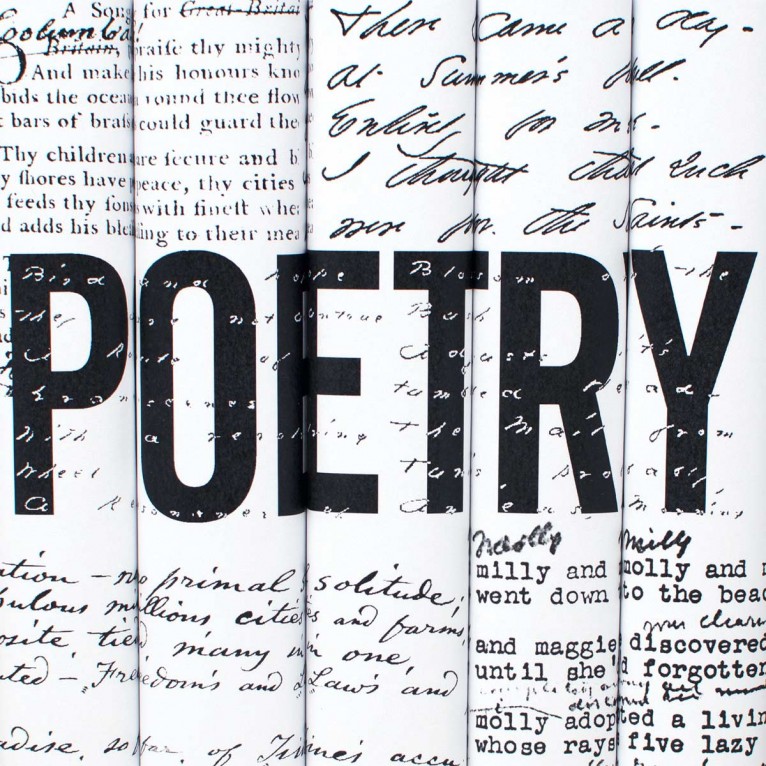
Poetry, please!
Members
- 📅Tuesday, May 14, 2019
- 🕥10:30 - 12:00
You are invited to nominate a favourite poem, by a published poet. The theme can be romantic, reflective, quizzical, humourous...any mood you like.
Those selected will be read aloud and discussed at this regular Tuesday meeting. Please send your choice and the reason why the poem is important to you to: dldk.u3a@gmail.com , marked "Attention: Annie"
You will receive a reply.
Apr
30
10:30
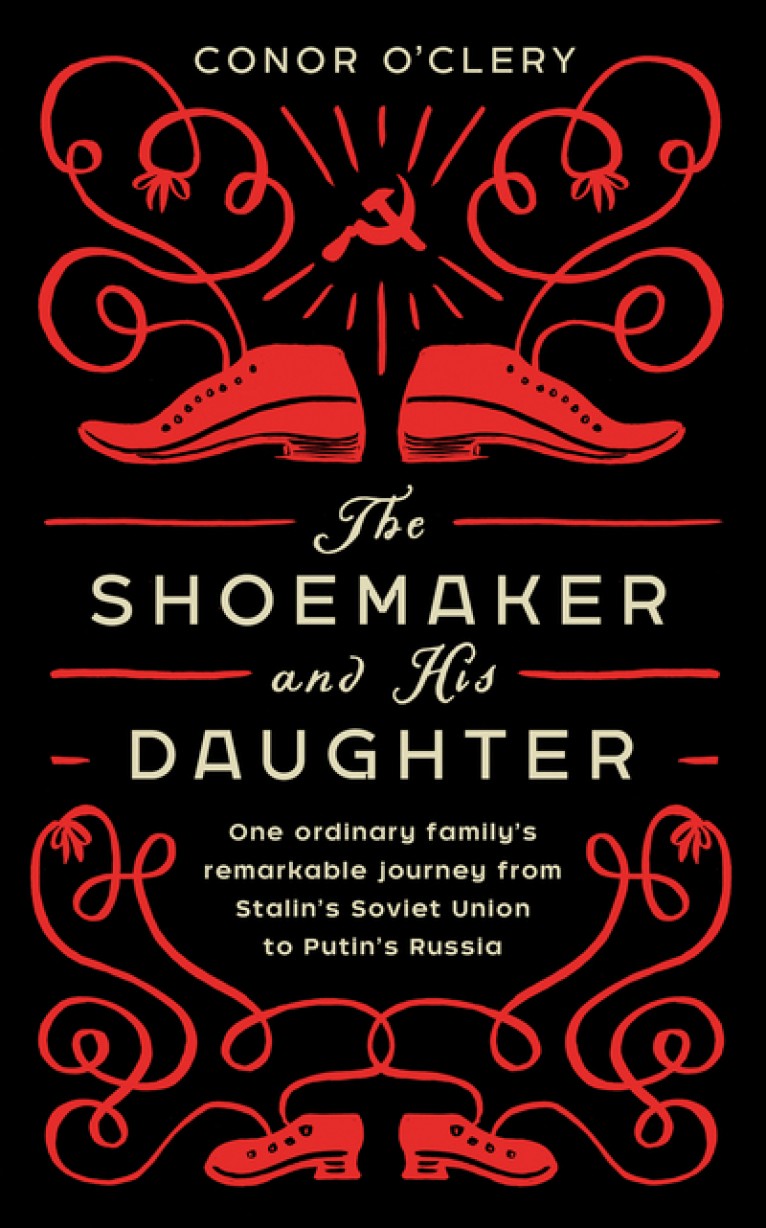
"From Russia with Love & Other Adventures"
Conor O'Clery
- 📅Tuesday, April 30, 2019
- 🕥10:30 - 12:00
Conor O Clery talks about his best selling book "The Shoemaker and his Daughter", a fascinating account of his wife Zhanna's family and their transition from Stalin's Soviet Union to Putin's Russia. If time allows, he will also tell a few tales about his long celebrated journalistic life on The Irish Times.
Apr
02
10:30
In the Wake of the Vikings; Viking voyages across the Atlantic - their colonisations
Prof.Chris Stillman
- 📅Tuesday, April 2, 2019
- 🕥10:30 - 12:00
Our own Dr.Chris will once more entertain and inform us on his newest topic exploring the imperial aspirations of our Viking ancestors in their conquest of Iceland, Greenland and their,temporary, occupation of Newfoundland ( and there is no truth in the rumour that Chris is blaming the Vikings for Brexit! :) )
Mar
19
10:30
Plants, Potions & Snails
Dr.Helen Sheridan
- 📅Tuesday, March 19, 2019
- 🕥10:30 - 12:00
Dr Helen Sheridan is Associate Professor and Director of Research in the School of Pharmacy and Pharmaceutical Sciences in TCD, which she joined in 1985. Following her earlier D.Phil award at UCD she worked with Nobel Laureate Sir Derek Barton and others. Helen is a member of the Health Products Regulatory Authority, she serves as an external examiner, mentors other students as well as carrying out development work on her own research interests.
------------------------------------------------------
From time immemorial, mankind has explored and developed the healing powers of nature using plants, flowers, herbs, trees, fungi and even small creatures. All these have made positive contribution to the improvement of human health and many continue to do so.
Her expertise and experience ensure Helen is uniquely qualified to walk us through the centuries and show the huge role of natural life in the continued existence of the world's population. You will be intrigued!
(Note: It might be a good idea to bring a small notebook to this one. AJ)
Mar
12
10:30
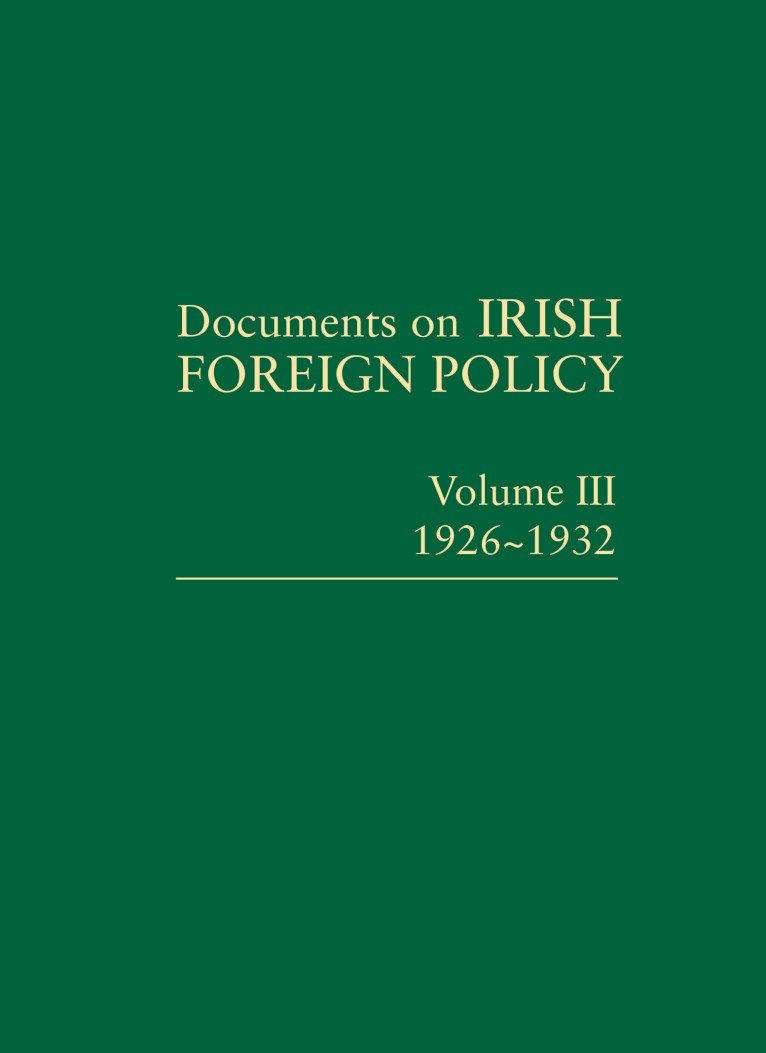
A History of Irish Foreign Policy, part 2
Dr. Michael Kennedy, Executive Editor of the Documents on Irish Foreign Policy series.
- 📅Tuesday, March 12, 2019
- 🕥10:30 - 12:00
- 🏟St. Joseph's Parish Hall, Glasthule (map)
Michael continues his exploration of what superficially may be described as some very dusty old files on Irish Foreign Policy...and makes some unique and surprising discoveries!
Mar
05
10:30
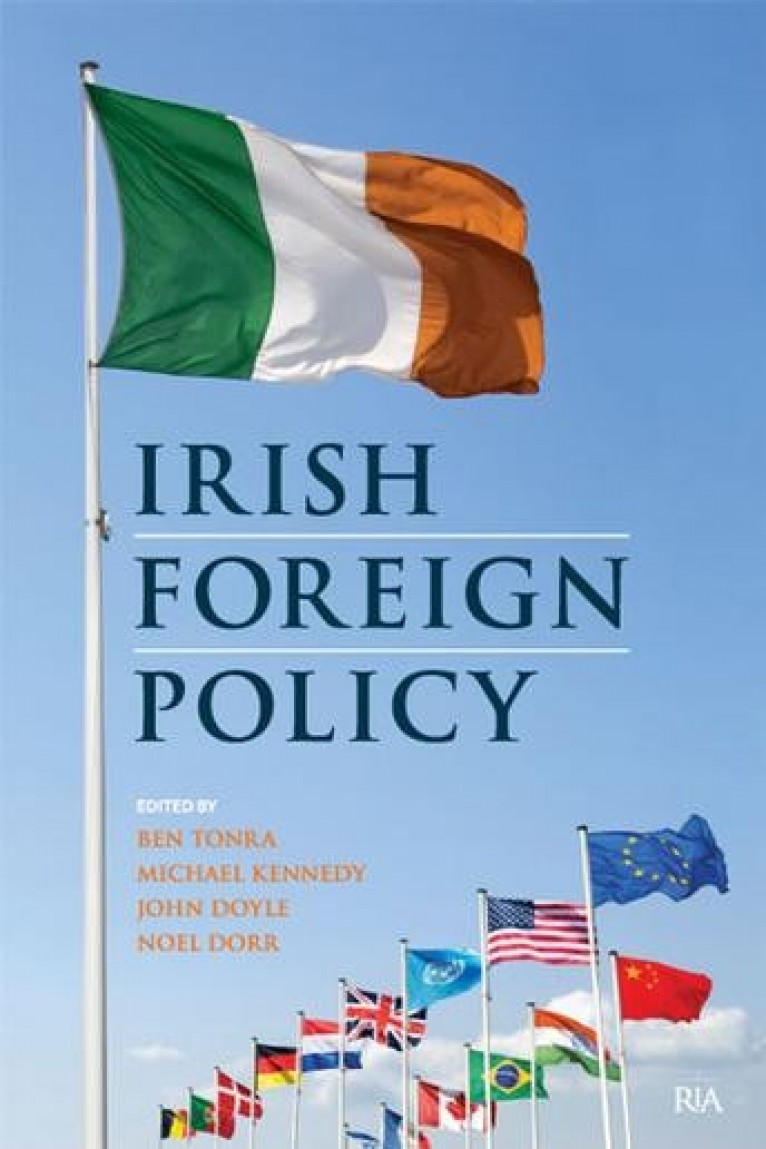
A History of Irish Foreign Policy, part 1
Dr. Michael Kennedy, Executive Editor of the Documents on Irish Foreign Policy series.
- 📅Tuesday, March 5, 2019
- 🕥10:30 - 12:00
- 🏟St. Joseph's Parish Hall, Glasthule (map)
Michael Kennedy is the Executive Editor of the Documents on Irish Foreign Policy series published by the Royal Irish Academy.
Previously, Michael lectured in Modern and Irish History at Queen's University Belfast. He received his PhD from University College Dublin in 1994. He is co-editor of Documents on Irish Foreign Policy, volumes I to IX and a native of Dalkey.
Feb
19
10:30
Johann Sebastian Bach;his music
Tim Thurston
- 📅Tuesday, February 19, 2019
- 🕥10:30 - 12:00
- 🏟St. Joseph's Parish Hall, Glasthule (map)
Tim Thurston was born in Cambridge, UK: it's Jazz clubs, concert halls and King's College Chapel set his musical tastes. His broadcasting career in Dublin began in the 1980s singing with the RTE Chorus and the Camerata Singers, and also compiling and presenting programmes. He presented the first series of "Gloria" in 1997 which transferred to Lyric FM and ran for 18 years.
Choral singing informs a great deal of his life and he has sung on many choirs inc. the highly regarded St Bartholomews Church in Ballsbridge. He has a depth of knowledge and comprehensive library of recorded music which serve to illustrate his talks at the N.C.H, the Lexicon and the many other local groups. These lectures are hugely popular and we are delighted he has found time to come and share his enthusiasm with us.
Today he will enlighten us on the man and the music of JS Bach, a composer who is especially close to his heart.
Feb
05
10:30
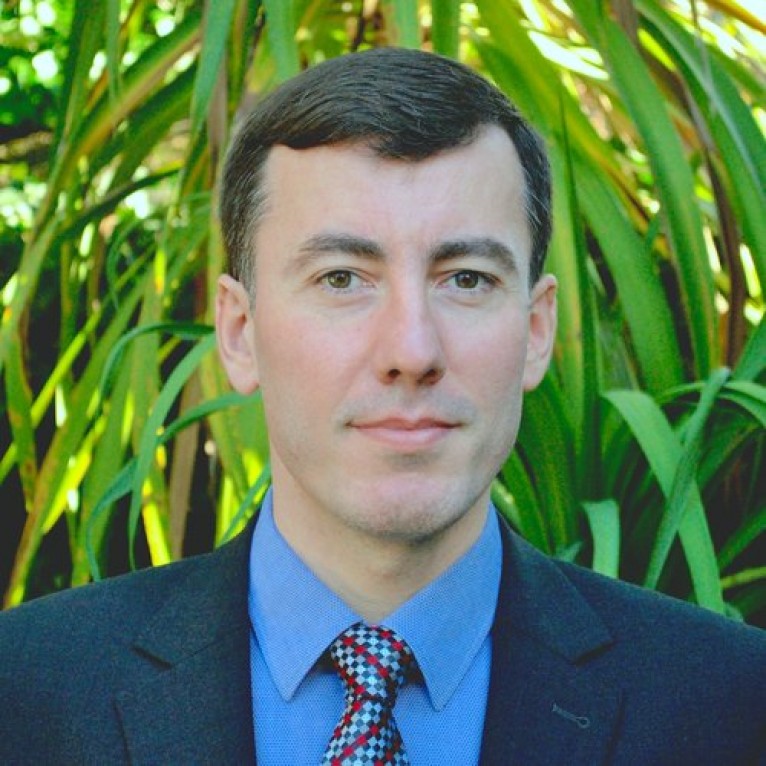
Ageing Long & Well; yes, we can!
Prof.Roman Romero-Ortuno,Associate Professor in Medical Gerontology at Trinity College Dublin and Consultant Physician in St. James’s Hospital, Dublin.
- 📅Tuesday, February 5, 2019
- 🕥10:30 - 12:00
Prof. Ortuno will be outlining the concept of biological ageing and its increasing heterogeneity with chronological ageing. The concepts of frailty and resilience will be presented as opposite sides of a continuum, and the latest current scientific evidence will be presented as to what can be done to minimise frailty and improve resilience in ageing
Jan
22
10:30
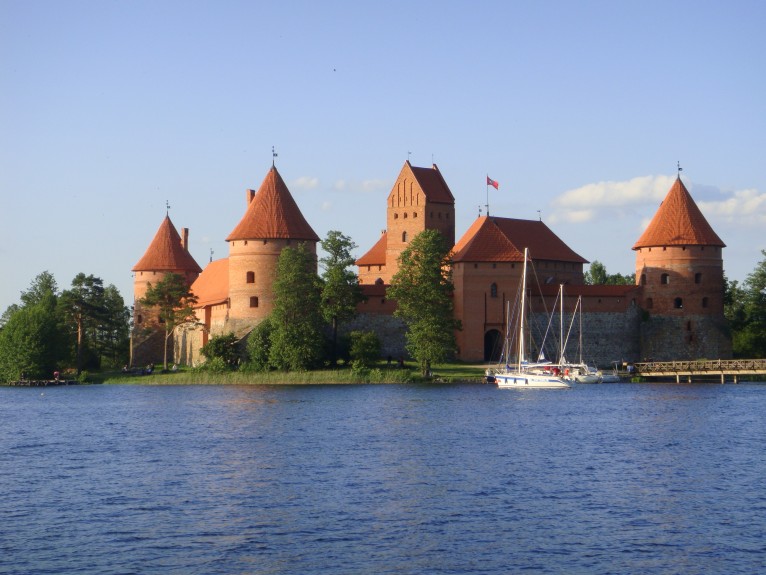
As myliu Lietuva! I love Lithuania!
Dónal Denham
- 📅Tuesday, January 22, 2019
- 🕥10:30 - 12:00
- 🏟St. Joseph's Parish Hall, Glasthule (map)
In September 2005, Dónal was appointed as the the first resident Ambassador of Ireland to Lithuania, one of the 3 Baltic States which joined the European Union during the Irish presidency in 2004. Lithuania's capital city, Vilnius, is a gem of 18th century baroque architecture and the country, which claims with some justification to be the literal,geographic centre of Europe, has a rich history and culture which is little known even now in Western Europe.
Dónal, a self-confessed history buff, will attempt to convey why he found Lithuania such a delightful place to live and why it is his nomination as the next, yet-to-be-discovered tourist destination of preference for the discerning voyager.
Jan
08
10:30
The Irish Property Market;an analysis & dialogue
Dr.David Duffy
- 📅Tuesday, January 8, 2019
- 🕥10:30 - 12:00
- 🏟St. Joseph's Parish Hall, Glasthule (map)
Dr. David Duffy, Director, Property Industry Ireland (PII), the IBEC group for businesses working in the property sector, has been instrumental in analysising recent market developments. In relation to Budget 2019, he is on record as saying:
“Affordability is one of the main challenges in the market at present. The allocation of funding to bring forward lands for subsidised, more affordable housing is a positive step. However, the lack of a definitive statement on the future of the HTB scheme, which is due to expire next year, risks causing uncertainty in the market. In addition, increasingly the sector faces labour and skills shortages. The lack of specific measures to attract labour back to Ireland into the property sector is disappointing.”
David looks forward to initiating a dialogue with U3A members on his perspectives on the future of the Irish property sector.
Nov
27
11:30
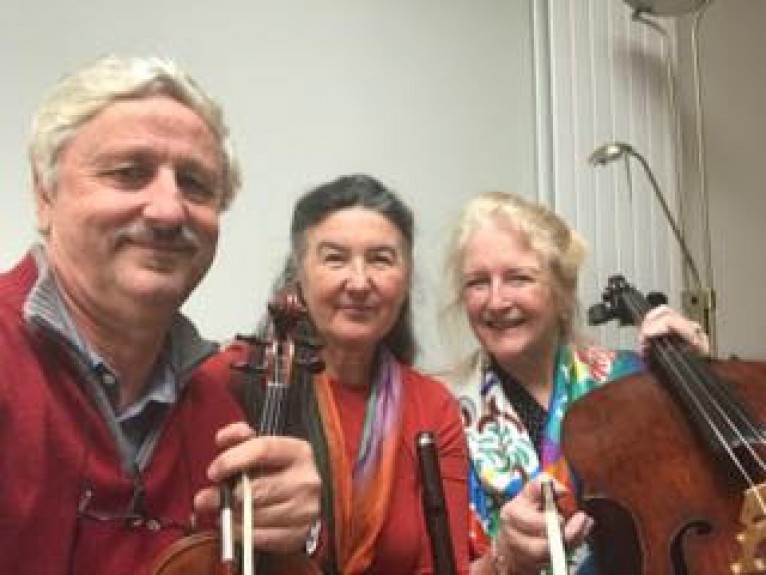
A Musical Celebration
- 📅Tuesday, November 27, 2018
- 🕥11:30 - 12:00
- 🏟St. Joseph's Parish Hall, Glasthule (map)
A programme of Music, details below, selected and presented by
Aisling Drury Byrne (Cello), Mircea Petcu (Violin) and Elizabeth Gaffney (Flute)
S. Scheidt (1587 – 1654) Galliard Battaglia
J.S. Bach (1685 – 1750) from The Art of Fugue
Contrapunctus VIII
G.P. Telemann (1681 – 1750 from Suite in A minor
Air à L’Italien
Minuets I and II
Réjouissance
R. Gliére (1875 – 1956) from 8 pieces for violin and cello
Berceuse
Gavotte/Musette
Scherzo
B. Bartok (1881 – 1945) Six Romanian Folk Dances
C. Porumbescu (1853 – 1883) Balada
Irish Traditional My Lagan Love
I. Albéniz (1860 – 1909) Tango Op. 165 No. 2
J. Sanders (1897 – 1942) Adios Muchachos
E. Granados (1867 – 1916) Playera from Spanish Dance Op. 5 No. 5
A-E Chabrier (1841 – 1894) España
American Traditional Hoedown Limerock
Nov
20
10:30
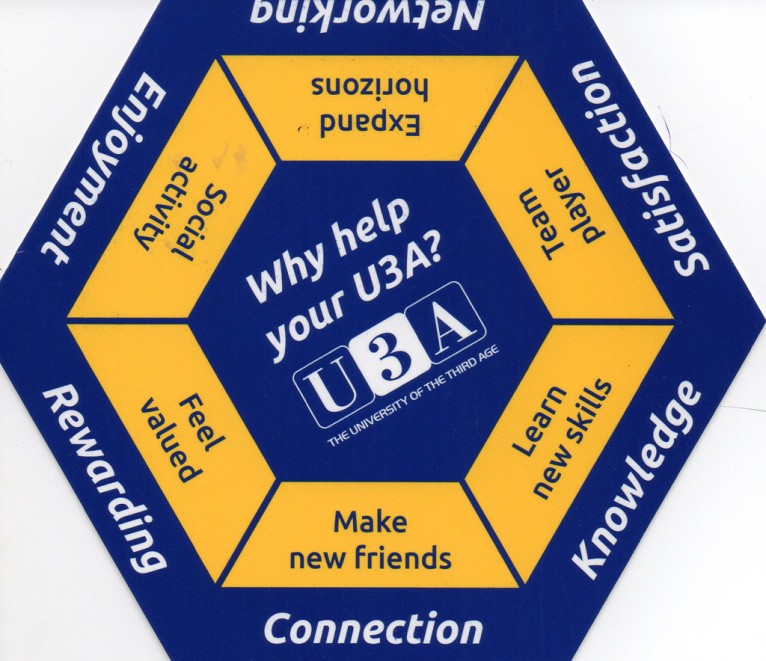
Membership Renewal for 2019
No speaker
- 📅Tuesday, November 20, 2018
- 🕥10:30 - 12:00
- 🏟St. Joseph's Parish Hall, Glasthule (map)
Nov
13
10:30
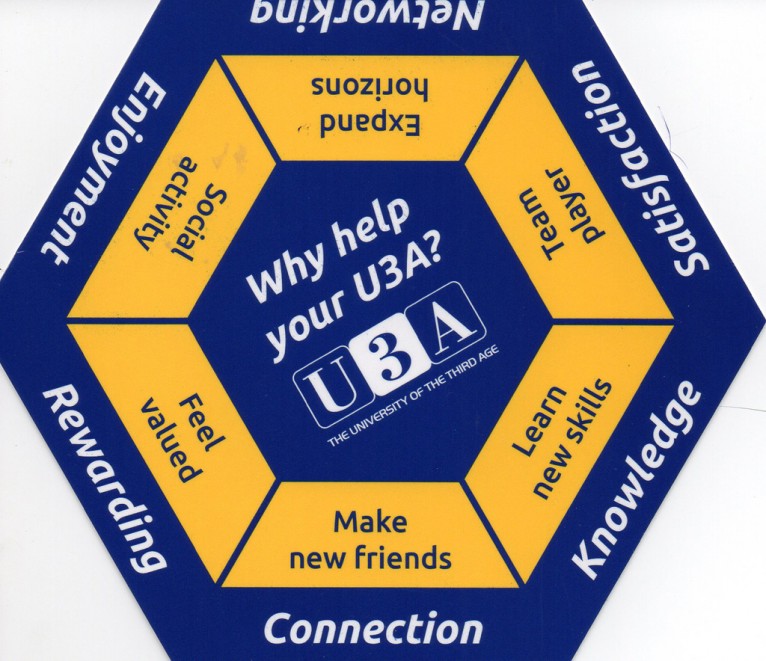
DLDK AGM & 2019 Membership Renewal opportunity
Chair & Group Officers, Members
- 📅Tuesday, November 13, 2018
- 🕥10:30 - 12:00
- 🏟St. Joseph's Parish Hall, Glasthule (map)
2019 Membership Renewal will begin at 10.30 am. The AGM will begin at 11.30. The AGM agenda is as follows:
1. Chairman's Report
2. Secretary's Report
3. Treasurer's Report
4. Appointment to Steering Group
5. Any Other Business
Oct
30
11:30
"Who do we think we are?"; ancient genomes and Irish origins
Dr. Dan Bradley
- 📅Tuesday, October 30, 2018
- 🕥11:30 - 12:30
- 🏟St. Joseph's Parish Hall, Glasthule (map)
Dr.Bradley will explain how human genetics can be used to understand better the patterns and processes underlying genetic variations which exist on our island. Ancient DNA is now an archaeological tool, enabling genetic postcoding of discoveries of human remains, which is rewriting the history of European colonisation.
Ancient genomes, the investigation of 10.000 years of animal genetics, also assists in improvements in the breeding and production of disease-resistant cattle, sheep and goats, a major economic benefit.
Oct
16
11:30
Any Questiontime
A Panel discussion, moderated by DLDK Chairman, Donal Denham
- 📅Tuesday, October 16, 2018
- 🕥11:30 - 12:30
- 🏟St. Joseph's Parish Hall, Glasthule (map)
We have invited a panel of distinguished speakers to give their perspective on current affairs topics,with questions supplied in advance by the audience.
Panel:
The panel, at date of writing, will be:
John Bolton, U3A DLDK member
Isolde Moylan, Amb. retd. & member
Pádraig Murphy, Amb.of Ireland, retd.
Ian Parsley, Chair, European Movement NI
& Panel Monitor, Donal Denham ( DLDK Chair).
Topical questions on a broad range of current affairs issues are invited on e.g. Brexit; US Mid Term elections; on Russia; Northern Ireland; the Middle East; the Papal Visit, on Ageism; on the Irish Presidential Election; the Future of the EU, and on any other topic you may wish to raise.
Oct
02
11:30
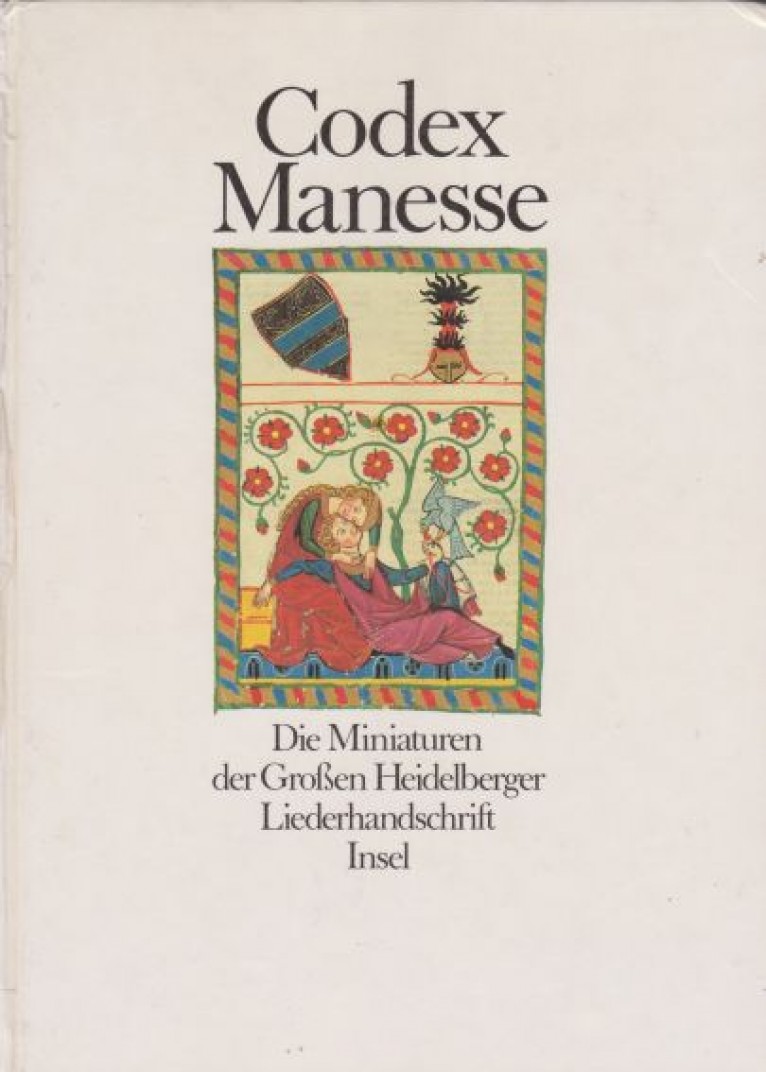
The Manesse manuscript: Germany's Book of Kells?
Tim Jackson
- 📅Tuesday, October 2, 2018
- 🕥11:30 - 12:30
- 🏟St. Joseph's Parish Hall, Glasthule (map)
This talk will describe a manuscript that was probably produced in the late 13th or early 14th century in Zürich. Probably the best known medieval manuscript from the German-speaking region of the time, it comprises an anthology of lyric poetry of various kinds: amorous, political, social. However, it is best known to the general public for over a hundred colourful, full-page illustrations of the different poets that it contains, sometimes portraying them in situations drawn from their poetry and with accompanying heraldic information. The talk will give some background information and look more closely at the content of the illustrations.
Tim Jackson spent his working life in the German department, Trinity College Dublin. Most of his research involved medieval German literature, in particular the saint’s legend and the romance, with a strong interest in the ways in which meaning is conveyed in medieval German texts.
Sep
18
11:30
Ireland & Neutrality
John Biggar, Ambassador of Ireland (retd.)
- 📅Tuesday, September 18, 2018
- 🕥11:30 - 12:30
- 🏟St. Joseph's Parish Hall, Glasthule (map)
Ireland prides itself on being a neutral country. But is it really so? Should it remain so? Is this a sustainable policy for the future? Or are we destined to join the EU Army? What does the NATO "Partnership for Peace" programme entail and does it already compromise our Neutrality status?
John Biggar spent fifteen years representing Ireland at the UN, served as Deputy Head of the Irish Liaison Office to NATO, and for five years was Director of International Security Policy in the Dept. of Foreign Affairs.
Sep
04
11:30
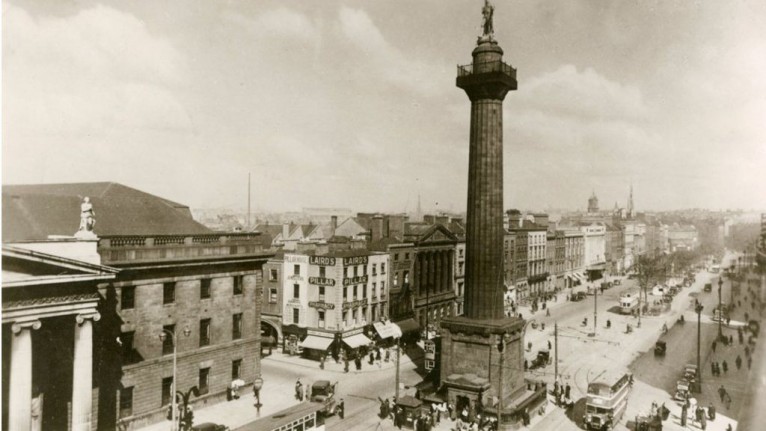
The politics of public sculpture
Dr. Paula Murphy, Prof.emerita, UCD School of Art History & Cultural Policy
- 📅Tuesday, September 4, 2018
- 🕥11:30 - 12:30
- 🏟St. Joseph's Parish Hall, Glasthule (map)
‘A nation’s life might be said to be recorded in its monuments’ (Irish Builder, 1 May 1872). This talk looks at public sculpture in Dublin, from the erection of royal equestrian monuments in the eighteenth century to the unveiling of the Parnell statue in 1911. The focus will be on imperial and nationalist monuments and the controversy that surrounded them across three centuries.
Paula Murphy is Professor Emerita in the School of Art History and Cultural Policy, University College Dublin. Her publications include Nineteenth-Century Irish Sculpture, Native Genius Reaffirmed (Yale, 2010) and Sculpture 1600-2000, vol. 3 in the 5 vol. RIA Art and Architecture of Ireland (Yale 2015). She was awarded the RHA Gold Medal 2015. In 2016/17 she held the Terra Foundation Senior Fellowship at the Smithsonian American Art Museum, where she was working on Irish-American sculptors.
Jun
26
10:30
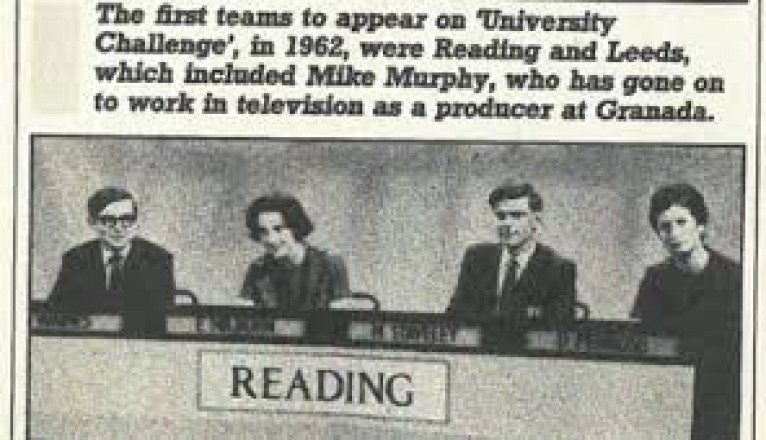
"Your Starter for 10...." U3A Challenge Quiz
U3A Teams
- 📅Tuesday, June 26, 2018
- 🕥10:30 - 12:00
- 🏟St. Joseph's Parish Hall, Glasthule (map)
Teams comprising DLDK members will compete for the honour and glory of being the inaugural U3A Challenge Quiz champions! "...Bonuses will be worth 5 each..."
Jun
12
19:30
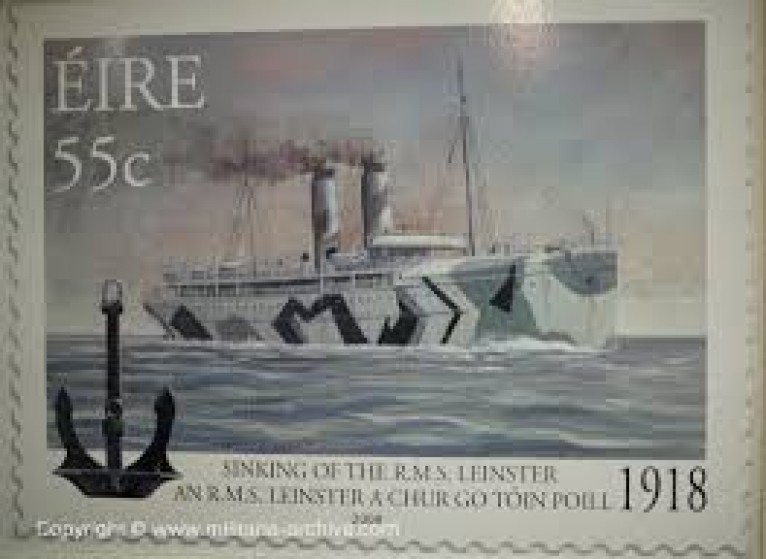
The RMS Leinster Sinking, one hundred years on, our worst maritime loss: please note venue & time
Seamus O'Connor
- 📅Tuesday, June 12, 2018
- 🕥19:30 - 21:00
- 🏟National Maritime Museum, Dún Laoghaire (map)
October 2018 marks the centenary of the sinking of the RMS Leinster by a German u- boat off the Irish coast, with the largest loss of life in Irish maritime history. To mark this special anniversary, DLDK members have been invited to a special talk at the National Maritime Museum by a leading scholar on the Leinster sinking and Museum Board member, Seamus O'Connor. The museum houses a number of artifacts recovered from the wreck as well as a unique data-base of crew members and others aboard.
There will be a special discount museum entry charge of €5 for members, to go towards maintenance of the National Maritime Museum.
May
29
10:30
Music & Maths
Dr.Peter Lynch
- 📅Tuesday, May 29, 2018
- 🕥10:30 - 12:00
- 🏟St. Joseph's Parish Hall, Glasthule (map)
Professor Lynch is Emeritus Professor of Meteorology at University College, Dublin. In his retirement Peter continues his research in dynamical meteorology, but he is also a Mathematics fanatic. He writes a regular column "That's Maths" for the Irish Times, and also blogs at thatsmaths.com.
All of us recognise the tremendously enriching power of music in our lives - it offers joy, comfort, excitement, fun and often deep contentment. For centuries the links between Music and Maths have been recognised by both mathematicians and musicians, and particularly by the great composers like Johann Sebastian Bach.
Using a keyboard to illustrate his talk, Professor Lynch will explore and explain the relationship between patterns, sounds and harmony. There is great beauty, symmetry and satisfaction to be found, in ways most of us have never thought of. It's going to be a fascinating journey...
May
15
10:30
Neuroscience: Say Hello to Brain Health
Dr.Sabina Brennan
- 📅Tuesday, May 15, 2018
- 🕥10:30 - 12:00
- 🏟St. Joseph's Parish Hall, Glasthule (map)
Many people may feel that memory loss and dementia are inevitable parts of ageing. In this talk Sabina Brennan will explain that this is not necessarily the case.
Sabina will explain that scientific evidence is starting to show that our lifestyle can have a major impact on how our brain functions and reacts to the ageing process. Learn how simple lifestyle changes can boost your brain health and reduce your risk of developing dementia.
Sabina Brennan (PhD., C.Psychol.,PsSI.) is a psychologist, innovative public educator and experienced communicator with a unique skill mix acquired over her career working in the private sector, in media and most recently in academia.
Her scientific research at Trinity College Dublin has focused on understanding dementia risk and protective factors to establish how decline in cognitive function might be prevented or delayed. She is passionate about engaging people in an educational preventative context.
Her public engagement projects aim to increase the societal impact of scientific research by translating complex content into easy-to-understand resources for the general public and key stakeholders. Her animated films have been translated into multiple languages and viewed in more 140 countries, translated into multiple languages. Her films that address peoples fears about memory loss and dementia are used for training and education by more than 40 hospitals and advocacy groups on 4 continents. Combined her various resources have been used by more than 1.4 million members of the public. Dr Brennan received an award from the Provost of Trinity College in recognition of her work for social impact in November 2017.
Dr Brennan attended university for the first time at the age of 42, graduating from NUIM in 2007, coming first in class with a first class honours degree in psychology. Professor Brennan has established a strong media profile. Her work has been covered extensively in the media (TV, radio, press and online) and she is a regular contributor and panellist on RTÉ, Newstalk and TV3. She is invited regularly to speak nationally and internationally to diverse audiences on a broad range of topics. She makes the neuroscience of human behaviour very accessible and has been described as a passionate and an inspirational speaker making science fun and fascinating.
May
01
10:30
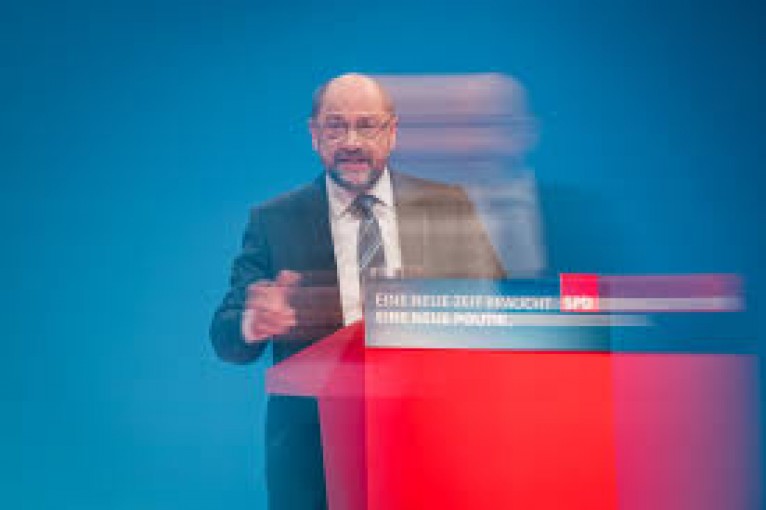
European Politics Update: the decline of the continental Social Democrat
John Bolton
- 📅Tuesday, May 1, 2018
- 🕥10:30 - 12:00
- 🏟St. Joseph's Parish Hall, Glasthule (map)
Apr
17
10:30
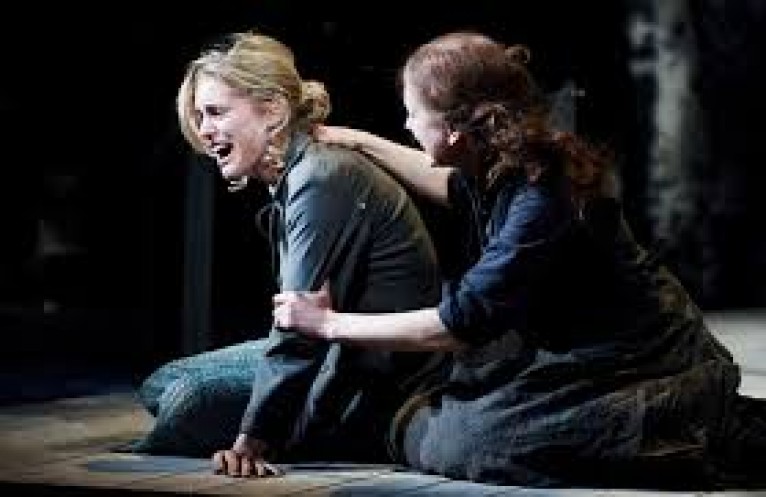
The Plough & the Stars: O'Casey & Women
Prof. Christopher Murray
- 📅Tuesday, April 17, 2018
- 🕥10:30 - 12:00
- 🏟St. Joseph's Parish Hall, Glasthule (map)
Professor Christopher Murray is an acknowledged world authority on 20th and 21st Century Irish Drama. He is co-founder of the UCD Graduate Programme in Modern Drama Studies and first Director of the UCD Drama Centre; he was also Senior Lecturer and Associate Professor in the Department of Modern English and American Literature in UCD , Chair of the Board of the Gaiety School of Acting, Editor of the Irish University Review, and more.
Prof. Murray's published works include a seminal overview of Irish dramatic writing, "Twentieth Century Irish Drama " (1997) and "The Theatre of Brian Friel " (2014). Particularly relevant to this talk is his authoritative and critical biography "Sean O'Casey" (2004).
Following his visit to DLDK last year, when he spoke so eloquently on W.B.Yeats as a playwright, the Steering Group is delighted that Christopher is returning with a talk he has titled "The Plough and the Stars: O'Casey and Women". The Plough , written in 1926, is the third of O'Casey's celebrated Dublin plays in which, characteristically, women are portrayed as strong minded, heroic figures.
This significant event in our Spring programme has been scheduled to tie in with a production of The Plough and the Stars which will be staged at the Gaiety Theatre from 24 April to 5 May.
Mar
27
10:30
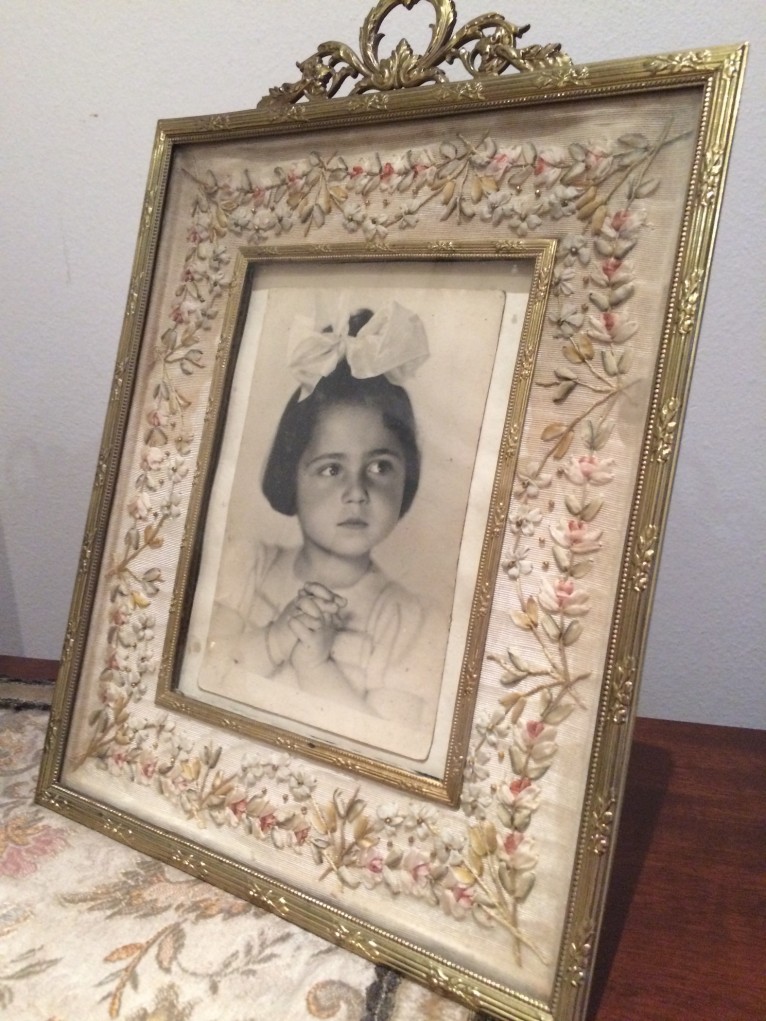
The Holocaust; a Second Generation perspective
Oliver Sears
- 📅Tuesday, March 27, 2018
- 🕥10:30 - 12:00
- 🏟St. Joseph's Parish Hall, Glasthule (map)
London born Oliver Sears, son of a Holocaust survivor, runs his fine art gallery in an elegant Georgian building in the centre of Dublin. He presents a contemporary exhibition programme including Irish and international artists. After more than twenty-five years experience as an art dealer, while making frequent visits to New York, Los Angeles, London, Paris, Basel and Miami primarily Oliver has also built his own art collection. He has lived in Ireland for over 30 years and currently lives in Dublin with his Irish wife. He is on the board of Holocaust Education Trust Ireland and is a frequent contributor to radio programmes and newspapers.
Oliver's mother, Monika Sears, is a holocaust survivor. She was born in Lodz, Poland in 1939. Her father was arrested and shot by the Nazis within a month of the German invasion. Monika & her mother Krysia went on the run in Nazi occupied Poland. They survived the Warsaw ghetto, & managed to get off a train destined for Treblinka. They made their way to London where she grew up. She has written a short book about her experience entitled 'From my war to your peace, love Nonna'. Written in the form of a letter to her first grandchild, this tale of survival tells us about a child's understanding of identity, loyalty and love, and within its historical context is an individual story for the whole of humanity.
Oliver will relate her story from a Second Generation perspective.
Mar
20
10:30
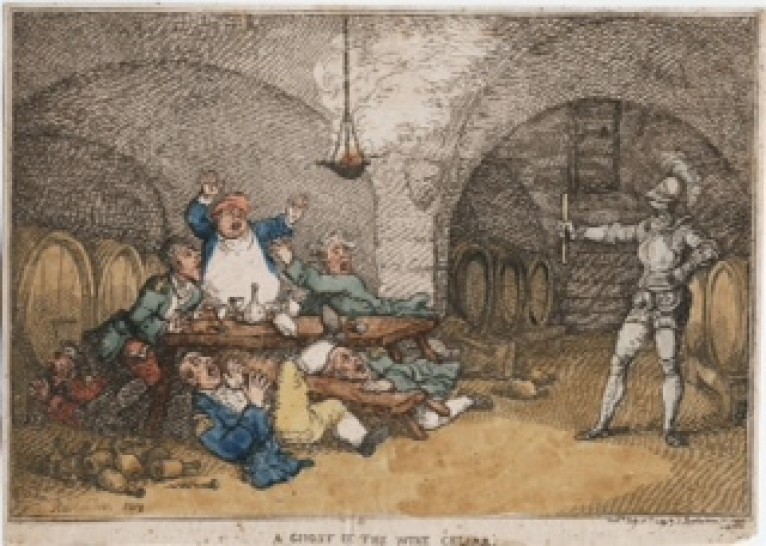
At Home, with Claret, in Georgian Ireland
Dr.Patricia McCarthy
- 📅Tuesday, March 20, 2018
- 🕥10:30 - 12:00
- 🏟St. Joseph's Parish Hall, Glasthule (map)
An architectural historian and Dalkey resident, Dr Patricia McCarthy has published widely on 18th and early 19c subjects in a number of books and in publications such as the Irish Arts Review, Country Life and Irish Architectural and Decorative Studies. She is the author of 'A favourite study': building the King's Inns (2006), co-author of Farmleigh - a history of the government guesthouse, and has contributed to two volumes of the Royal Irish Academy's Art and Architecture of Ireland (2014).
Following the publication of her book Life in the Country House in Georgian Ireland in 2016, Patricia has been looking into the vast quantities of wine, particularly claret, (which Jonathan Swift referred to as 'Irish wine') consumed by the well-heeled of Georgian Ireland, as well as the accessories used in its service - glass, silver, furniture and more.
Mar
13
10:30
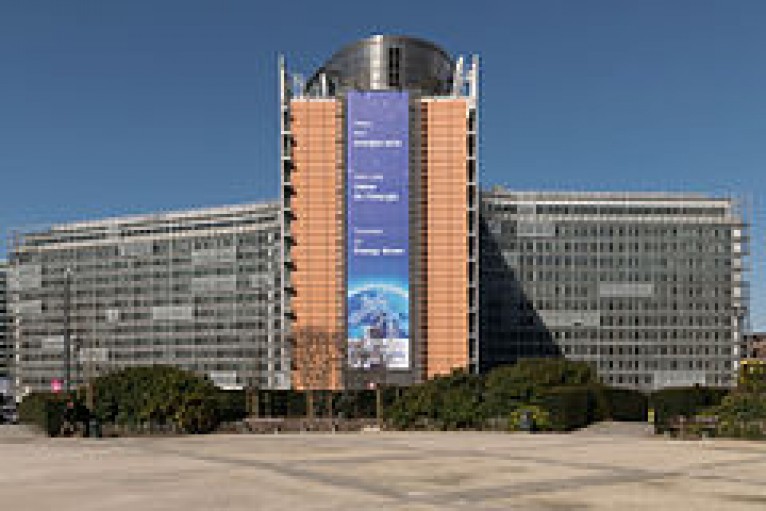
The Future of Europe - where next?
Andy Klom, Deputy Head of Representation, European Commission Representation in Ireland
- 📅Tuesday, March 13, 2018
- 🕥10:30 - 12:00
- 🏟St. Joseph's Parish Hall, Glasthule (map)
Future of Europe: join the debate!
The European Commission published a White Paper on the Future of Europe in March 2017. This White Paper set out possible paths for the Future of Europe and offered five scenarios for how the Union could evolve.The White Paper marked the start of a debate.Since then the European Commission has held Citizens' Dialogues all over Europe to discuss the ideas. These debates continue today, so that the EU has a plan to present to the people by the time the next European Parliament election takes place in June 2019. The Irish Government launched its own Citizens' Dialogues process
in November 2017 to discuss the Future of Europe, which will continue until May 2018.
https://ec.europa.eu/commission/white-paper-future-europe-reflections-and-scenarios-eu27_en
https://www.dfa.ie/our-role-policies/ireland-in-the-eu/future-of-europe/
https://ec.europa.eu/info/events/citizens-dialogues_en
Andy Klom is the Deputy Head of Representation at the European Commission Representation in Ireland (Dublin). Previously, we worked for the European Commission in Wales, Texas, the Netherlands, France, and Brussels of course. Andy has also lectured on EU affairs, including at the University of Texas in Austin, and at Cardiff University.
Mar
06
10:30
The Ice Age: Climate Change isn't new and Ireland is a good example.
Professor Peter Coxon, FTCD
- 📅Tuesday, March 6, 2018
- 🕥10:30 - 12:00
- 🏟St. Joseph's Parish Hall, Glasthule (map)
Following on Prof.John Sweeney's talk last term on Climate Change, in this lecture, Dr.Coxon will be honing in on our own backyard...
The last 2.6 million years (aka'The Ice Age') has left a fascinating and profound mark on the Irish landscape. The talk will concentrate on the dramatic evidence for climate change during the ice age and will take examples from around Ireland, in particular here in Leinster.
The talk will cover how, only 20,000 years ago, ice sheets over one kilometre thick ploughed through and moulded the landscape and how ,since then , smaller glaciers have left their traces in the Irish uplands (as recently as 11, 500 years ago) - as well as explaining why our climate has varied so much over time -and will do once again.
Professor Peter Coxon, MRIA, FTCD, School of Natural Sciences Trinity College, has been a member of the Geography Dept. In TCD since 1979. He undertook his Ph.D research in the Quaternary Department of Cambridge University. He is widely published over a range of topics and is the recipient of many awards
Feb
27
10:30
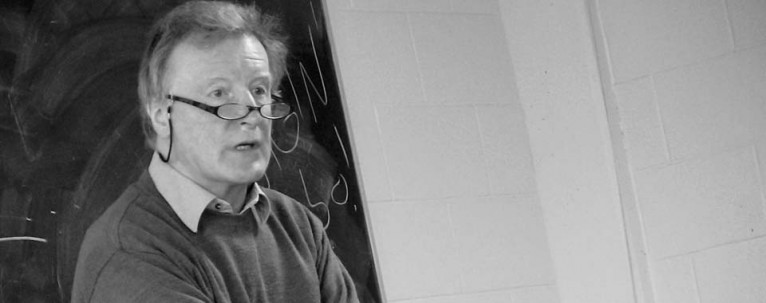
W.T.Cosgrave & Son
Dr.Michael Laffan, Professor emeritus, UCD
- 📅Tuesday, February 27, 2018
- 🕥10:30 - 12:00
- 🏟St. Joseph's Parish Hall, Glasthule (map)
Michael Laffan studied in University College Dublin, Trinity Hall Cambridge, and the Institute for European History in Mainz. He lectured briefly in the University of East Anglia in Norwich, and then, for over three decades, in UCD. He served as head of the School of History, he was president of the Irish Historical Society between 2010 and 2012, and he is now an emeritus professor.
His writings include The Partition of Ireland (1983), The Resurrection of Ireland: the Sinn Féin Party, 1916-23 (1999), and Judging W. T. Cosgrave (2014). He has also edited The Burden of German History, 1919-1945 (1988). He has lectured widely throughout Ireland and across the globe.
Feb
20
10:30
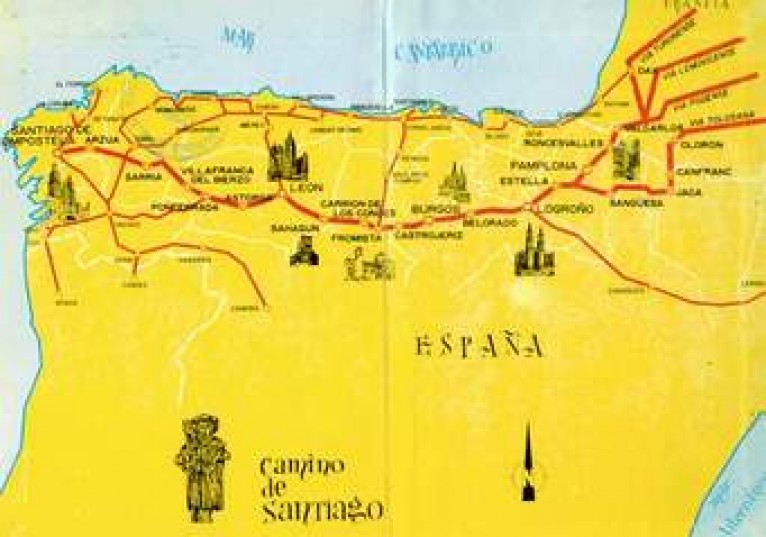
The Camino de Santiago
Turlough O'Donnell
- 📅Tuesday, February 20, 2018
- 🕥10:30 - 12:00
- 🏟St. Joseph's Parish Hall, Glasthule (map)
Turlough O'Donnell is Chair of the Camino Society Ireland CLG. He is Senior Counsel at the Irish Bar, a Mediator, and a Bencher of The Honourable Society of King's Inns. He is a past Chairman of the Bar Council of Ireland and a former member of Glencree Centre for Peace and Reconciliation. He has returned many times to walk the Camino de Santiago but his longest walk was in 2008, when he made the journey on foot of approximately 780 kilometres from Roncesvalles to Santiago
Turlough will take us on a virtual journey along one of the most famous paths in Christendom, stopping occasionally to converse about the Irish connections, e.g Red Hugh O'Donnell, Donal Cam O'Sullivan Beare. He will also explain how it was that James Michael Curley, one time Mayor of Boston, delivered the vote for Roosevelt, an interesting aside along the way.
Whether you have made it to Santiago de Compostella in North Western Spain, or even if you haven't, The Camino of St. James is an exploration not to be missed!
Feb
13
10:30
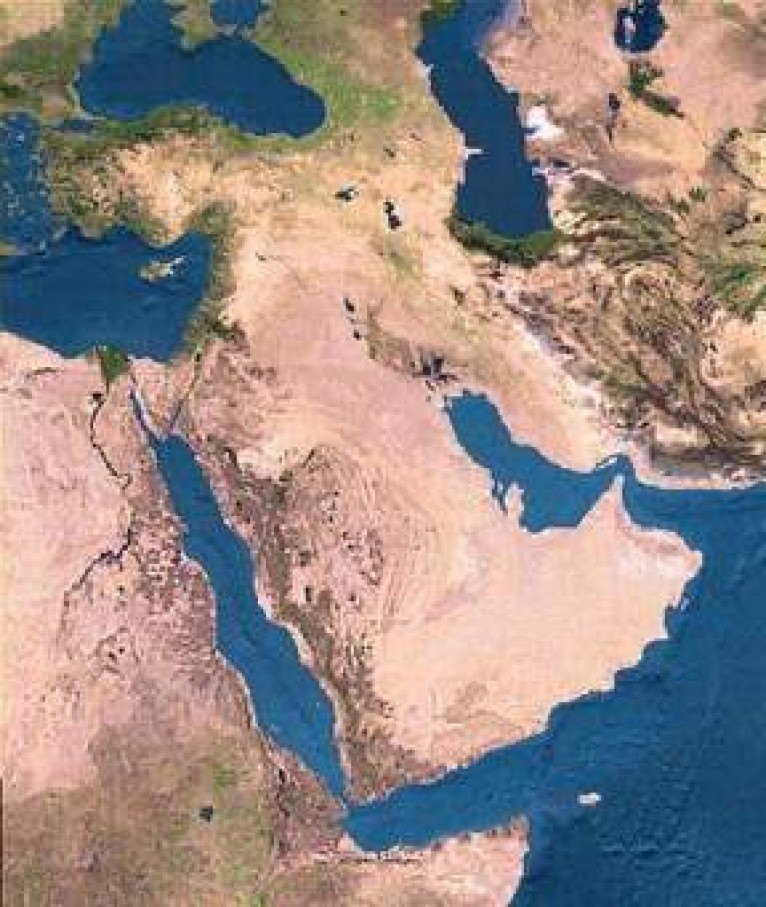
The Middle East 2: The Region and the World Today
Isolde Moylan
- 📅Tuesday, February 13, 2018
- 🕥10:30 - 12:00
- 🏟St. Joseph's Parish Hall, Glasthule (map)
With hardly a day passing without us hearing reports of troubling events taking place in the Middle East or perpetrated abroad by Middle Eastern extremists, perceptions of the region, its religion, its people and its relationship with the rest of the world are almost universally negative, with many prepared to conclude that there in a unique, unbridgeable, divide between that region and the West - an almost apocalyptic 'clash of civilizations' as some would see it.
Accepting that there are difficult issues to be addressed in the Middle East, U3A DLDK member Isolde Moylan, who was Ireland's first resident Representative to the Palestinian Authority and later Ambassador to Egypt, Syria, Jordan, Lebanon, Sudan and the Arab League, believes that external misunderstandings, misinformation, misguided policies and meddling in relation to the Middle East have served to exacerbate fault-lines in the region, its relations with the outside world, and international perceptions of it, whilst advocating that better knowledge and understanding of the region can serve to reduce divisions, tensions and dangers. Following up on her previous introductory talk on region - its lands, people, language, history, religion and culture -, Isolde will focus in her second talk on key aspects of the Middle East today, including its social issues and religion; its resources and economies; government and politics; conflict, extremism and terrorism; its power-dynamics and relations within the region and, crucially, its interaction with the outside world, including migration.
Feb
06
10:30
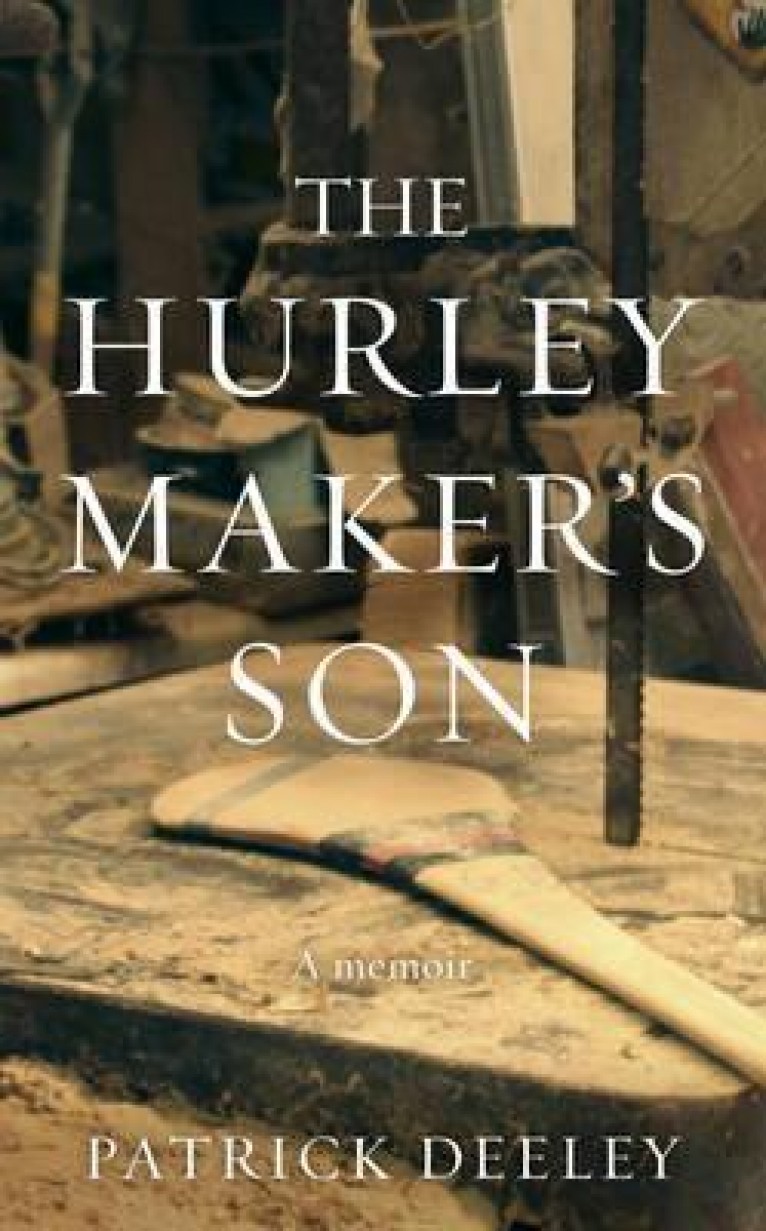
Patrick Deeley, Poet & Author
- 📅Tuesday, February 6, 2018
- 🕥10:30 - 12:00
- 🏟St. Joseph's Parish Hall, Glasthule (map)
Patrick Deeley is a published, contemporary poet, memoirist and children's writer.
His best-selling, critically acclaimed memoir, The Hurley Maker's Son, published in 2016, was shortlisted for the Bord Gais Book of the Year Awards.
His books for children, published by O'Brien Press, include The Lost Orchard, winner of The Bisto Book Award and The Eilis Dillon Book of the Year Award.
He has published six collections of poetry. His poems have also featured in leading literary journals in Ireland and been published in the USA, UK and Canada as well as in translation to French, Italian, and other languages. His poem 'Woodman' was chosen as one of Ireland's hundred favourite poems following a survey by The Irish Times.
Patrick was born near Loughrea, County Galway.
He is a full-time writer, having taken early retirement from his post as administrative principal of a primary school in Ballyfermot, Dublin in 2012. He was a member of the Council of Poetry Ireland from 1984 to 1989.
Jan
30
10:30
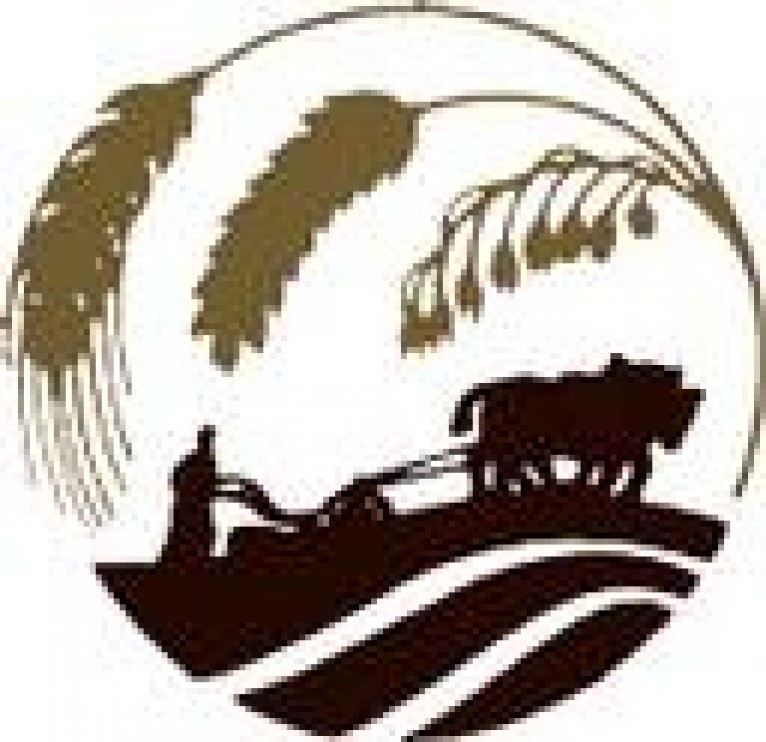
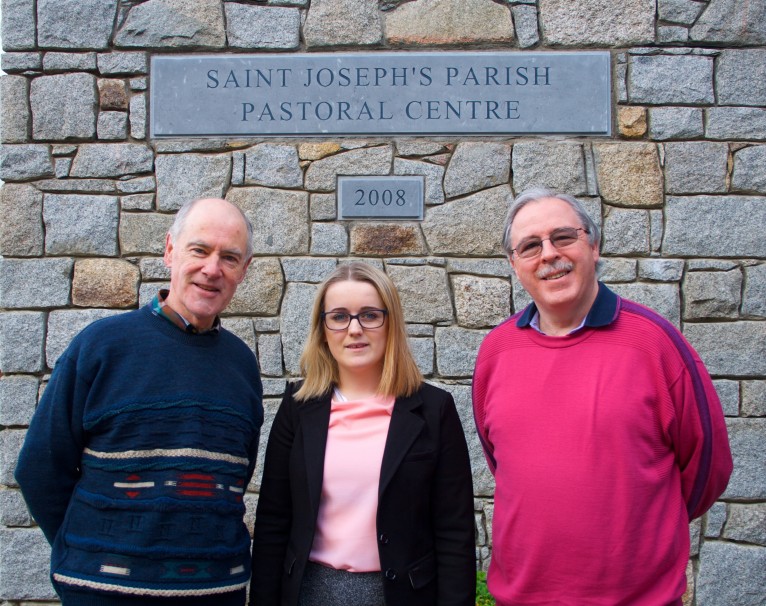
The future for Irish Farming & its environmental impact
A Macra na Feirme representative
- 📅Tuesday, January 30, 2018
- 🕥10:30 - 12:00
- 🏟St. Joseph's Parish Hall, Glasthule (map)
One of our members pointed out at our first AGM that we had been focused on urban lifestyle topics.
We have been fortunate, therefore, that the Irish Young Farmers Association, Macra na Feirme, has accepted our invitation to participate in a panel discussion in our ALTERNATE TUESDAYS Current Affairs series on this important topic.
Jan
23
10:30
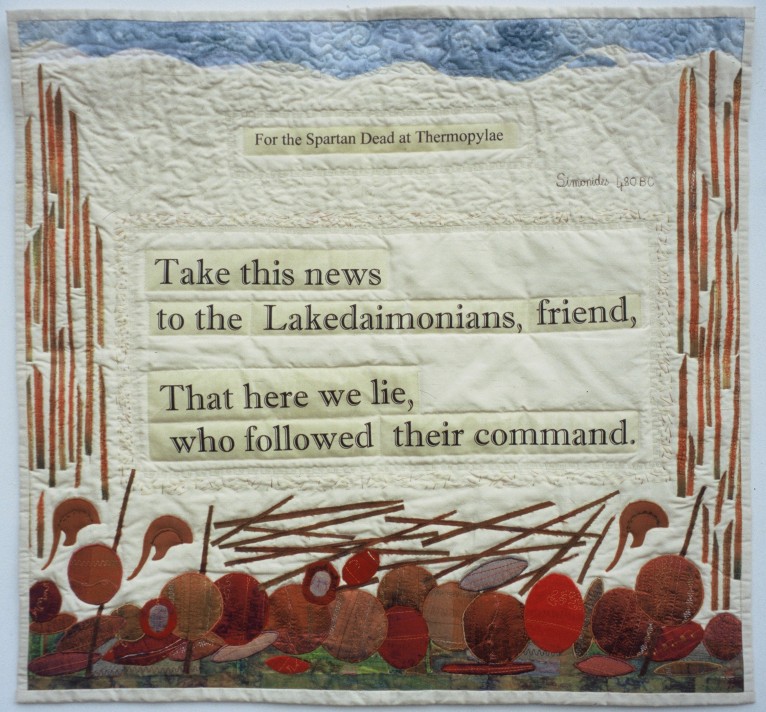
Art, Texts & Textiles
Ann Fleeton
- 📅Tuesday, January 23, 2018
- 🕥10:30 - 12:00
- 🏟St. Joseph's Parish Hall, Glasthule (map)
Ann Fleeton is a textile maker and a TCD graduate in Geology.
Her work has been included in major European quilt exhibitions such as European Art Quilts in the Netherlands and the European Quilt Triennial, Heidelberg, Germany. She has also exhibited in 'Artextures' in France, the USA, Japan and New Zealand.
Ann's narrative quilts are pieces based on artists' writings, poetry, exploration and themes of current interest. The talk will include slides and samples of her work. Her interest in Natural Sciences and her study of art history in Dublin and at the Courtauld Institute in London influence both the colour and texture of her work.
Jan
16
10:30
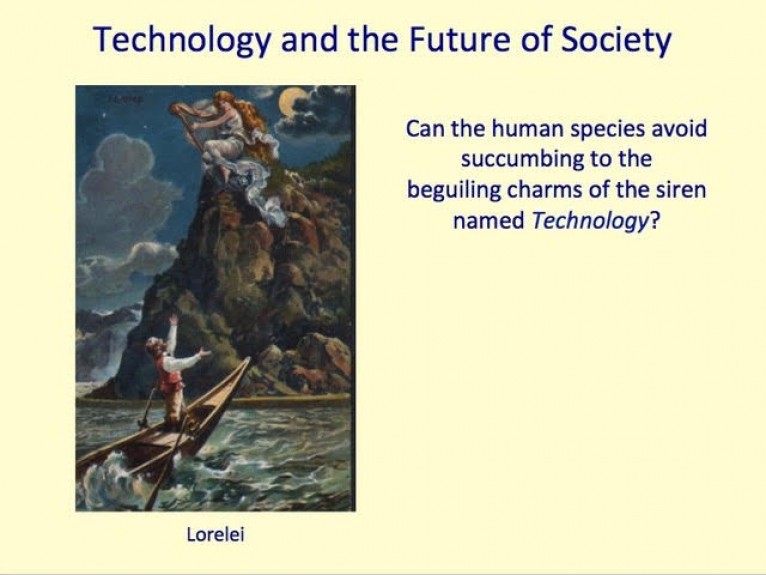
Technology & the Future of Society
David Algeo
- 📅Tuesday, January 16, 2018
- 🕥10:30 - 12:00
- 🏟St. Joseph's Parish Hall, Glasthule (map)
David is passionately interested in the consequences of our love of technology for the future of society with a particular emphasis on our use of the very broad range of technologies that have emerged since the beginning of the industrial revolution.
Just a few examples of the questions David raises in this context and which he will attempt to address:
- Are the odds no better than fifty-fifty that our present civilisation will survive to the end of the present century without a serious setback? Or have we only 60 harvests remaining?
- Will 35% of current jobs be automated by 2035?
Are Planet Earth's political systems capable of responding to these threats in a timely manner?
- With the human population forecast to reach almost 10 billion by 2050, can we paint an optimistic word picture of social life at that time?
David studied engineering and computer science at TCD. He graduated in 1968 with an M.Sc in Computer Science. His early career included working with English Electric Computers, TCD and CIE. He then spent twenty years with Price Waterhouse including ten years as a partner in the management consulting division. Finally he returned to TCD as a senior lecturer in Computer Science.
This will be our first ALTERNATE TUESDAYS Current Affairs series discussion in 2018
Jan
09
10:30
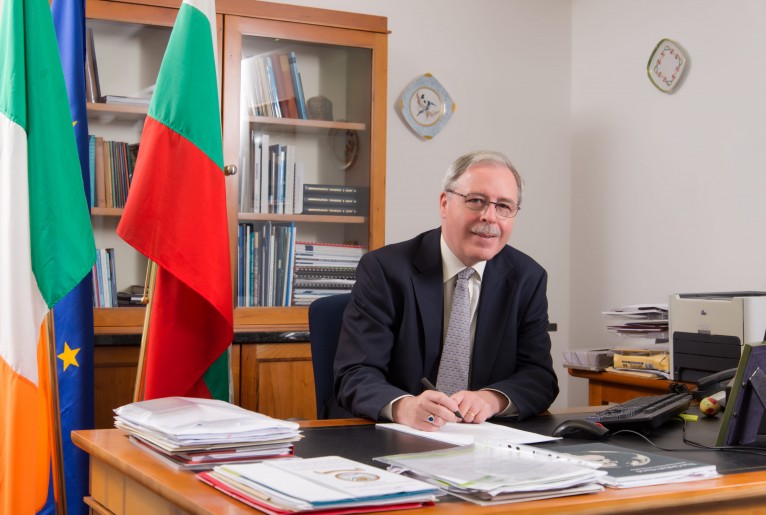
Bulgaria, Past, Present, Future
John Biggar, Ambassador, retd.
- 📅Tuesday, January 9, 2018
- 🕥10:30 - 12:00
- 🏟St. Joseph's Parish Hall, Glasthule (map)
Bulgaria will hold its first Presidency of the EU from January to June 2018. Many Bulgarians know little about the EU, but sadly most of the EU know even less about this ancient and intriguing country.
John will talk about the past and present of Bulgaria, and throw an eye towards its future, drawing in part on the two years he spent as Irish Ambassador in Sofia
Nov
28
10:30
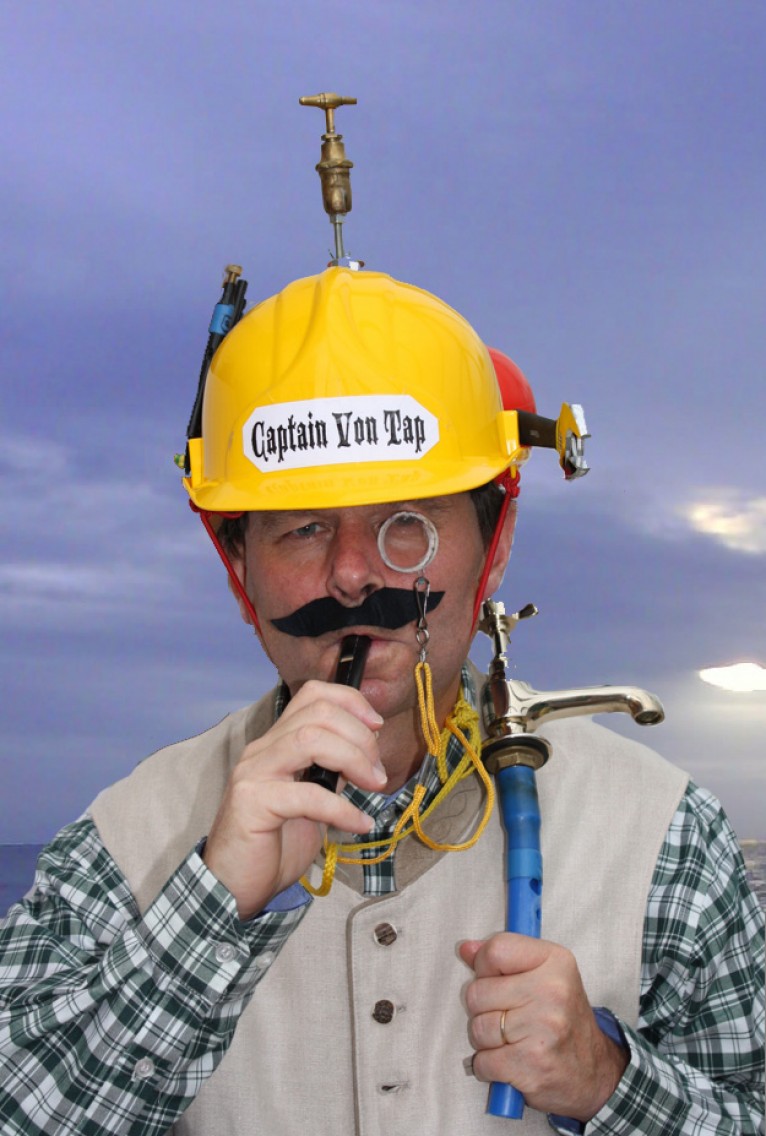
Handling Händel!
Gordon Douglas
- 📅Tuesday, November 28, 2017
- 🕥10:30 - 12:00
- 🏟St. Joseph's Parish Hall, Glasthule (map)
Gordon Douglas, graduated from TCD in 1980 with the 'new' single honours degree in 'straight' music. However, nothing has been quite straight about his career since then! Apart from studying the organ during his degree course, he went on to complete his H. Dip. Ed. in 1981 with a dissertation on 'The Making of Simple Musical Instruments and its contribution to Music Education'.
This subject was not some idle postgraduate exercise, but the beginning of lifelong active educational pursuit which has travelled to over 50-plus primary schools and community arts centres since 1998. This hands-on creative project, called the 'The Plumber's Guide to World Music' also lead him on, in the year 2000, to taking part in in the Irish contribution to 'Physics on Stage' in Cern, Geneva, where the physics of sound was explored in front of an audience of enthusiastic scientists!
Around the same time, Gordon started up his own independent classes in musical appreciation for adults entitled 'Know Your Composer' which was advertised in the Irish Times. The classes were received with great enthusiasm, especially his once-off 'Mahler Marathon' which outstripped even the longest of Mahler's symphonies, serving Mahler's favourite Viennese 'Shale' coffee at a well- earned interval!
Throughout all this, Gordon has taught 'straight music' (mainly piano, musicianship and music theory) to a diverse range of students, all age groups and backgrounds. Currently, today, he is teaching over 50-plus 1:1 pupils between St Andrews College Junior School and his home teaching studio in Killiney.
Gordon maintains that he is no expert or scholar when it comes to Händel, or indeed any composer; the music world is already full of such people! However, with an individual, novel approach to the subject, he does hope to capture a little flavour of Händel, the 'man of passion' behind the music; and to explore what made his music so appealing to audiences throughout the ages.
Nov
21
10:30
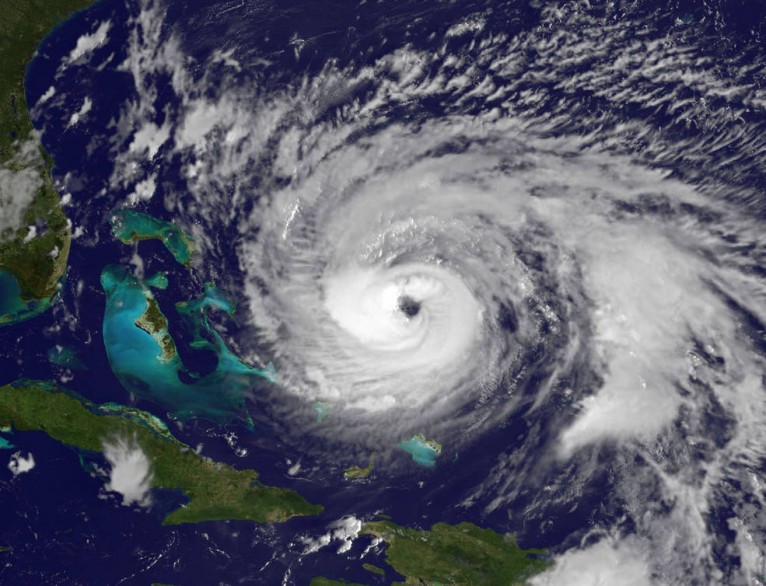
Hurricanes & Earthquakes
Dr. Chris Stillman
- 📅Tuesday, November 21, 2017
- 🕥10:30 - 12:00
- 🏟St. Joseph's Parish Hall, Glasthule (map)
Chris Stillman, U3A member, is Associate Professor of Geology and Fellow Emeritus of Trinity College Dublin
These natural disasters are currently very much in mind because of the recent events in the Caribbean, Central and Eastern America. Both are manifestions of the violent release of energy stored in the body and atmosphere the Earth. This talk will briefly describe the effects and attempt to explain the mechanism and source of this energy release.
Nov
14
10:30
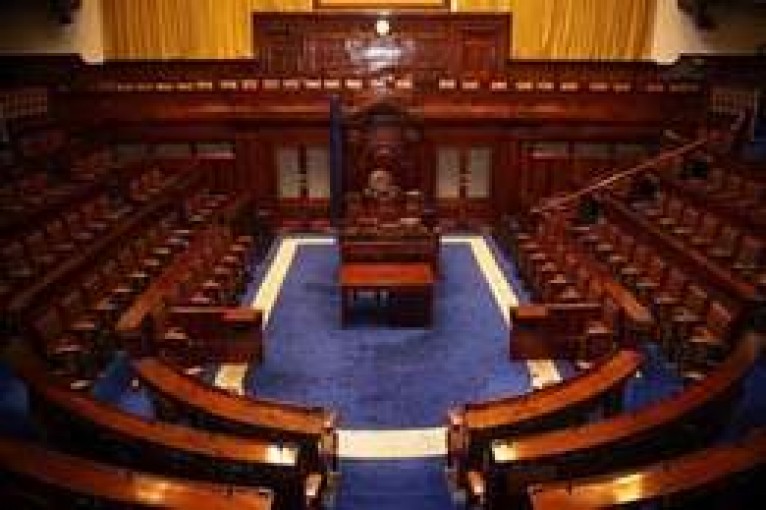
Palestine, part 2
Jim Carroll, member, facilitator Alt Tues Current Affairs
- 📅Tuesday, November 14, 2017
- 🕥10:30 - 12:00
- 🏟St. Joseph's Parish Hall, Glasthule (map)
Nov
07
10:30
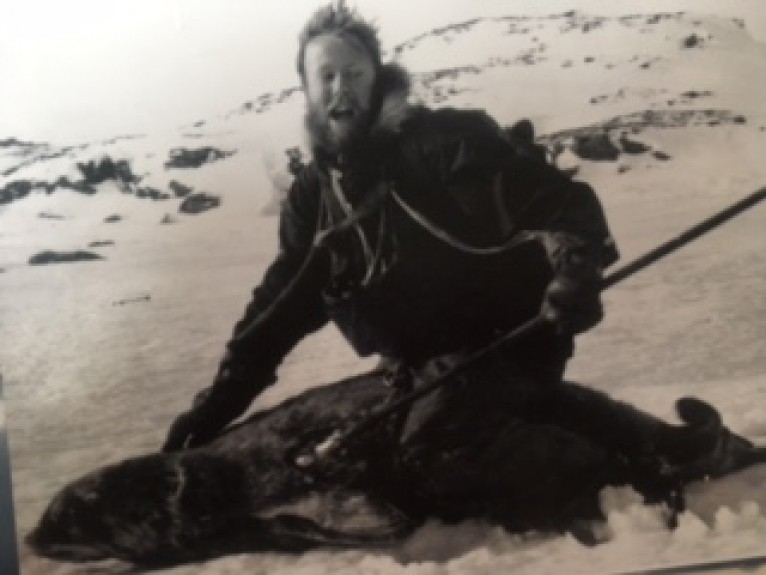
Antarctica
Fergus O'Gorman
- 📅Tuesday, November 7, 2017
- 🕥10:30 - 12:00
- 🏟St. Joseph's Parish Hall, Glasthule (map)
Fergus is one of Ireland's foremost experts on the Antarctic, having both worked there and visited this unique and precious part of our planet on many occasions.
Oct
31
10:30
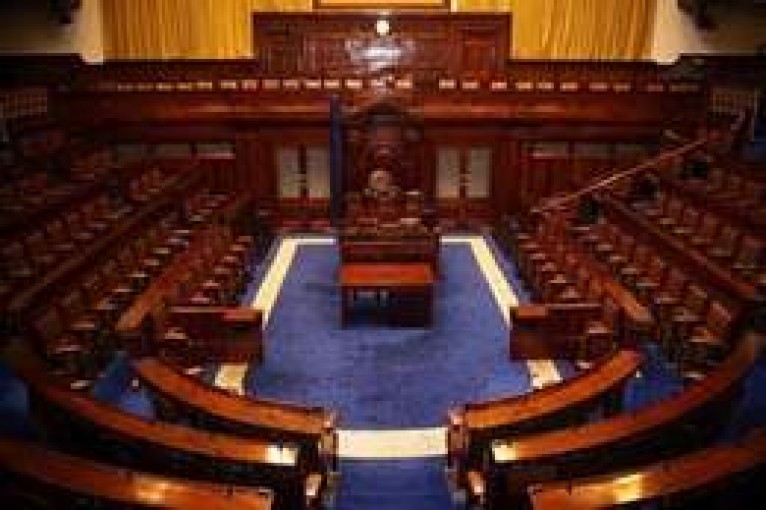
PALESTINE, past, present & future
Jim Carroll, member, facilitator Alternate Tuesdays Current Affairs
- 📅Tuesday, October 31, 2017
- 🕥10:30 - 12:00
- 🏟St. Joseph's Parish Hall, Glasthule (map)
Oct
24
10:30
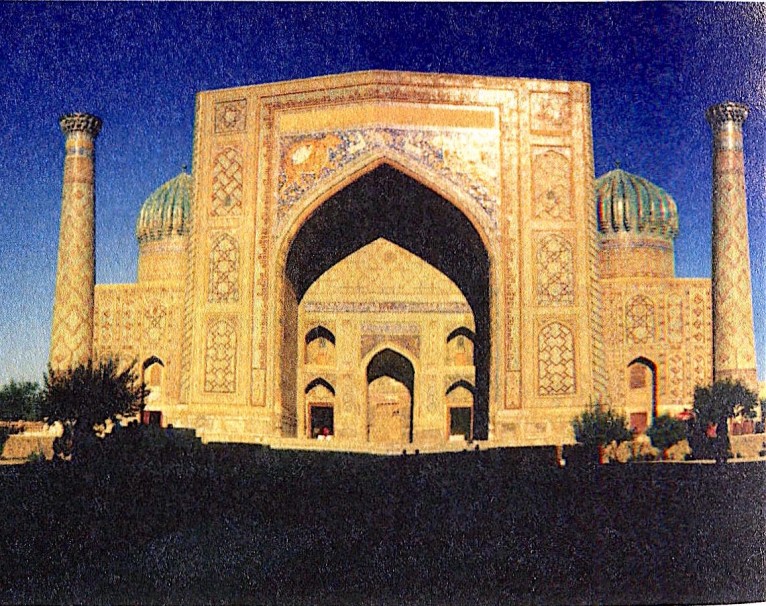
The Silk Road
Diana Gleadhill
- 📅Tuesday, October 24, 2017
- 🕥10:30 - 12:00
- 🏟St. Joseph's Parish Hall, Glasthule (map)
Diane Gleadhill lives near the shore of Strangford Lough, and worked as a professional librarian before becoming a graphic artist. Much of her leisure time has been spent in walking with her life-time friend Elise Coburn. Her natural curiosity and sense of adventure has taken her to such diverse destinations as Kenya, Papua New Guinea, South America, Central Asia and the Kamchatka Peninsula.
In 1998 Diana Gleadhill with her friend and travel companion Elize Coburn travelled by local transport and foot with local guides up the Karakorum Highway through the Himalayan passes of Northern Pakistan and China to Uzbekstan and the famous Silk Road cities of Tashkent, Bukhara and Samarkand.
They returned to Central Asia in 2009 and continued their exploration through Turkmenistan's Karakorum Desert and Tajikistan, again part of the Silk Road, meeting and talking with the local inhabitants of these "Stans" now freed from the Soviet Union and recovering their own identities. They also took time to seek out the famous Akhal Teke breed of horses. Diana will speak of the scenery, the people, their culture and political aspirations, and describe some of the fascinating remnants of the Silk Road.
Oct
17
10:30
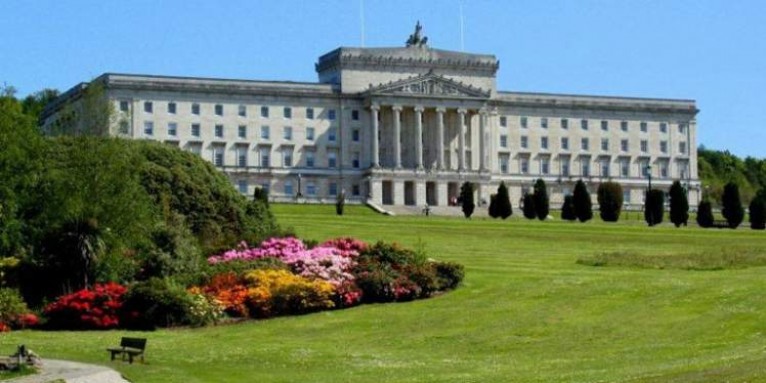
Northern Ireland in Europe?
Ian Parsley
- 📅Tuesday, October 17, 2017
- 🕥10:30 - 12:00
- 🏟St. Joseph's Parish Hall, Glasthule (map)
Ian James Parsley is Chair of the European Movement in Northern Ireland and an EM UK Council member. Ian is one of the North's foremost political commentators.
Ian will explore the consequences of Brexit on the future place of Northern Ireland in Europe.
Ian is travelling from Belfast especially for this presentation.
Oct
10
10:30
GETTING TO THE BOTTOM OF HOLY WELLS
Dr.Bruce Misstear.
- 📅Tuesday, October 10, 2017
- 🕥10:30 - 12:00
- 🏟St. Joseph's Parish Hall, Glasthule (map)
Ireland is fortunate in that the climate, landform and geology provide adequate shallow groundwater across the whole country. Many of these have reputations as Holy Wells, with associated characteristics and rituals.
This is in contrast to other parts of the world where deep drilled boreholes and infiltration galleries are needed. This lecture will also address the construction, water sharing and protection of some of the latter which appear on the UNESCO list of World Heritage Sites.
Professor Bruce Misstear teaches hydro geology at Trinity College,Dublin, where he is a Fellow of the College. His published works include Water, Wells and Boreholes now in 2nd edition. Currently he is researching the hydrogeology of Irish Holy Wells , but he has worked widely in consultancy over groundwater projects in Africa, the Middle East and Asia
Oct
03
10:30
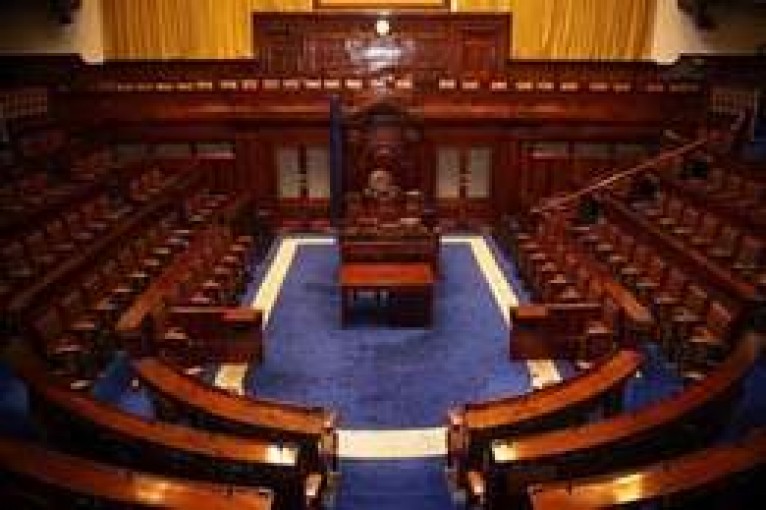
BREXIT: Deal or No Deal?
Dónal Denham, member, facilitator Alternate Tuesdays Current Affairs
- 📅Tuesday, October 3, 2017
- 🕥10:30 - 12:00
- 🏟St. Joseph's Parish Hall, Glasthule (map)
Sep
26
10:30
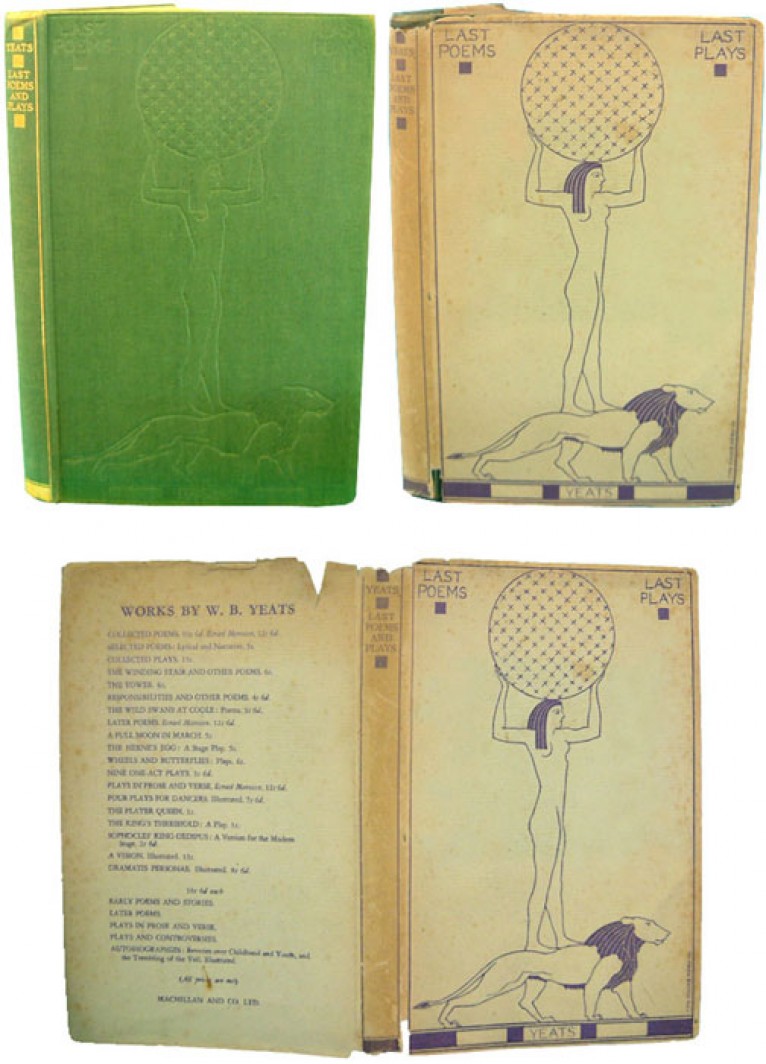
Yeats & the Irish theatre scene
Prof. Chris Murray
- 📅Tuesday, September 26, 2017
- 🕥10:30 - 12:00
- 🏟St. Joseph's Parish Hall, Glasthule (map)
Yeats is far better known as poet than as playwright, Yet when accepting the Nobel Prize for Literature he chose "The Irish Dramatic Movement" as the subject of his address. He emphasised the energy which resulted from the collaborative efforts of Lady Gregory, Edward Martyn, George Moore and J.M. Synge in firing his own imagination and absorbing his life as dramatist and general manager of the Abbey Theatre. Yeats wrote 28 plays, mostly short, intense and written in verse form.
To illustrate this talk on Yeats's approach to dramatic writing, Professor Murray has selected three plays written at different stages in Yeats' life. Deirdre (1906). The Dreaming of the Bones (1921). And Purgatory (1938). This last play was performed just six months before he died.
Through an exploration of these works, Professor Murray will show how close Yeats was to modern concepts of theatre, performance and staging , while also illustrating the originality he showed in his use of myth and poetry on the modern stage.
Born in Galway, Christopher Murray joined the Department of Modern English and American Literature at UCD in 1970 and became Senior Lecturer and Associate Professor in the Dept of Modern English and American Literature. He was editor of the Irish University Review for eleven years and is currently Chair of the Board of the Gaiety School of Acting in Dublin.
Professor Murray is a world authority on Twentieth and Twenty first Century Irish drama: Author of many articles and chapters, significantly, he has written an authoritative biography of Sean O Casey (2004) and several books on the life and work of Brian Friel...notably The Theatre of Brian Friel (2014) and Brian Friel:Tradition and Modernity (2014)
Sep
19
10:30
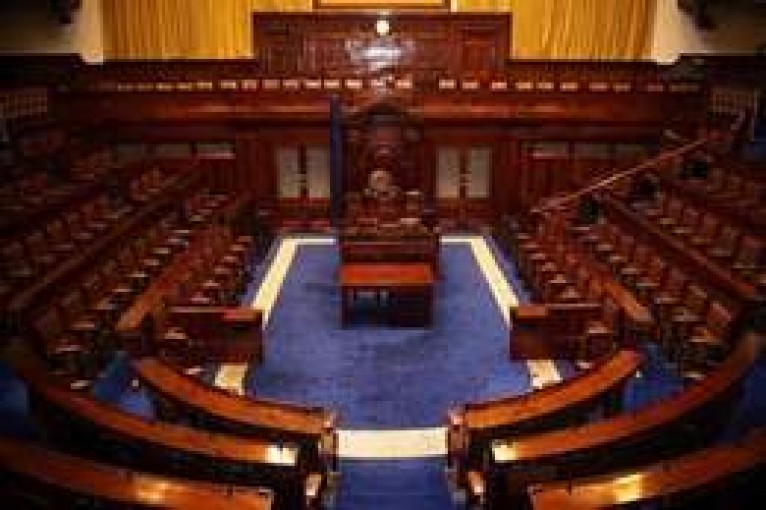
Terrorism
John Biggar, member, facilitator, Alternate Tuesdays Current Affairs
- 📅Tuesday, September 19, 2017
- 🕥10:30 - 12:00
- 🏟St. Joseph's Parish Hall, Glasthule (map)
- 🔗http://www.u3adldk.ie/photos_events/Terrorism for website.pdf
Starting on this Tuesday 19 September, we will facilitate a regular, peer-led "Alternate Tuesdays" discussion group on Current, mainly International Affairs topics open to all interested DLDK members, as an additional element to our programme curriculum.
Sep
05
10:30
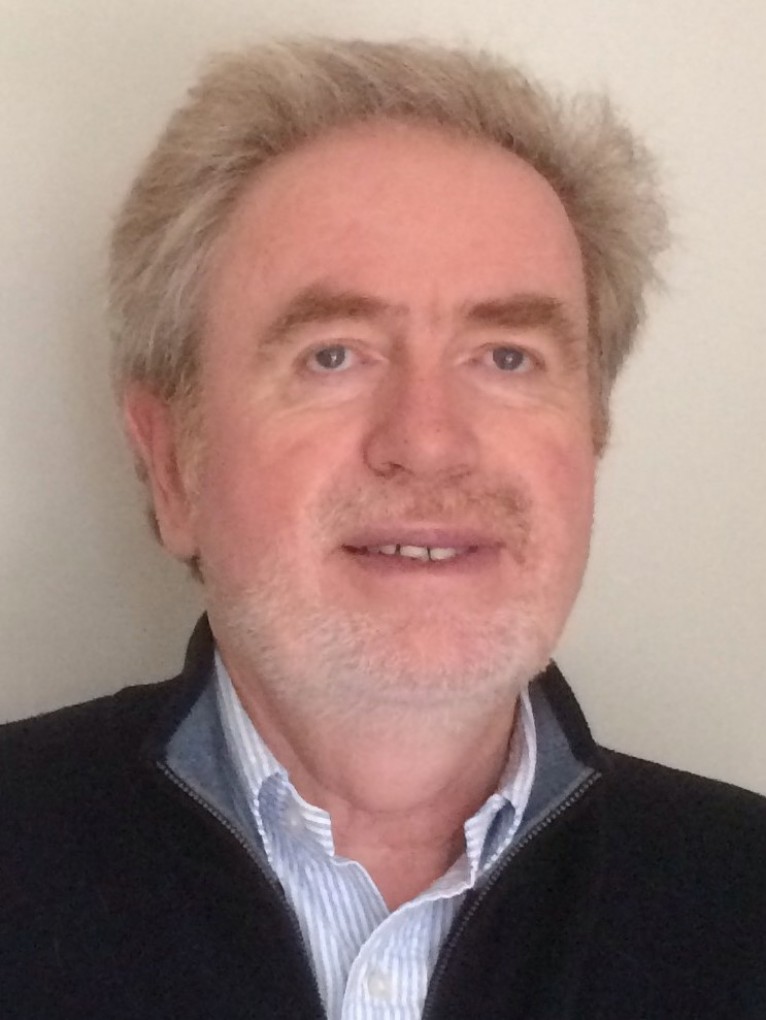
Eradicating World Hunger
Fintan Scanlan
- 📅Tuesday, September 5, 2017
- 🕥10:30 - 12:00
- 🏟St. Joseph's Parish Hall, Glasthule (map)
As the time horizon of 2030 and the target of eradicating world hunger under the UN's Sustainable Development Goal 2 draws ever closer, there will be an increasing focus in addressing food insecurity at both the household and national levels, worldwide.
This challenge becomes ever more daunting in the face of climate change, energy demands for biofuels, food price volatility in the market place and growing inequality.
Fintan is an Agronomist with extensive overseas experience, including:
• A comprehensive understanding of Overseas Development Assistance having worked directly at the multilateral (FAO), bilateral (Irish) and NGO (Gorta) levels with frequent exposure to governments, international stakeholders through several field missions as mission leader to East Africa, Asia and the Pacific.
• Sixteen years of crop production experience covering a wide spectrum of crops: temperate, tropical and sub-tropical fruit, vegetables, field crops and cut-flowers; under ecological conditions ranging from the semi-arid climate of Baluchistan (Western Pakistan), humid climate and deltas of Bangladesh, temperate conditions and mountainous topography of Lesotho, to the tropical and sub-tropical climates of East and Southern Africa.
• Wide experience in the fields of agricultural research and development; agricultural extension and training; agricultural education; and in the design, management and administration of national and regional programmes for food security including South South Cooperation (SSC) in Asia/Pacific Region.
Aug
22
10:30
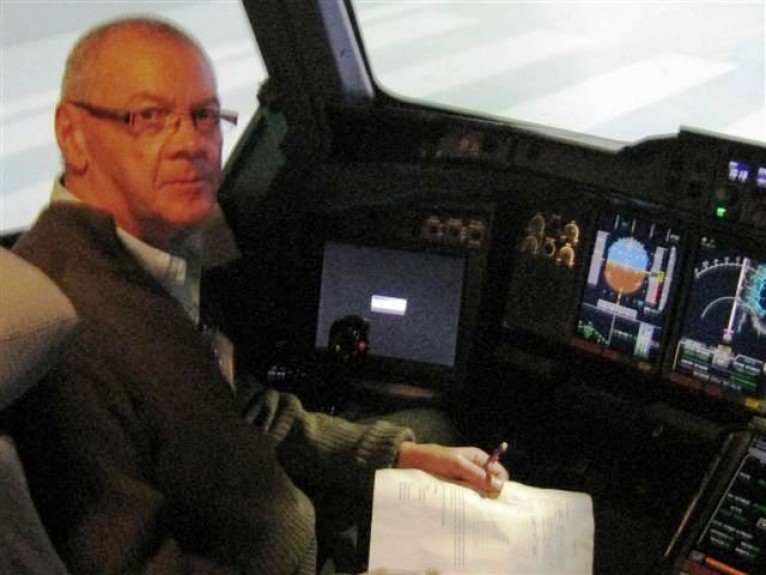
Air Traffic Control: all you need to know and were too terrified to ask...
Paul Humphreys
- 📅Tuesday, August 22, 2017
- 🕥10:30 - 12:00
- 🏟St. Joseph's Parish Hall, Glasthule (map)
An introduction to Air Traffic Control by a veteran controller.
Paul Humphreys joined the Air Traffic Control Service in 1970. He initially spent two years in Cork airport before returning to his native Dublin, where he became a fully qualified controller over the following years.
In 1988, Paul went to work for Eurocontrol at its research facility just south of Paris.
He spent the following 24 years working on national and pan-European research projects such as:
- assessing the impact of new systems and airspace re-organisation on controllers' workload;
- safety assessment of new 'technology-driven' developments such as satellite navigation; and
- increasing airport capacity - specifically increasing the number of aircraft that can land or take-off from a runway in a given time.
Aug
08
10:30
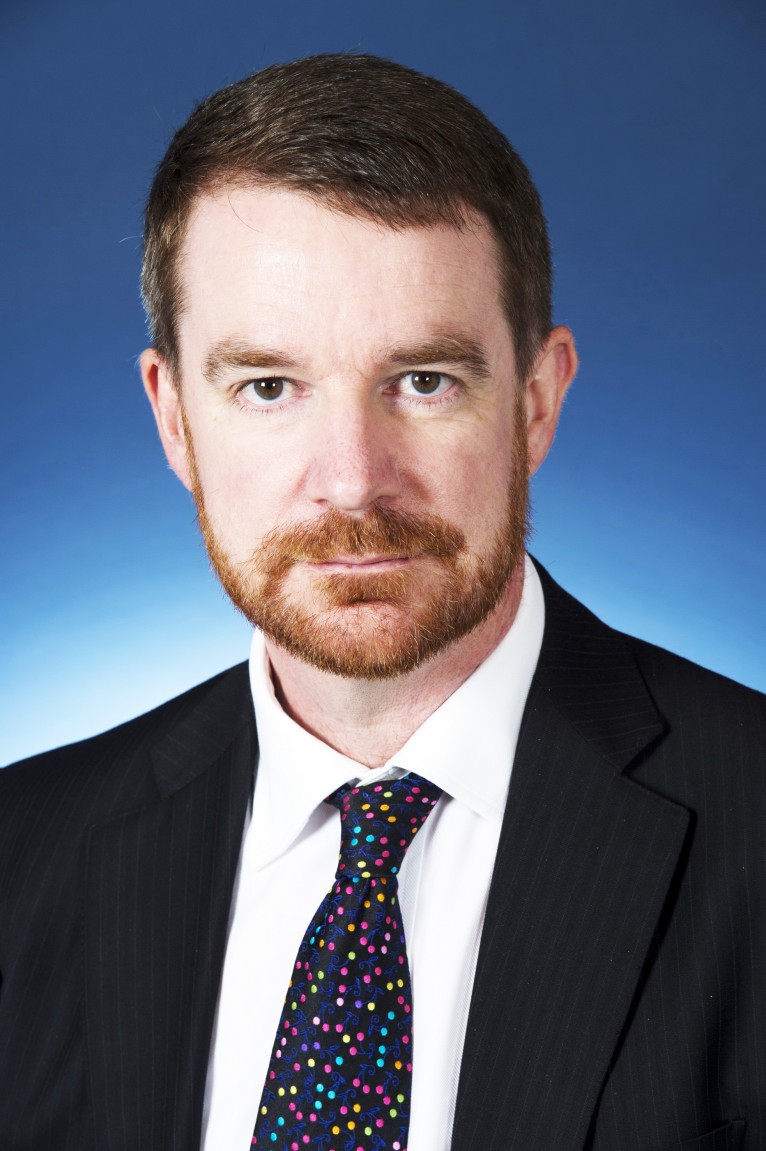
Australia & Ireland: we are family
H.E.Ambassador of Australia, Richard Andrews
- 📅Tuesday, August 8, 2017
- 🕥10:30 - 12:00
- 🏟St. Joseph's Parish Hall, Glasthule (map)
Ambassador Andrews is a senior career officer in the Department of Foreign Affairs and Trade and has previously served overseas as Minister (Political), Australian Embassy, Tokyo and as Counsellor, Australian High Commission, London. He had earlier postings in Tokyo and Kuala Lumpur.
In Canberra, Ambassador Andrews was most recently Assistant Secretary, Mainland South-East Asia Bilateral Branch, and has previously served in the G20 Taskforce, Department of the Prime Minister and Cabinet and as Executive Director, Economic Analytical Unit, DFAT.
Ambassador Andrews will talk on the close links between Ireland & Australia, both historic and current, and looks forward to answering questions on Australia Today.
Jul
25
10:30
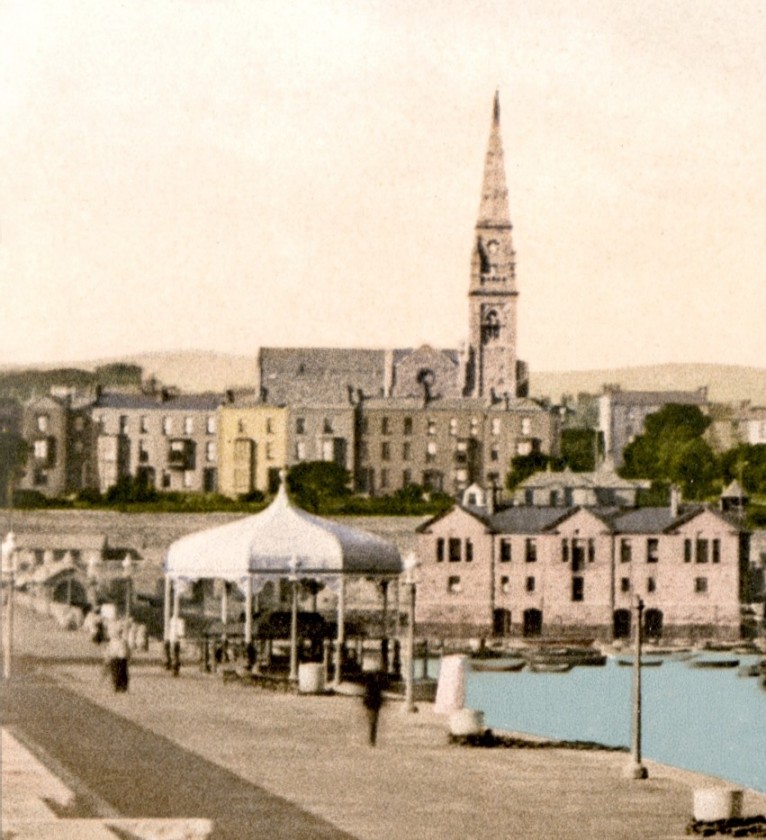
Of Sea & Stone:an artist's view of Dun laoghaire
Peter Pearson
- 📅Tuesday, July 25, 2017
- 🕥10:30 - 12:00
- 🏟St. Joseph's Parish Hall, Glasthule (map)
Following on our Harbour's history from Capt.Needham, Peter Pearson will speak on a more general history of our area, and its future perspective.
Peter Pearson is a noted artist, historian and conservationist with a lifelong commitment to the protection and enhancement of Ireland's architectural heritage including Dun Laoghaire Harbour, of which he has made many paintings over more than 40 years.
Jul
11
10:30

Dun Laoghaire Harbour Bicentennial Talk
Captain Richard Needham ,Harbour Master, retd.
- 📅Tuesday, July 11, 2017
- 🕥10:30 - 12:00
- 🏟St. Joseph's Parish Hall, Glasthule (map)
Ships Captain, Richard Needham, a former Harbour Master of Dun Laoghaire will speak on " Celebrating 200 years of Dun Laoghaire as a harbour of refuge and looking to its future."
Jun
27
10:30
Trump Six Months On
Dr Donal Donovan
- 📅Tuesday, June 27, 2017
- 🕥10:30 - 12:00
- 🏟St. Joseph's Parish Hall, Glasthule (map)
Dr Donovan, ex IMF senior official and financial commentator, long-time resident of Washington DC, will give us his take on the first six months of the Trump Administration in office.
Donal graduated with a BA from TCD and a PhD in Economics from the University of British Columba Canada. His career started in the International Monetary Fund where he retired as Deputy Director. He is adjunct professor at the University of Limerick and visiting lecturer at TCD and the University of Maryland. He is co-author of The Fall of the Celtic Tiger :- Ireland and the euro Debt crisis. (2014 Oxford).
Jun
20
10:30
20thCentury Irish Artists in London
Jessica Fahy
- 📅Tuesday, June 20, 2017
- 🕥10:30 - 12:00
- 🏟St. Joseph's Parish Hall, Glasthule (map)
- 🔗http://www.jessicafahyarthistorian.com
This lecture will explore the lives and work of the many Irish artist that moved to London in the 20th century including Mary Swanzy, Gerard Dillon and Francis Bacon. The various cultural, economic and religious factors for this move will be discussed as well as detailed analysis of the artworks.
Bio
Jessica Fahy a freelance art historian who has been teaching and researching European Art History for over ten years. She teaches art history courses for UCD Access & Lifelong Learning, the National Gallery of Ireland's Community Outreach Programme as well as other lectures and talks for the gallery and she is on the panel of lecturers for the Hugh Lane Gallery. Jessica also runs her own courses, leads art history tours and trips and gives talks for both public and private events. Jessica has a MLitt in Art History from UCD where she also received her undergraduate degree with English as her joint major. She completed her MA in Italian Renaissance Art at the Courtauld Institute of Art in London in 2007.
Jun
13
10:30
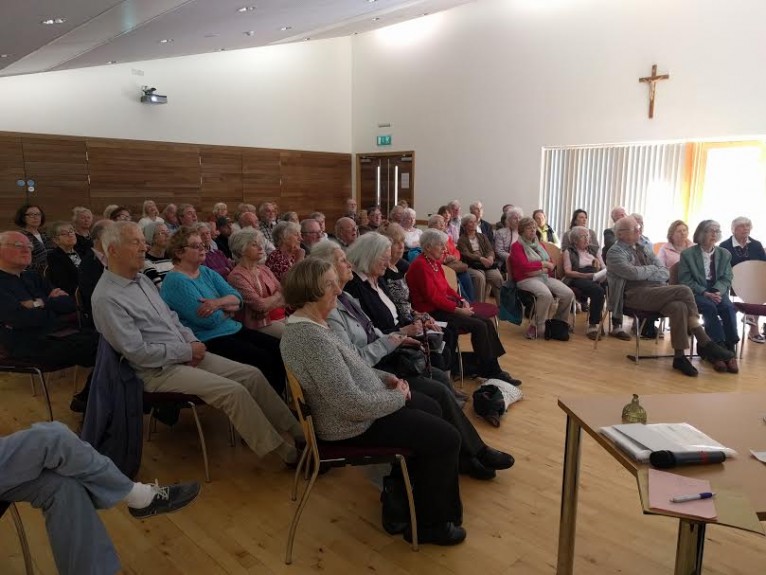
Our first AGM
AGM
- 📅Tuesday, June 13, 2017
- 🕥10:30 - 12:00
- 🏟St. Joseph's Parish Hall, Glasthule (map)
- 🔗http://www.u3adldk.ie
Chairman's Report, Secretary's Report, Treasurer's Report, Membership Secretary, Appointment of Officers for 2017-2018, Adoption of our Constitution, Discussion of future programme options etc. and the all important AOB! And we will formally launch this website.
May
23
10:30
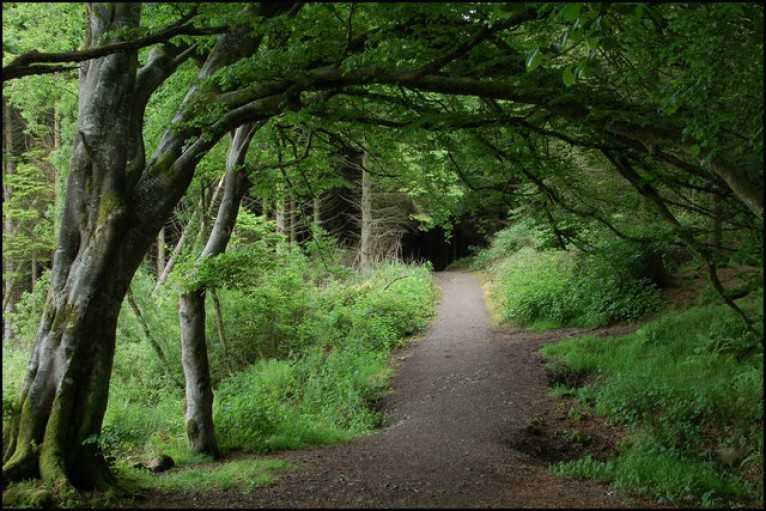
Climate Change Challenges
Prof.John Sweeney
- 📅Tuesday, May 23, 2017
- 🕥10:30 - 12:00
- 🏟St. Joseph's Parish Hall, Glasthule (map)
- 🔗https://www.maynoothuniversity.ie/icarus/our-people/john-sweeney
Climate change is the defining problem for today's and tomorrow's generation.
This talk will examine the global dimensions of the problem, focussing on the likely impacts for Ireland, some of which are already becoming evident.
What many threats and few opportunities will climate change have over the next few decades and how will Irish society need to evolve to cope with them?
The talk will also examine the policy response both at European and Irish levels in the light of the current scientific evidence available and the background to the Paris Agreement.
May
09
10:30
Forests, Health & Wellbeing
- 📅Tuesday, May 9, 2017
- 🕥10:30 - 12:00
- 🏟St. Joseph's Parish Hall, Glasthule (map)
Dr.McAree is one of Ireland's most distinguished contemporary foresters. His talk introduced us to Ecotheraphy. As a follow-up, we intend to arrange a forest walk later this summer with Dr.McAree as our guide.
Apr
25
10:30
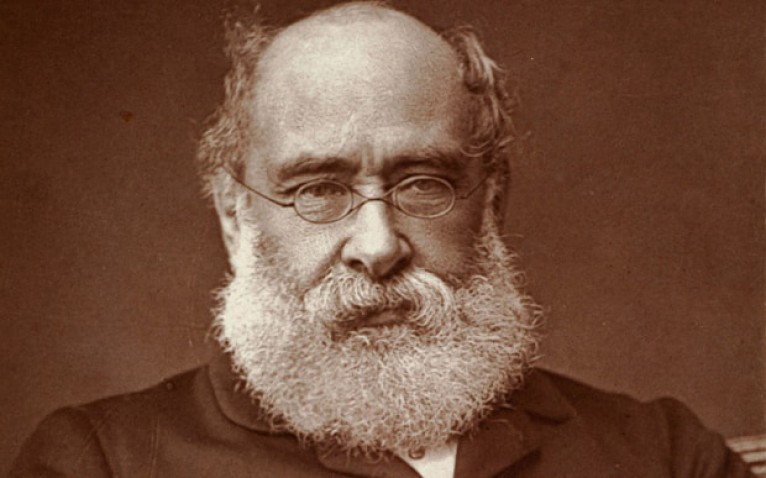
Anthony Trollope in Ireland
Michael Gleeson
- 📅Tuesday, April 25, 2017
- 🕥10:30 - 12:00
- 🏟St. Joseph's Parish Hall, Glasthule (map)
Michael Gleeson, former Secretary of Trinity College, will talk to us about the ten years that the writer Anthony Trollope spent in Ireland, where he set his first four novels.
Apr
18
00:00
NO MEETING
- 📅Tuesday, April 18, 2017
- 🕥00:00 - 00:00
Apr
04
10:30
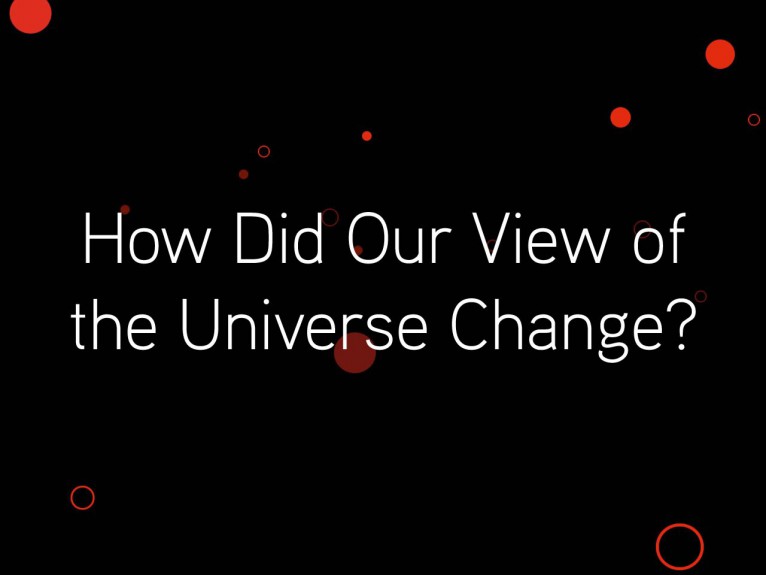
The Changing Universe
Dr Nigel Buttimore
- 📅Tuesday, April 4, 2017
- 🕥10:30 - 12:00
- 🏟St. Joseph's Parish Hall, Glasthule (map)
The second of two lectures with a mathematical theme.
In "The Changing Universe", Dr Buttimore will explain the transformations that have occurred among the constituents of an initially very hot cosmos. In particular, elementary particles have generated atoms, followed by stars, planets, continents and eventually life over a period of 13.8 billion years. Observations in 1998 have revealed that the expansion of the universe is accelerating.
Dr Nigel Buttimore is an Emeritus Fellow in mathematics of Trinity College Dublin and has worked at research institutes in Cambridge, London, Marseille, Michigan and New York on quantum theory and bio-mathematics.
Mar
21
10:30
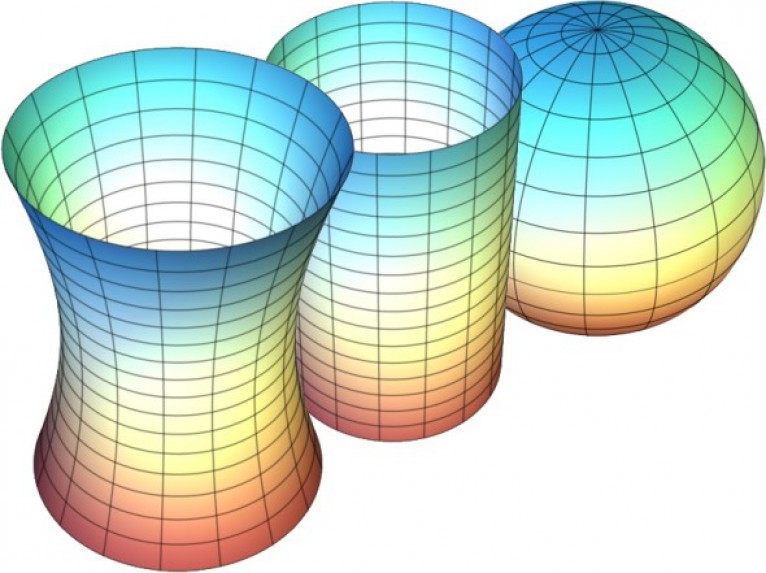
The Shape of the Universe
Dr Nigel Buttimore
- 📅Tuesday, March 21, 2017
- 🕥10:30 - 12:00
- 🏟St. Joseph's Parish Hall, Glasthule (map)
"The Shape of the Universe" discusses how a picture of the cosmos has become much more sharply focused over the period since the introduction of Einstein's geometric theory of gravity in 1915. It explains the expansion of the universe discovered by Edwin Hubble in 1929. Currently, less than 16 per cent of the matter in the universe is visible.
Feb
07
10:30
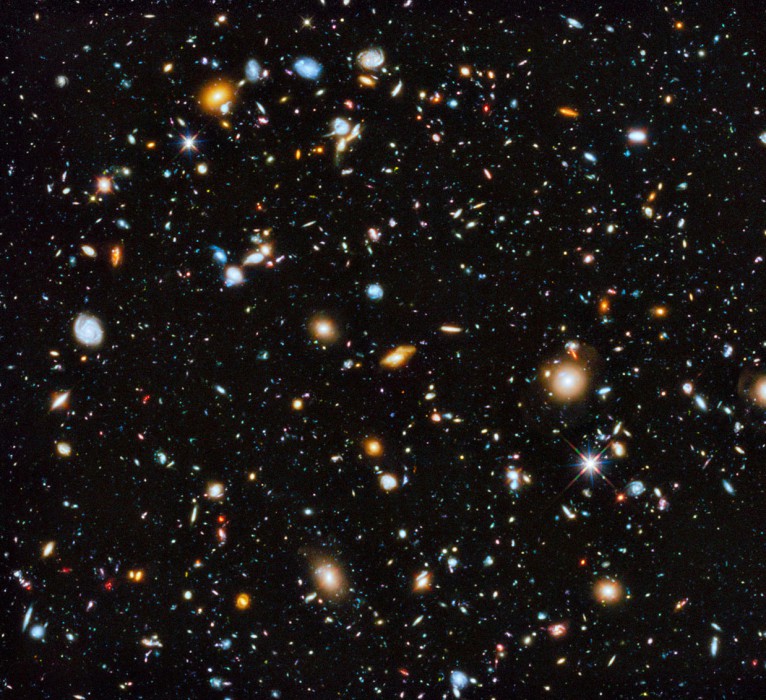
Early Views of the Universe
Dr. Robert Barklie
- 📅Tuesday, February 7, 2017
- 🕥10:30 - 12:00
- 🏟St. Joseph's Parish Hall, Glasthule (map)
Some more text about "Early Views of the Universe"
Jan
24
10:30
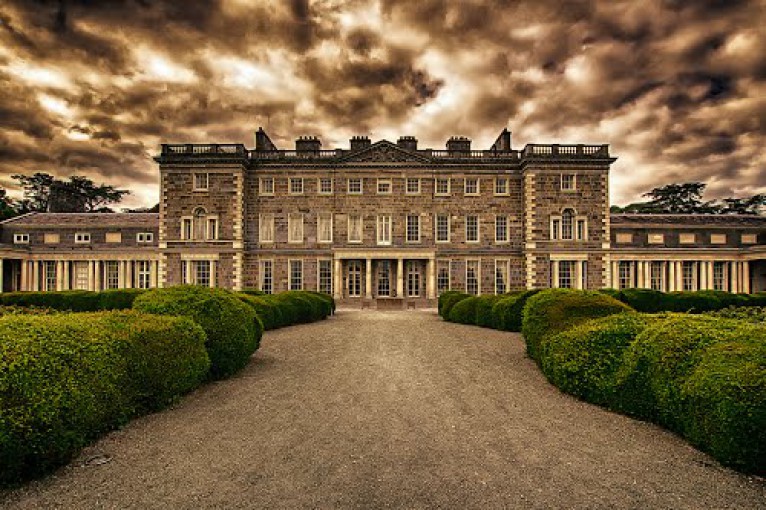
Georgian Irish Houses
Dr Patricia McCarthy
- 📅Tuesday, January 24, 2017
- 🕥10:30 - 12:00
- 🏟St. Joseph's Parish Hall, Glasthule (map)
In the second talk in our series on Social History, architectural historian Dr Patricia McCarthy talks about life in a Georgian Irish country house.
Jan
17
10:30

Choral Music Part 2
Dr. David Connolly
- 📅Tuesday, January 17, 2017
- 🕥10:30 - 12:00
- 🏟St. Joseph's Parish Hall, Glasthule (map)
- 🔗https://www.dunlaoghaireorganconcerts.ie/
We resume at 10.30 with the second of two talks on choral music by Dr David Connolly, the organist and director of music at St Michael's Church.
These talks promise to be an excellent introduction to a fascinating subject.
In addition to his position at St Michael's, Dr Connolly is a lecturer in the Department of Creative Arts, Media and Music at Dundalk Institute of Technology, and a tutor at Maynooth University. He holds BA and Masters degrees in Performance, a Higher Diploma in education and a Doctorate on the relationship between plainchant and French organ music as a student of Dr John O'Keeffe, Dr David Mooney and Professor Gerard Gillen. He is a multiple contributor to the Encyclopedia of Music in Ireland, the largest musicological project ever undertaken in this island and is the director of Dun Laoghaire summer organ concerts, the longest running series of its kind in Western Europe which has just finished its 43rd season.
Jan
10
10:30

Choral Music
Dr. David Connolly
- 📅Tuesday, January 10, 2017
- 🕥10:30 - 12:00
- 🏟St. Joseph's Parish Hall, Glasthule (map)
A very Happy New Year to all.
Now that the Christmas and New Year festivities are nearly at an end, it's time to look forward to another season of mental stimulation with our winter/spring programme, a copy of which is attached.
We resume at 10.30 on next Tuesday (10th January) with the first of two talks on choral music by Dr David Connolly, the organist and director of music at St Michael's Church. Dr Connolly will give his second talk the following week, on the 17th.
These talks promise to be an excellent introduction to a fascinating subject.
In addition to his position at St Michael's, Dr Connolly is a lecturer in the Department of Creative Arts, Media and Music at Dundalk Institute of Technology, and a tutor at Maynooth University. He holds BA and Masters degrees in Performance, a Higher Diploma in education and a Doctorate on the relationship between plainchant and French organ music as a student of Dr John O'Keeffe, Dr David Mooney and Professor Gerard Gillen. He is a multiple contributor to the Encyclopedia of Music in Ireland, the largest musicological project ever undertaken in this island and is the director of Dun Laoghaire summer organ concerts, the longest running series of its kind in Western Europe which has just finished its 43rd season.
Mar
31
10:30
A Visit to Yeats at The National Library
The Yeats Exhibition @ The National Library
- 📅Wednesday, March 31, 2010
- 🕥10:30 - 12:00
Feb
09
10:30
Music of the Modern Era.
Peter Ryan.
- 📅Friday, February 9, 0024
- 🕥10:30 - 11:30
Jan
09
10:30
Music of the Modern Era.
Peter Ryan.
- 📅Tuesday, January 9, 0024
- 🕥10:30 - 11:30
Music of the Modern Era, starting around 1910, has been described by many as a reaction to the Romantic Period that preceded it. The social and political upheaval coupled with the technological advances of the 20th century led many composers to feel that the old ways of representing human experience musically were no longer qualified to identify the new reality of humanity. This has led to various new trends and techniques such as Atonality, Serialism, Expressionism, Impressionism, but also to Jazz Influence, Electronic Music and Neoclassicism among others. Some composers continued in the Romantic vein. This presentation by Peter Ryan will include music by composers such as Debussy, Copland, Milhaud, Prokofiev, Schoenberg, Messiaen, Cage, Reich, Stockhausen and Shostakovich.
Jan
01
00:00
.
.
- 📅Monday, January 1, 0001
- 🕥00:00 - 00:00
.
.
